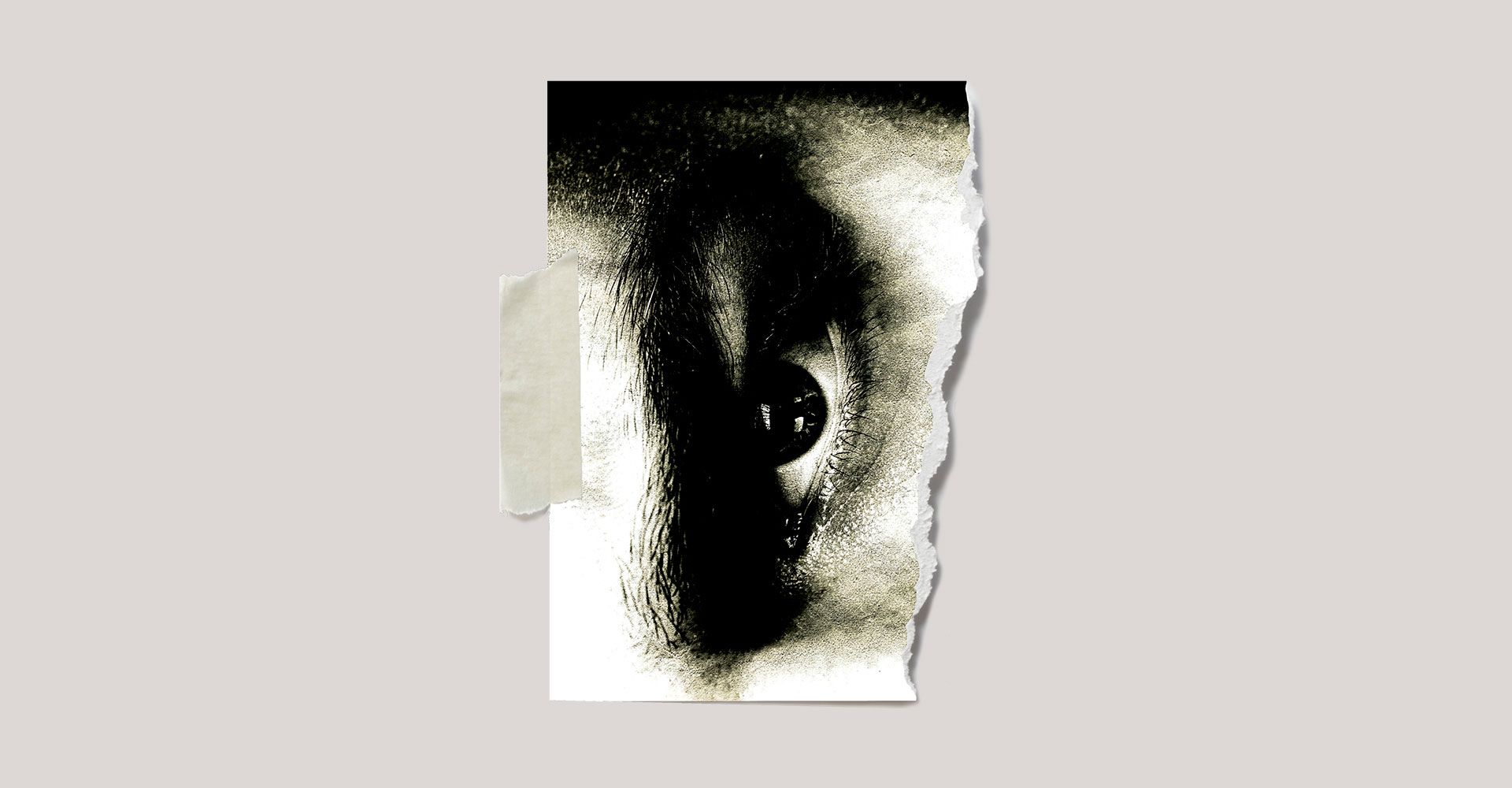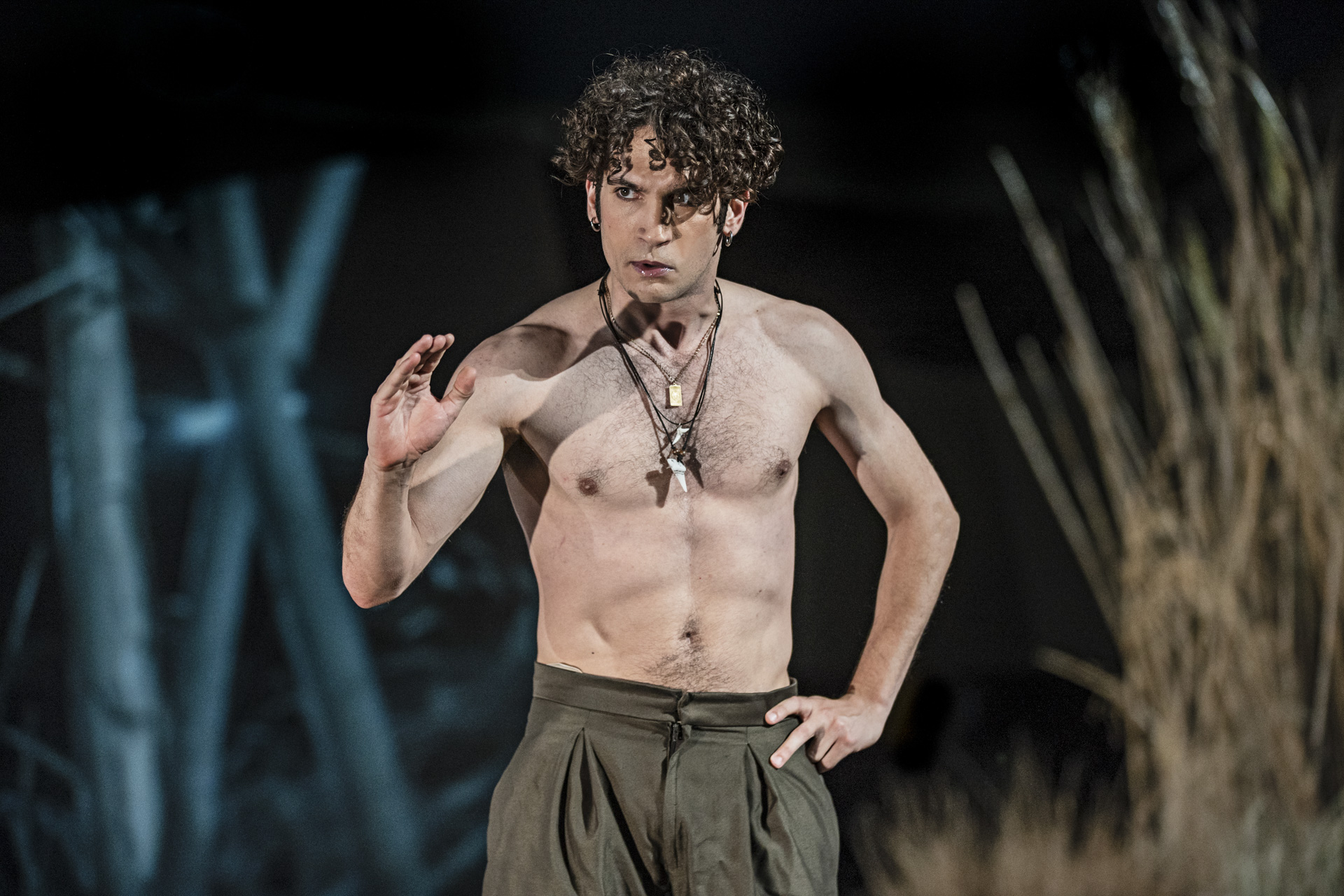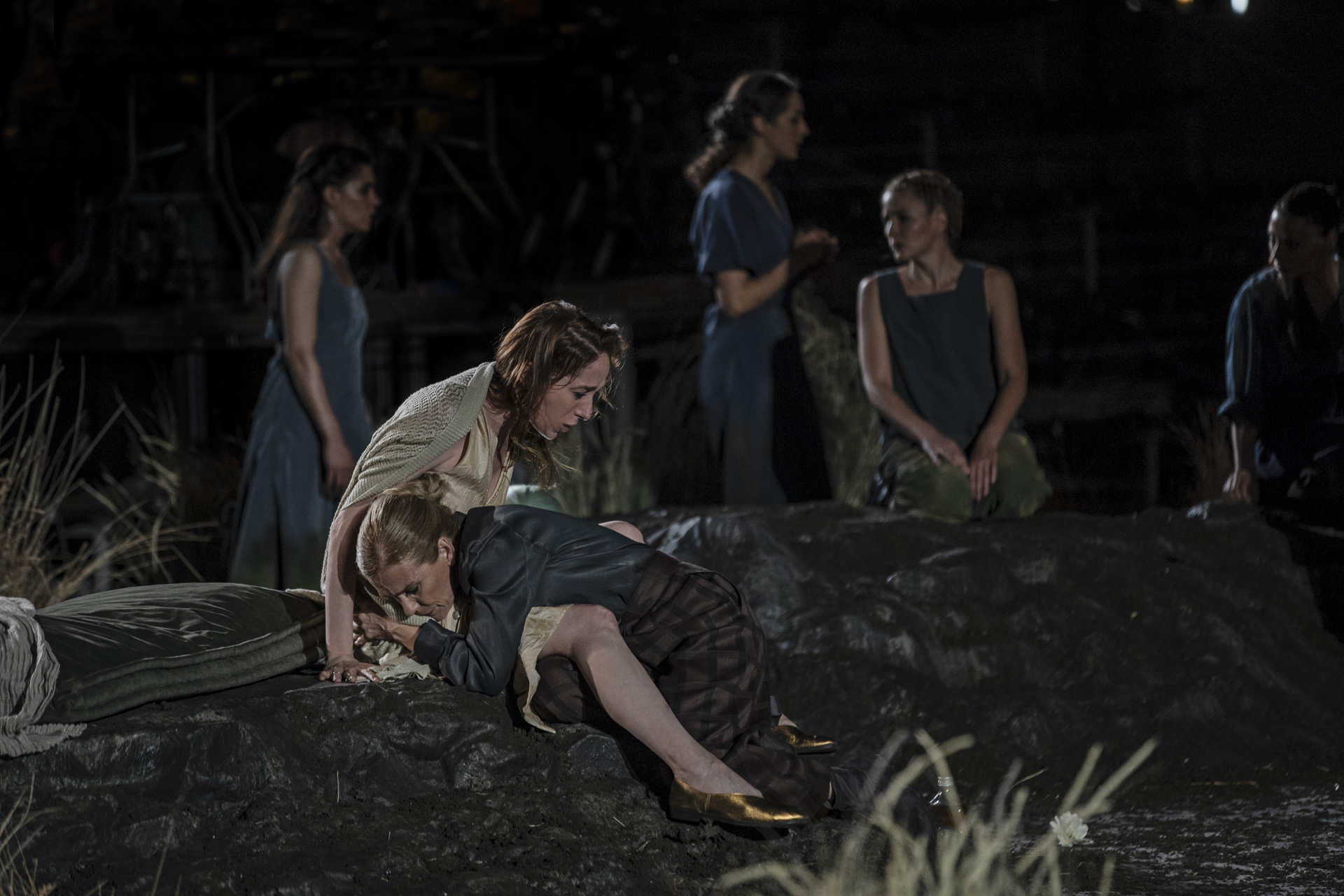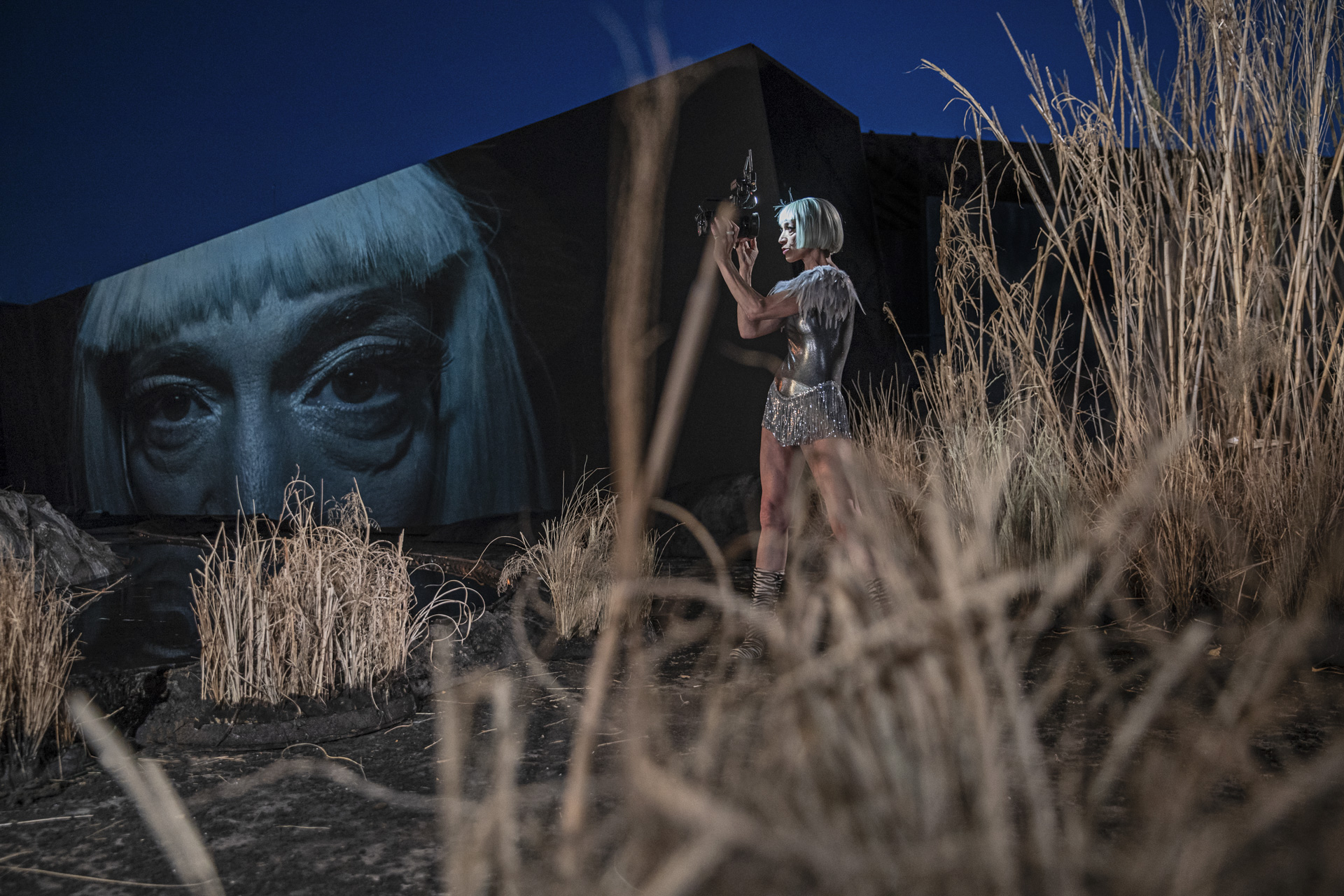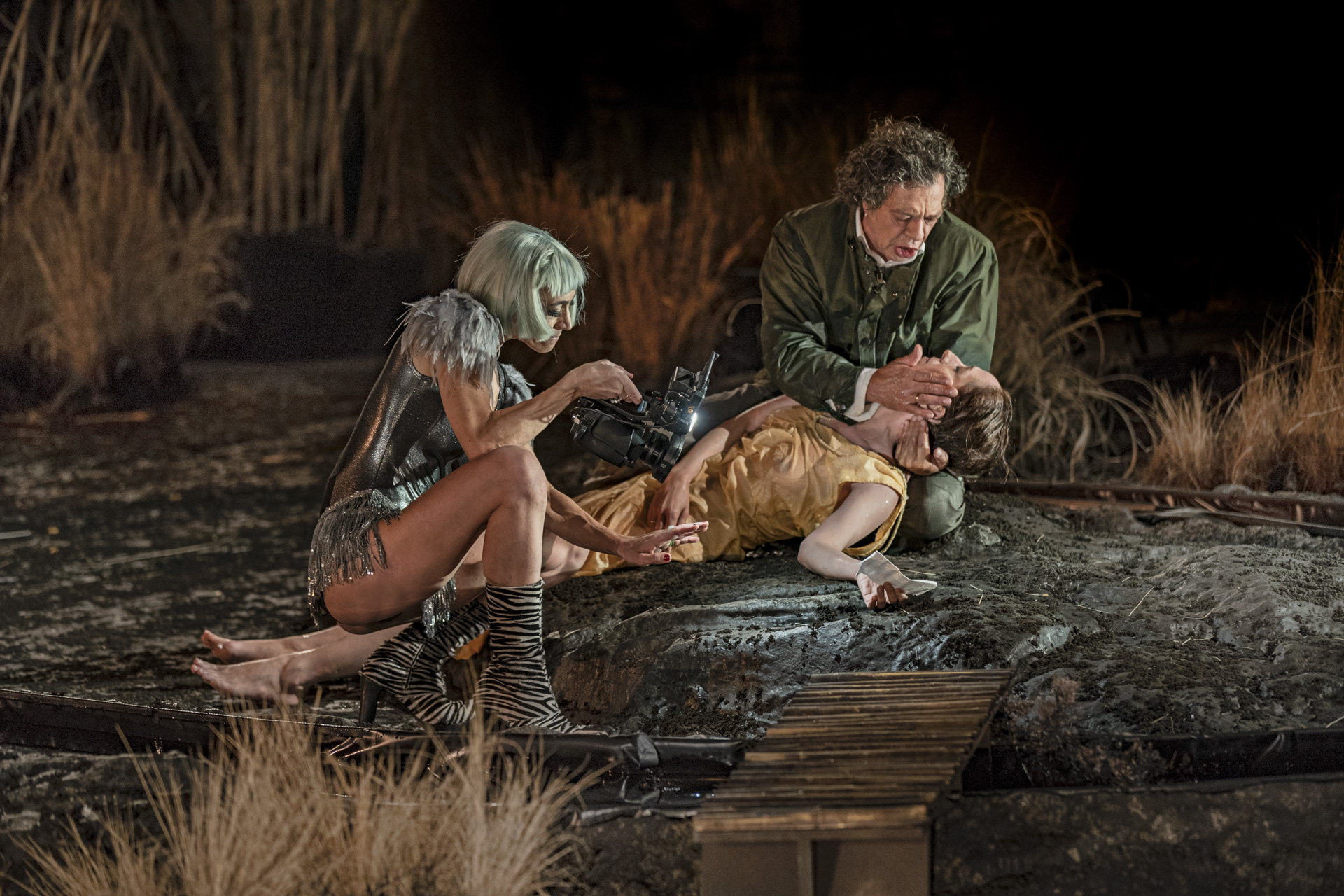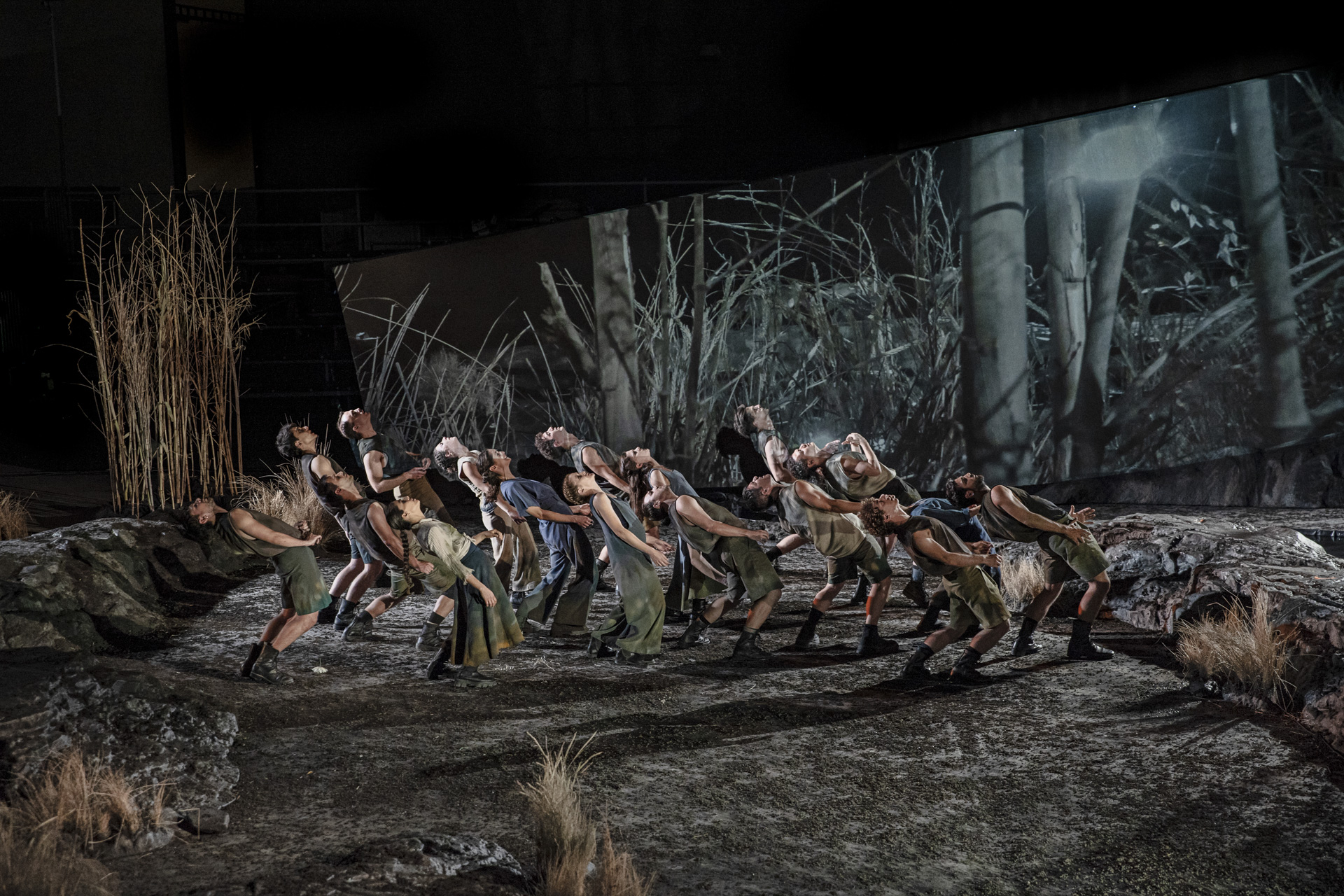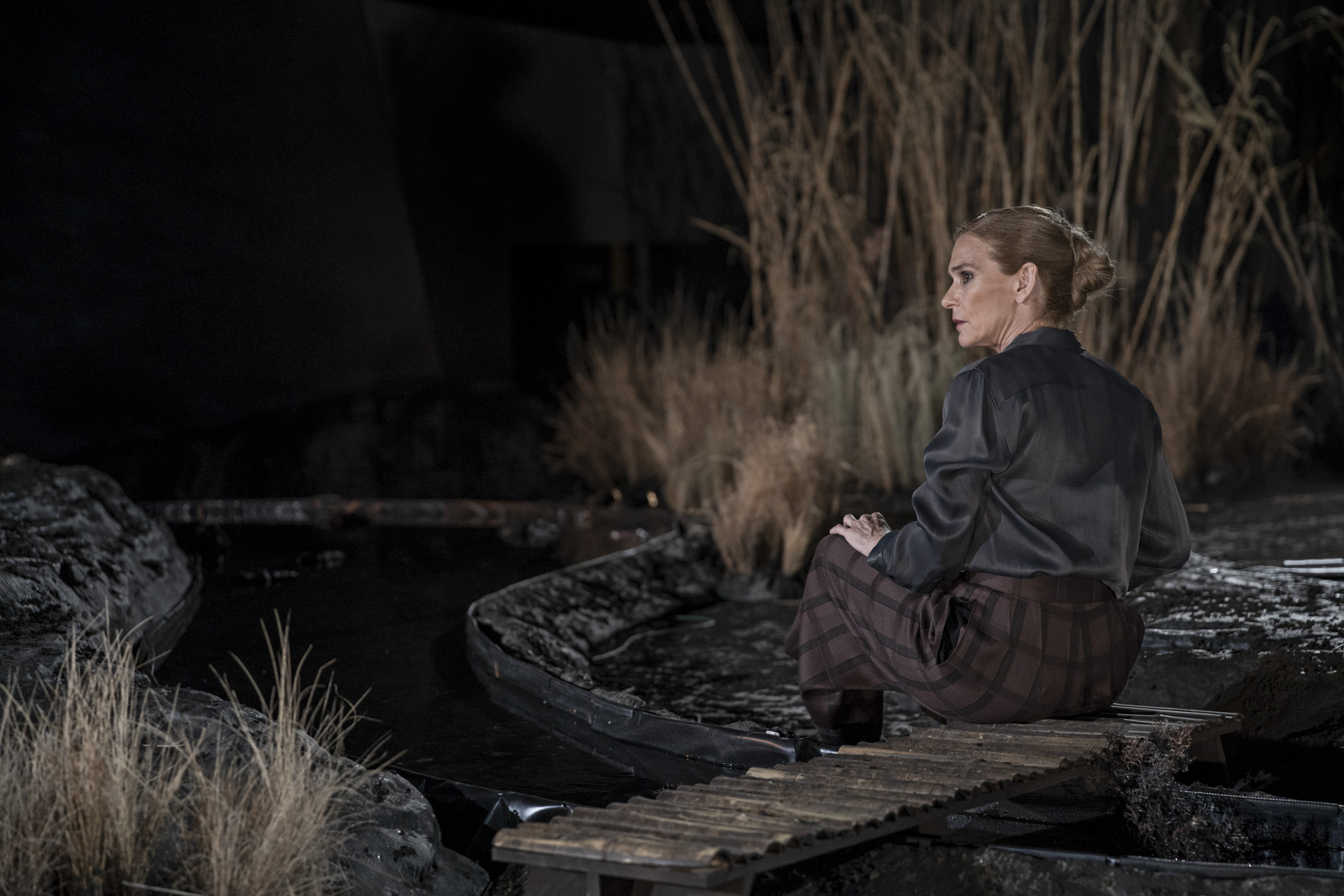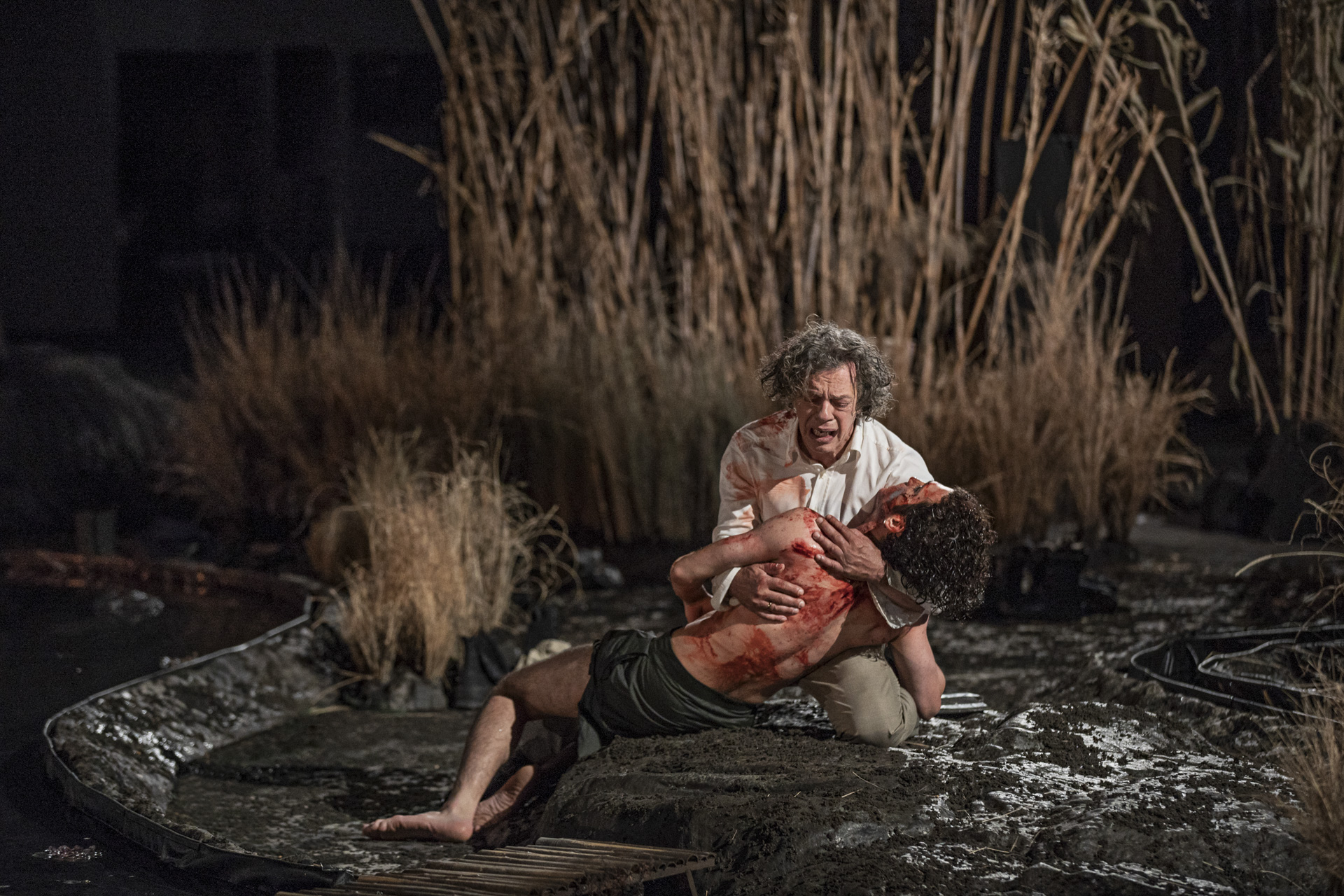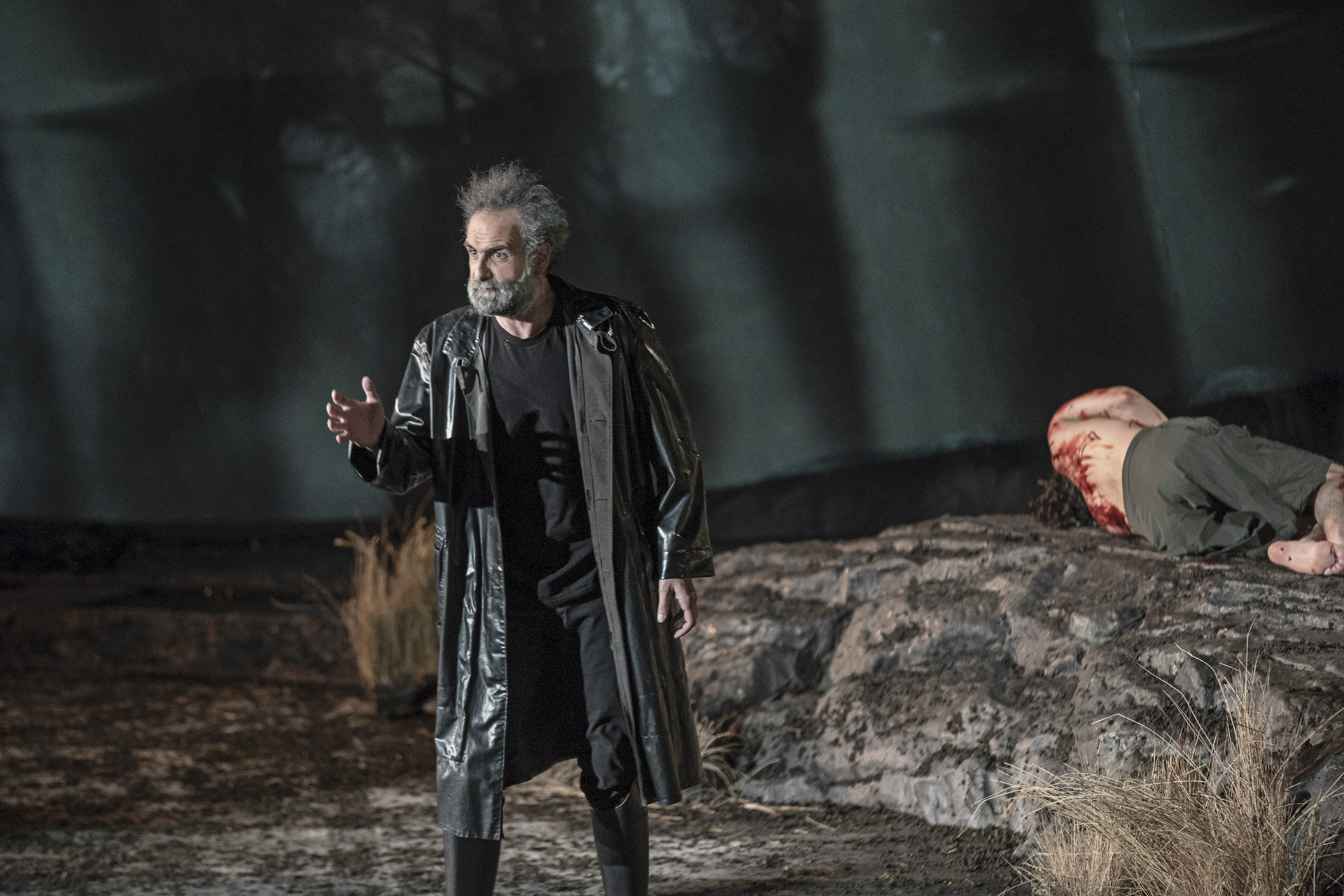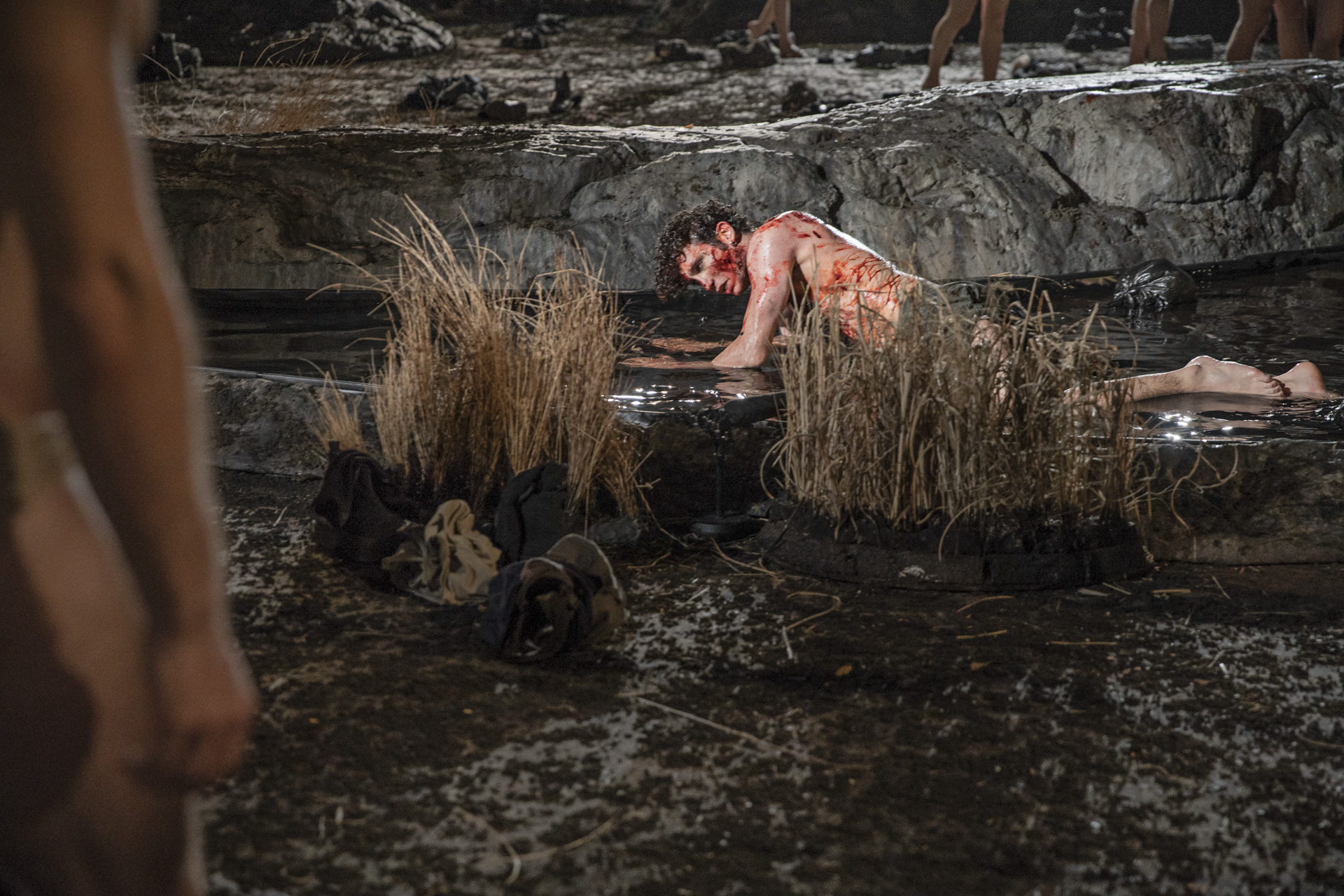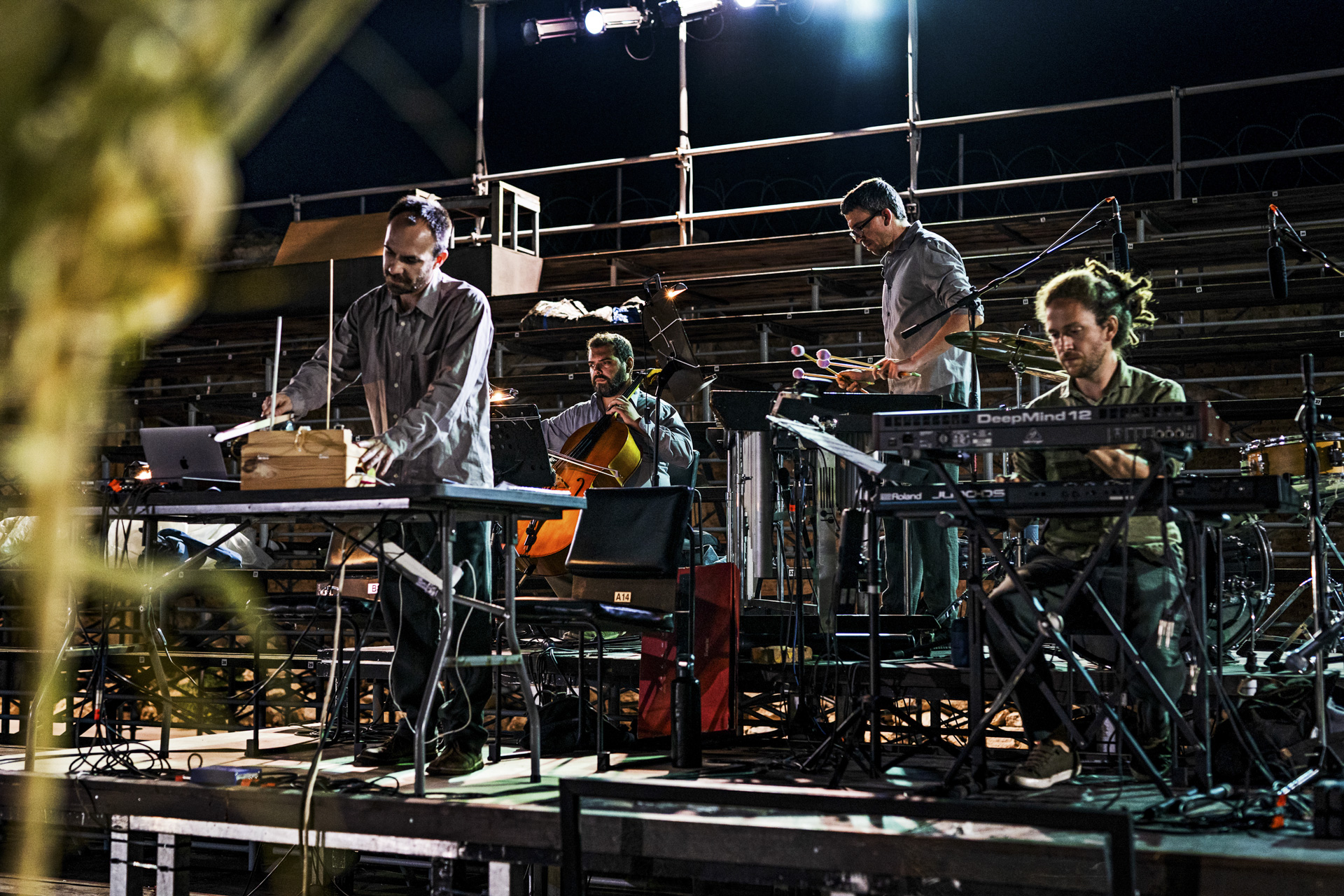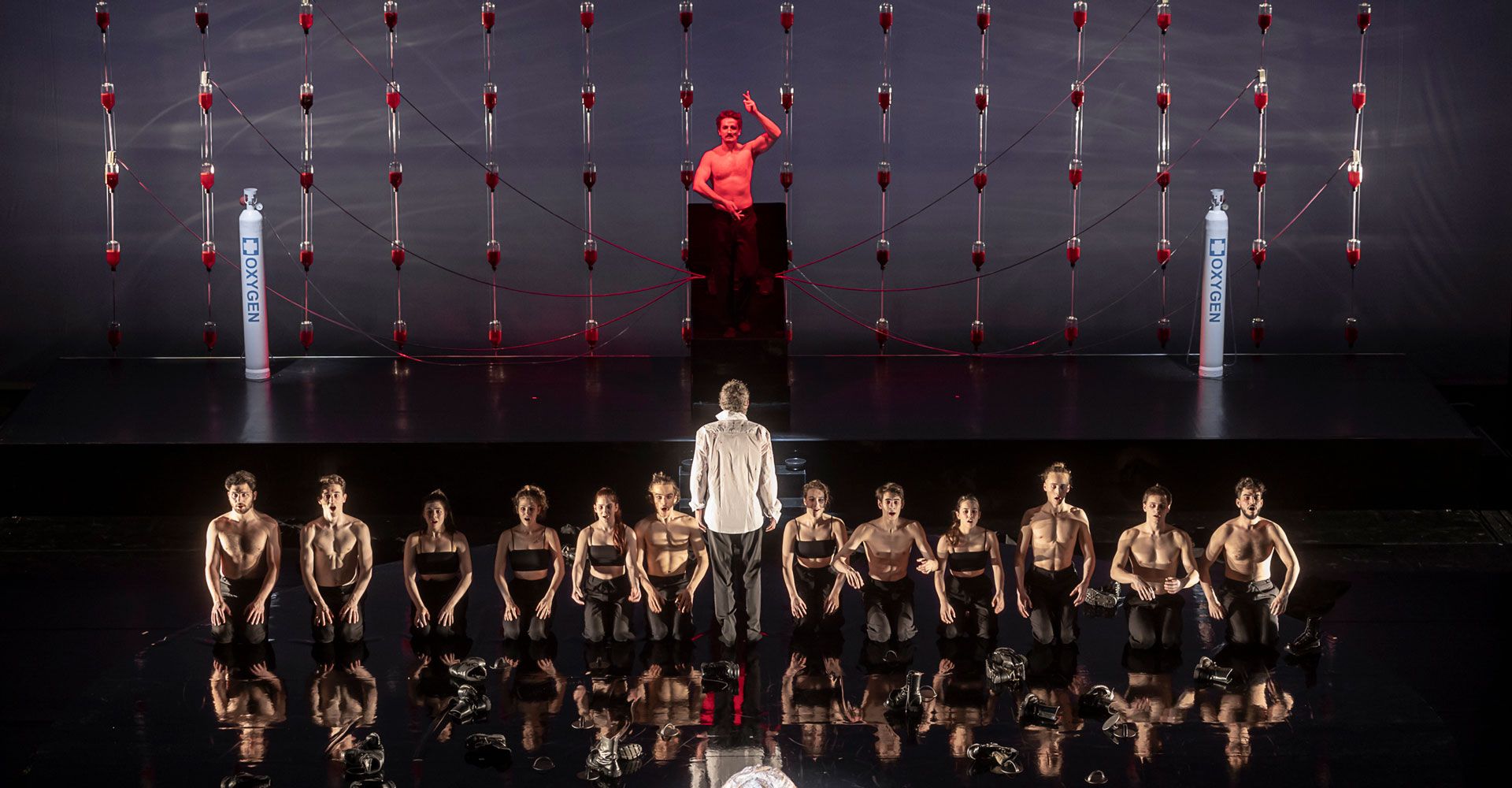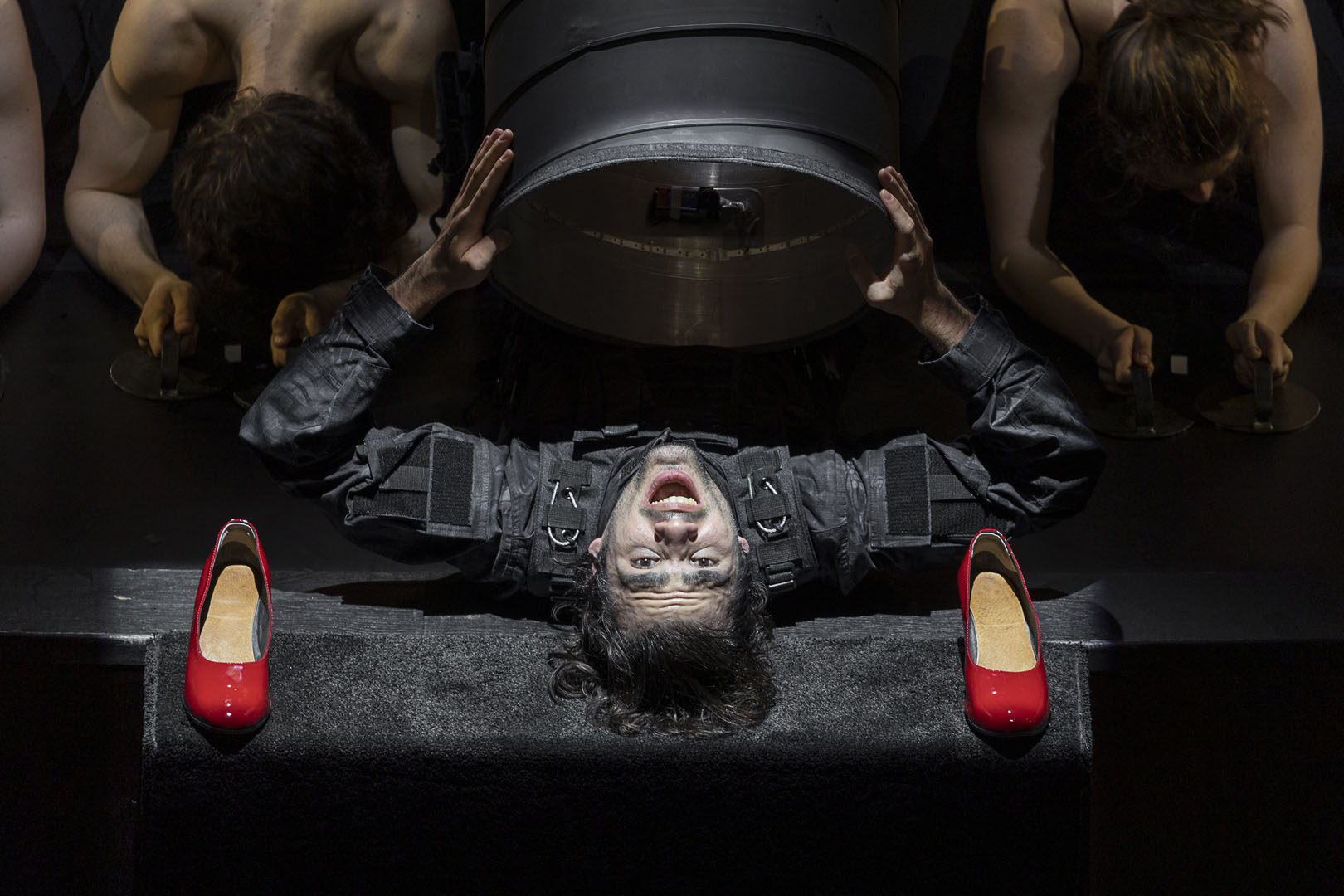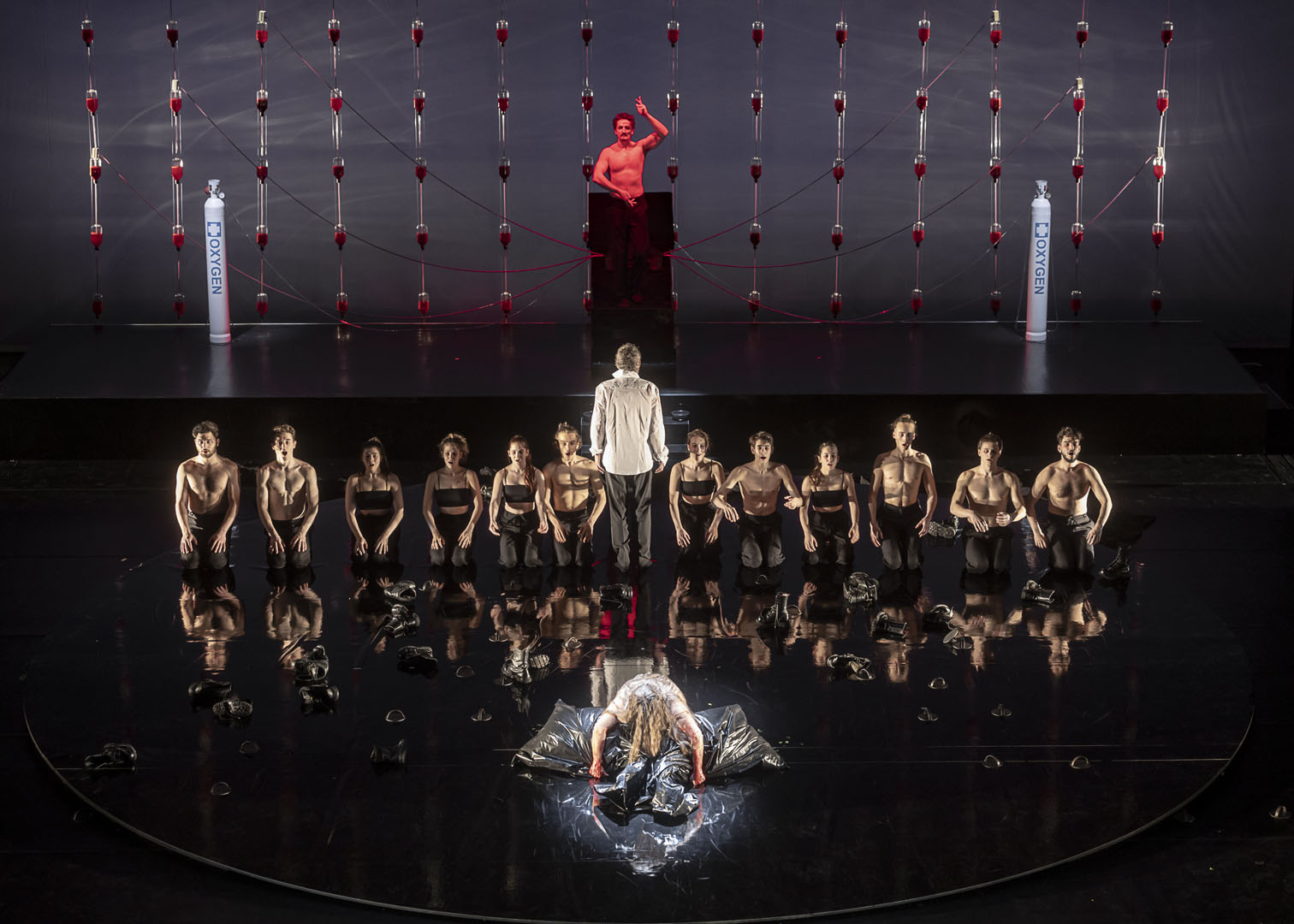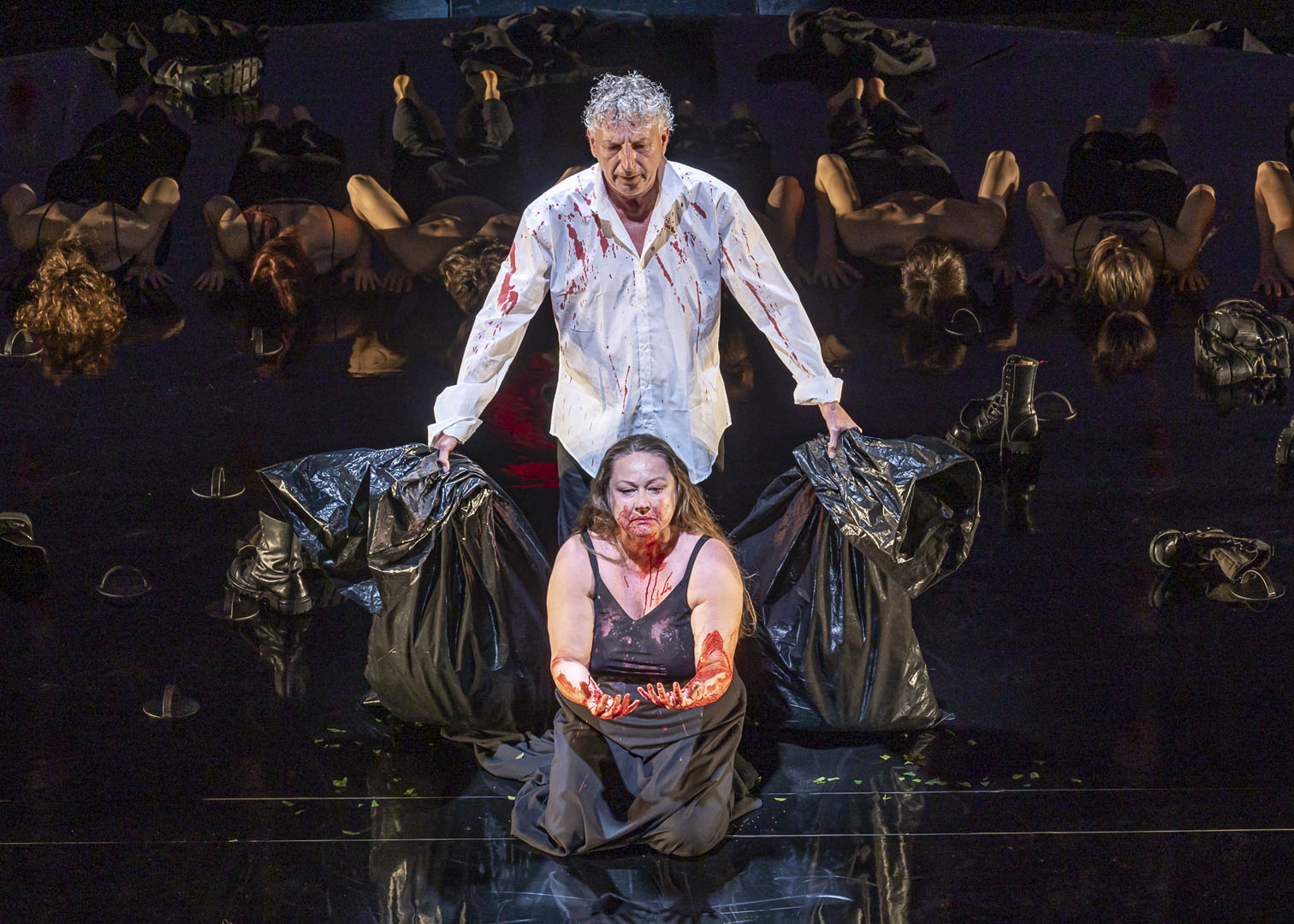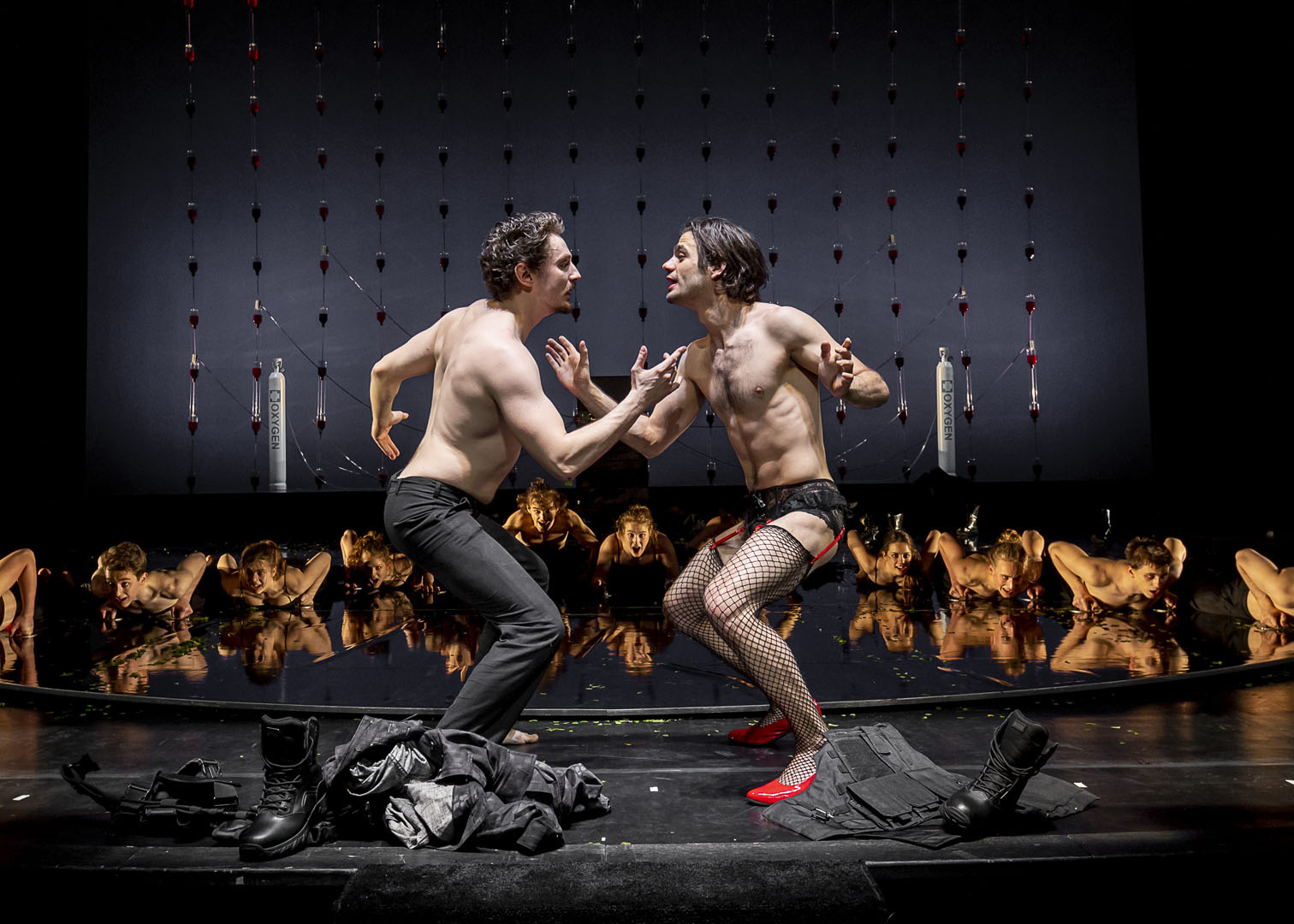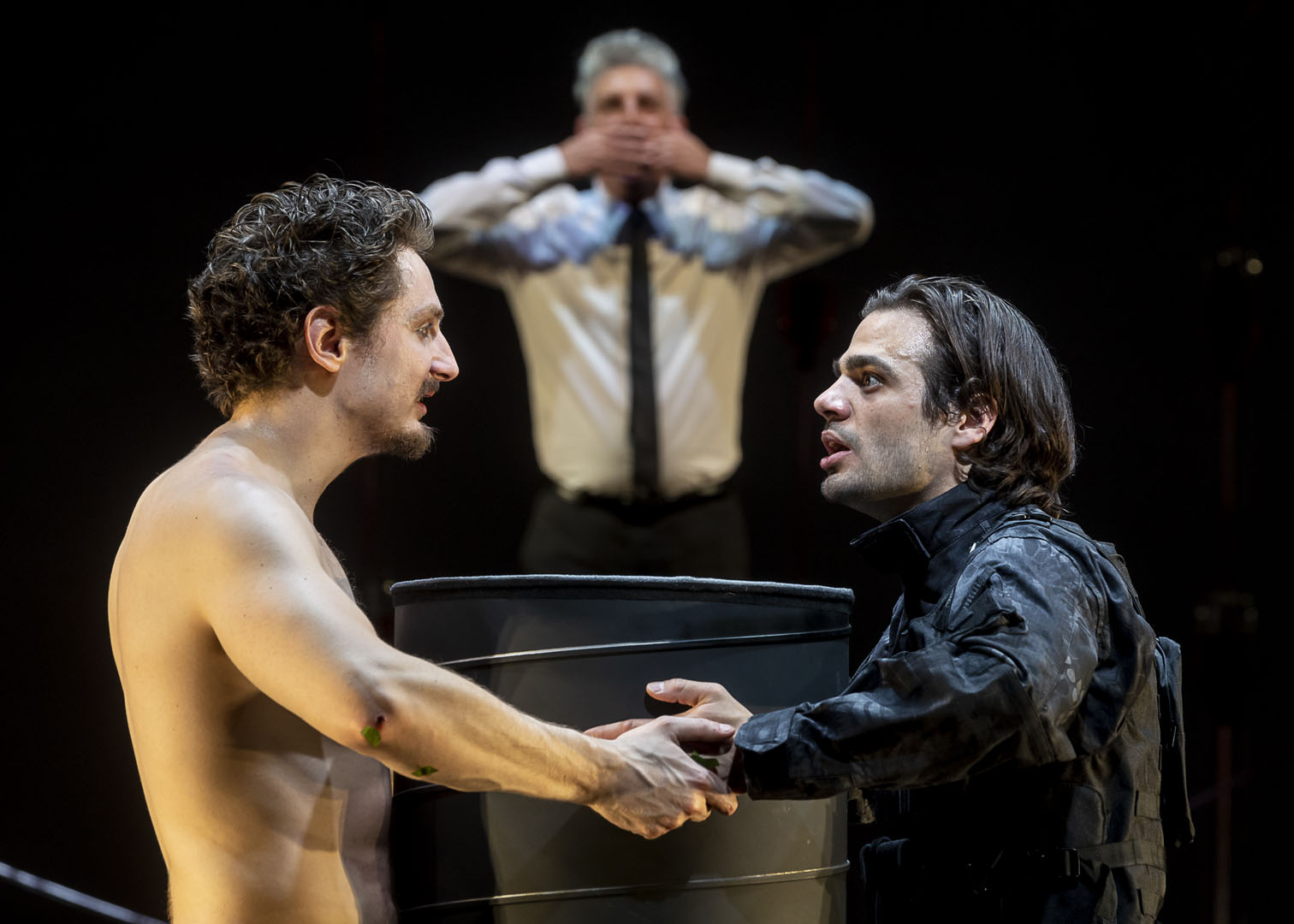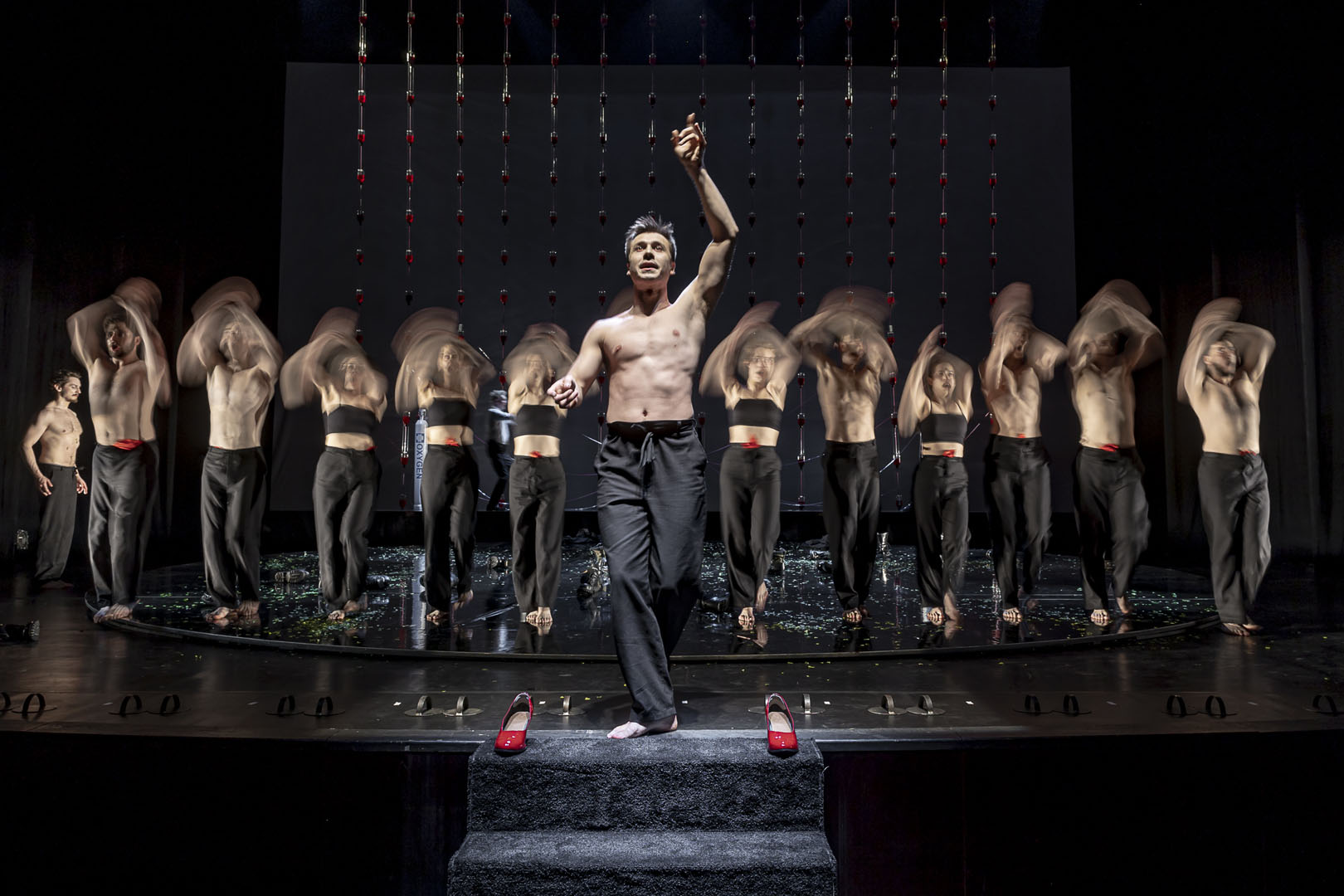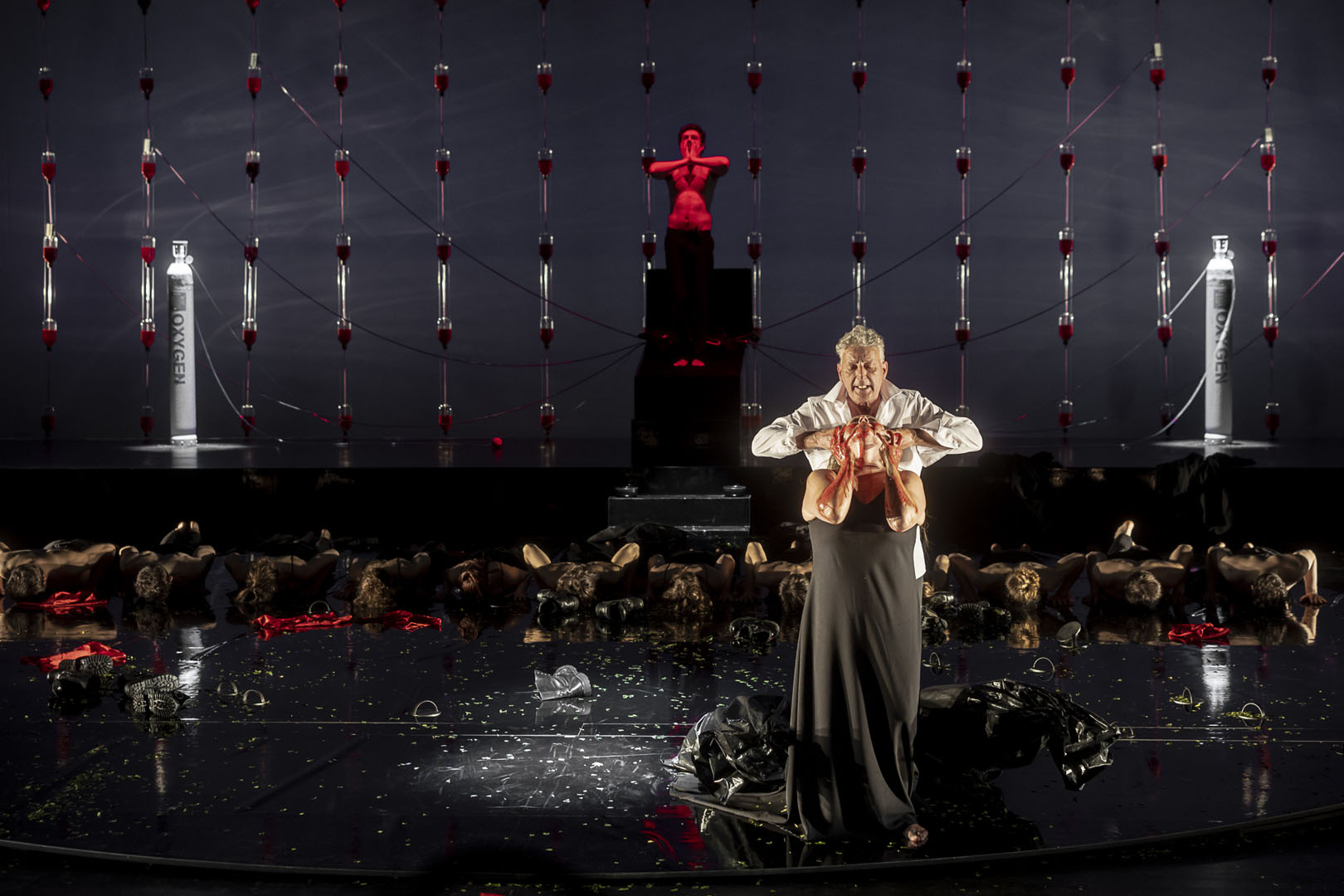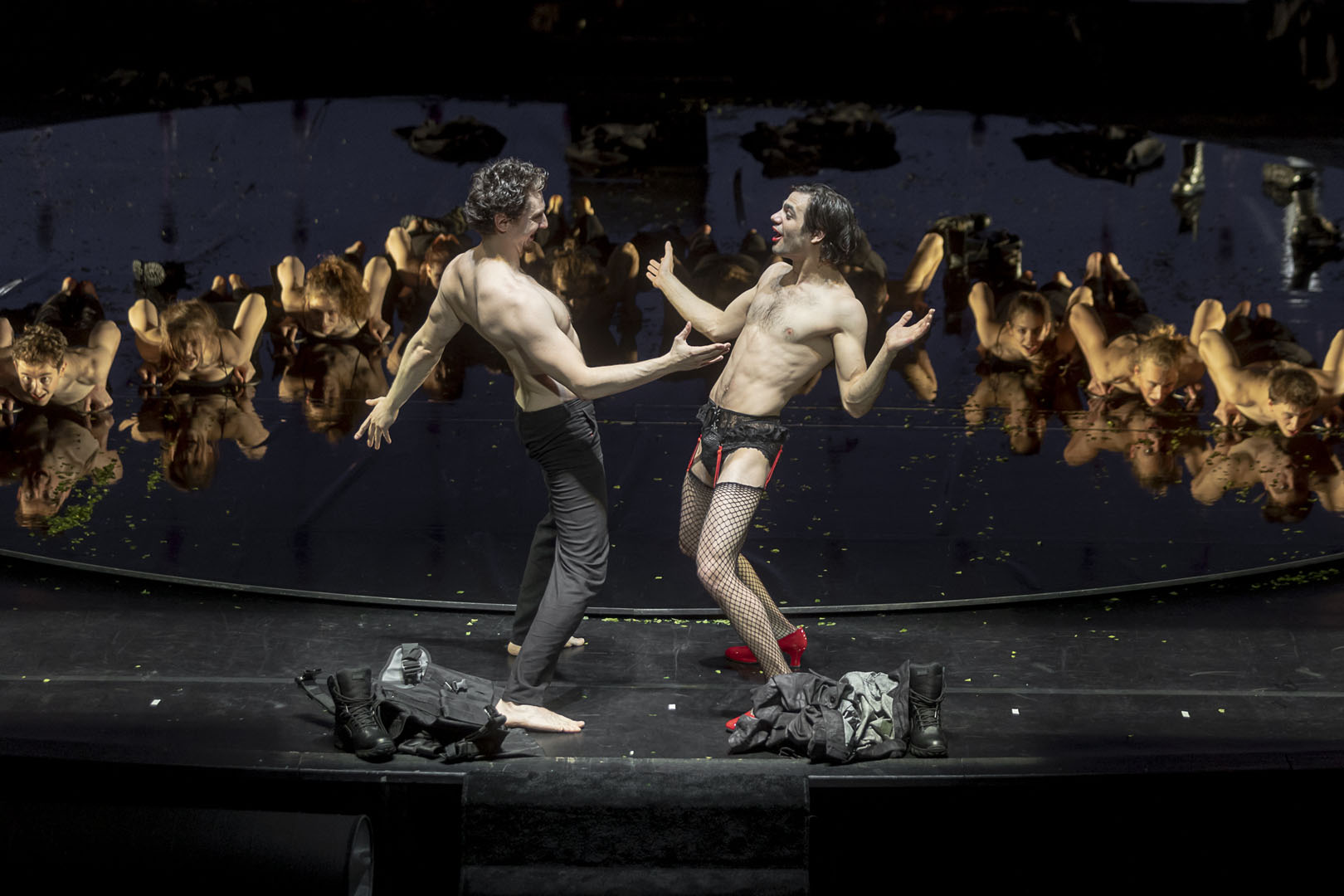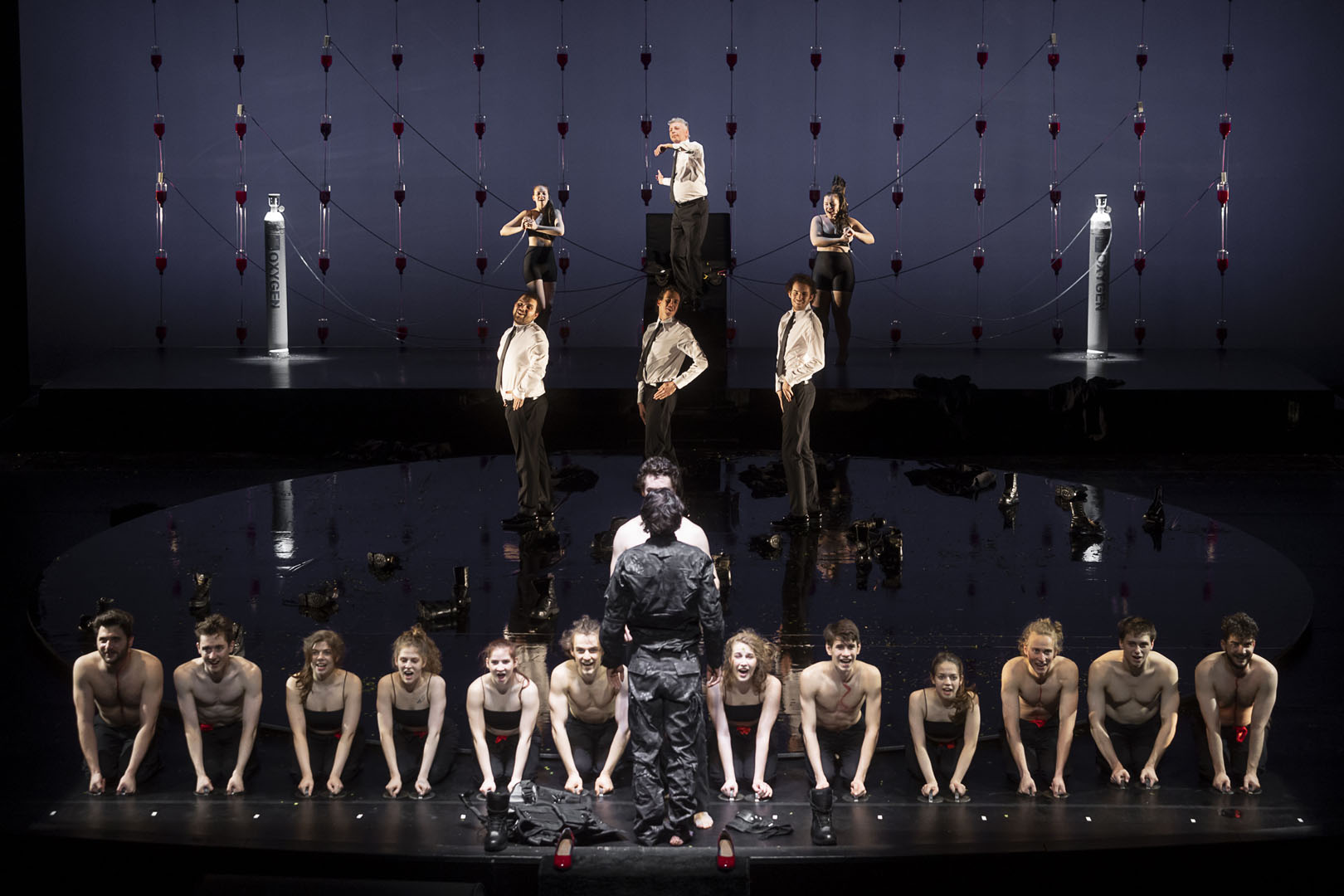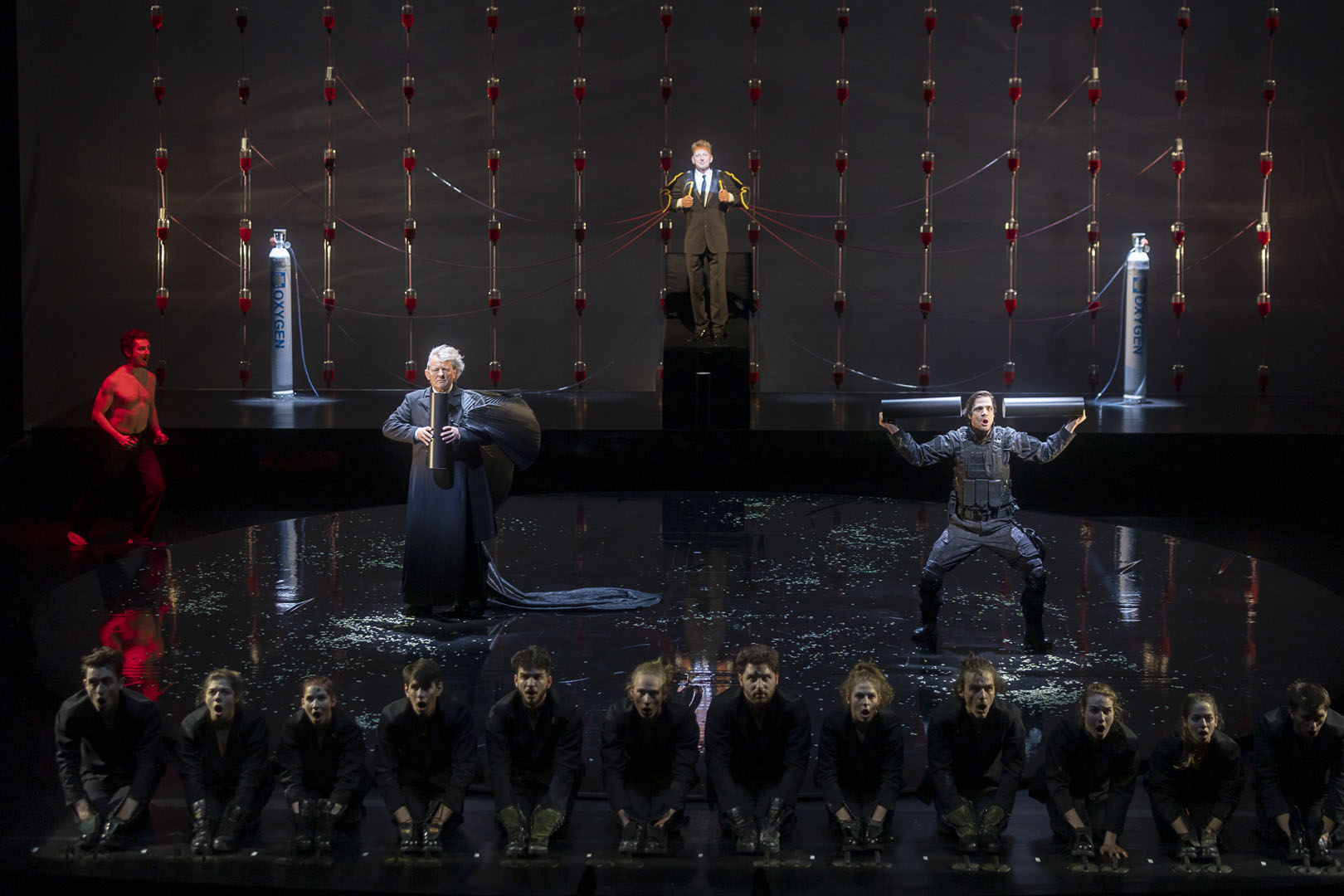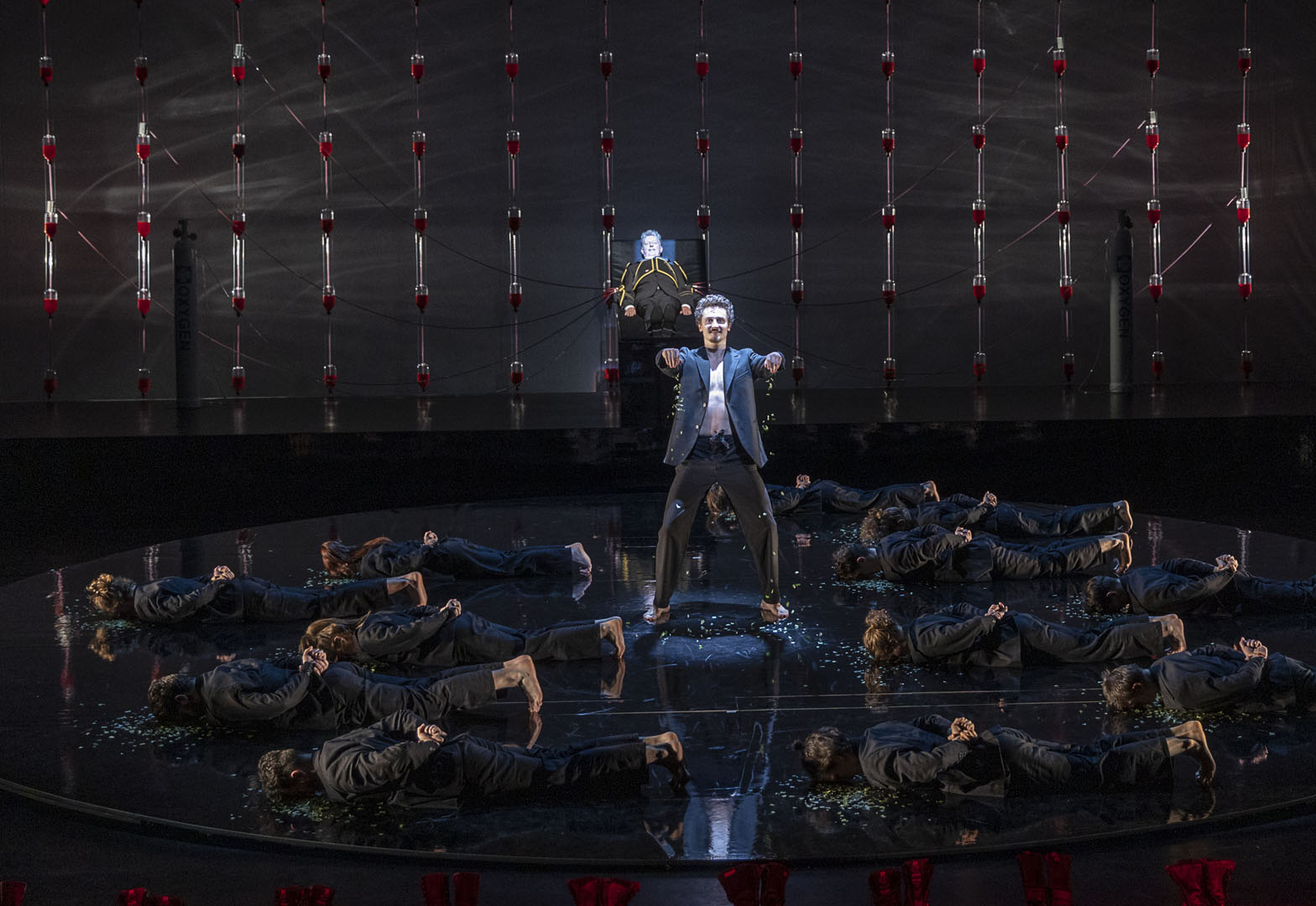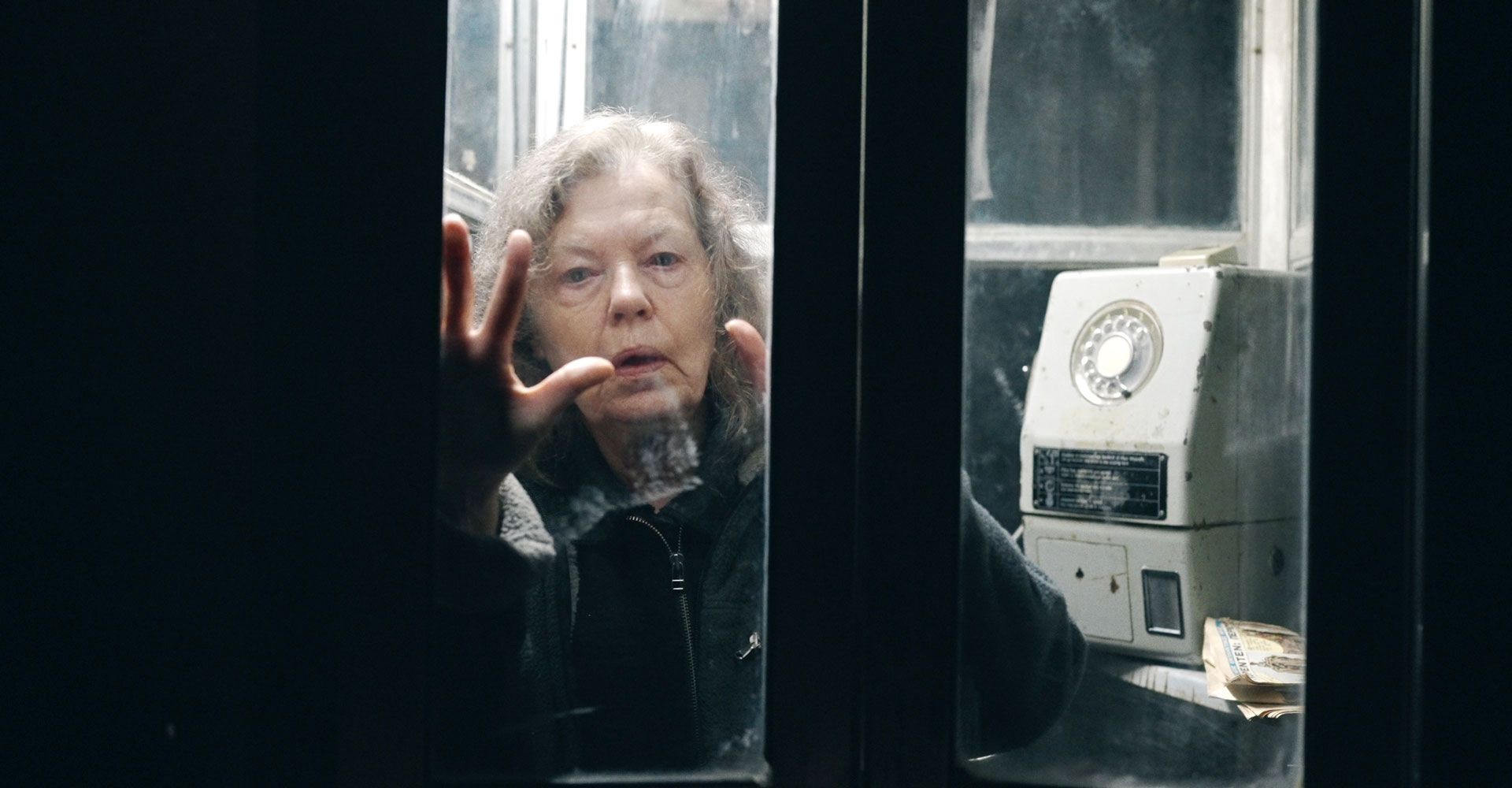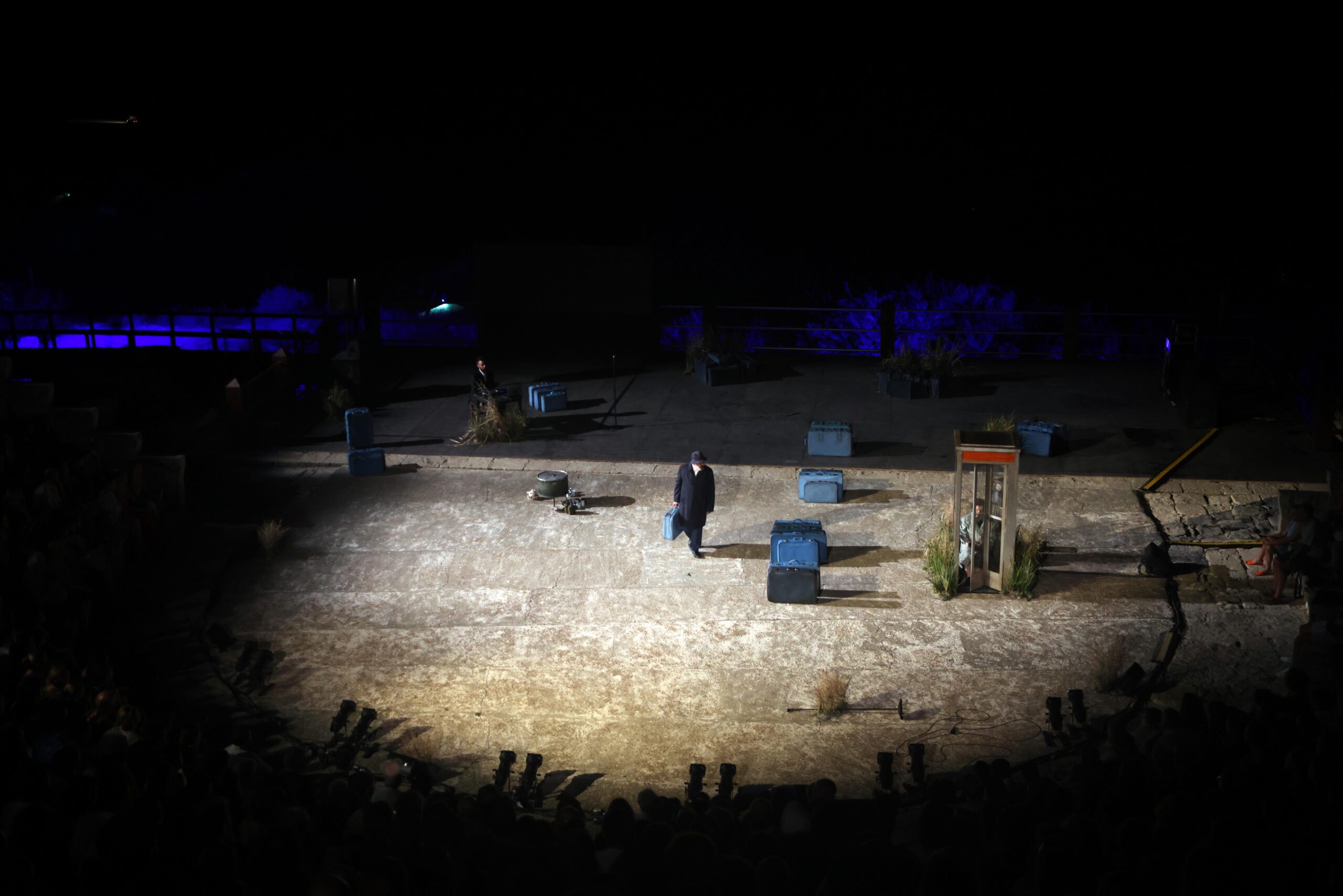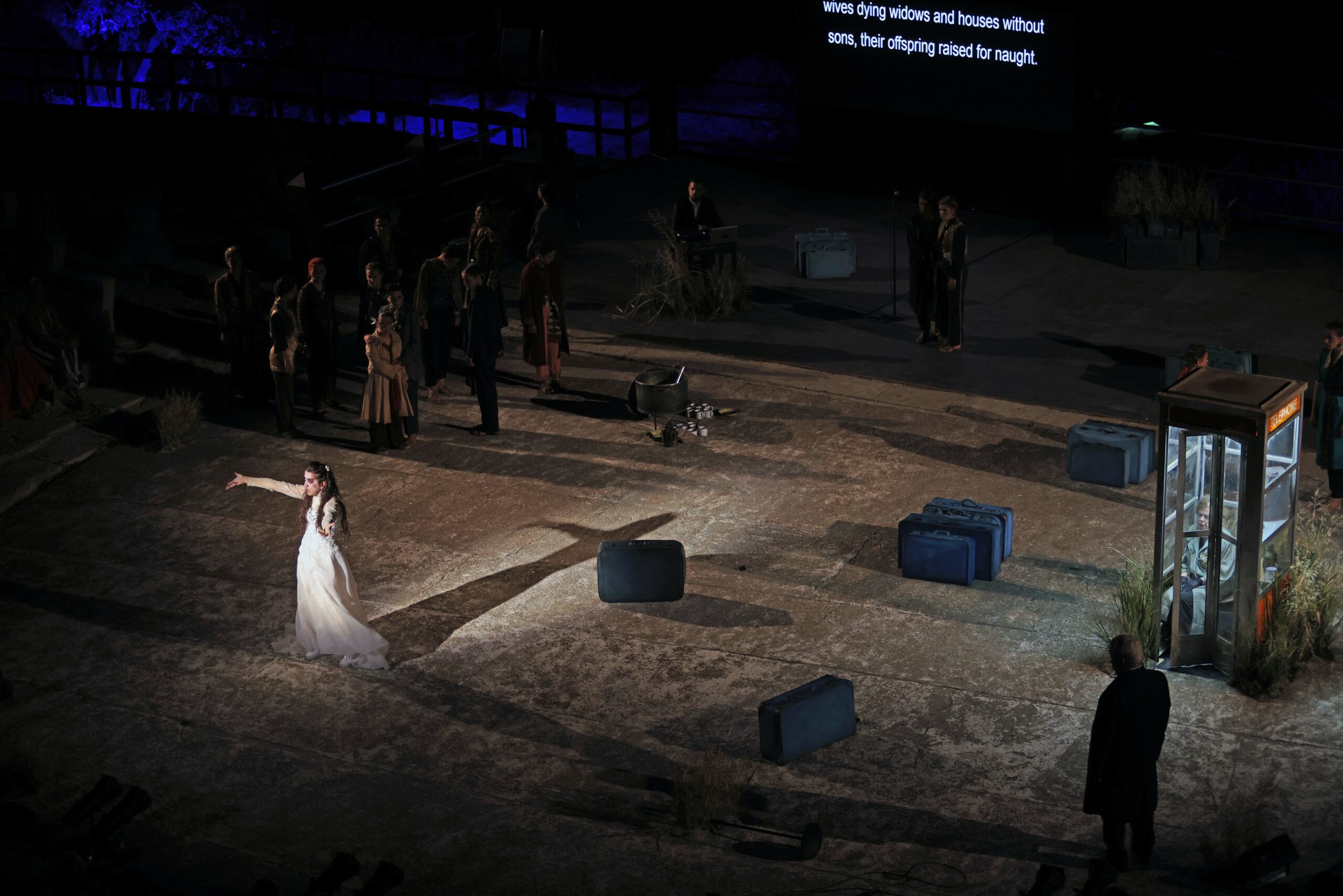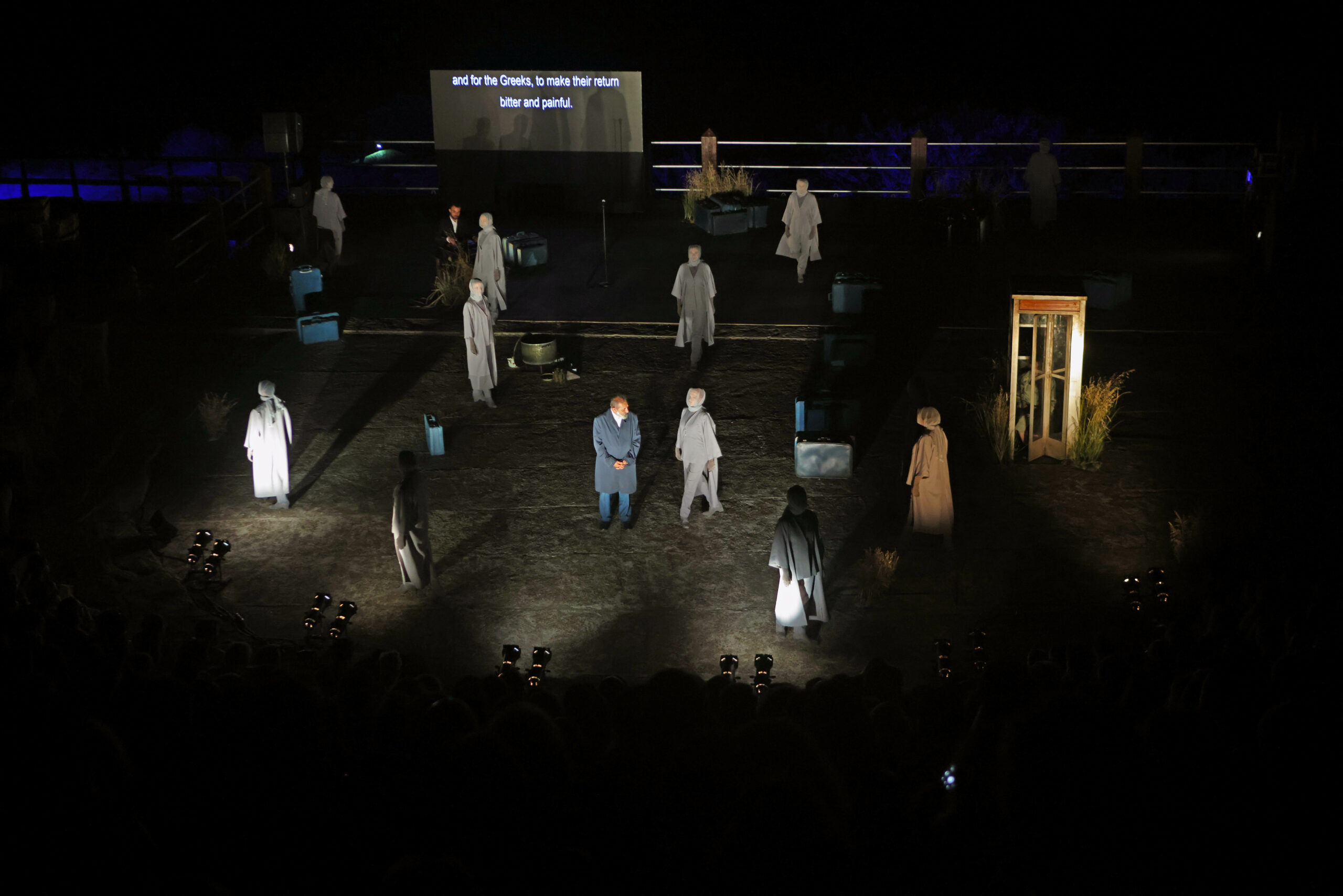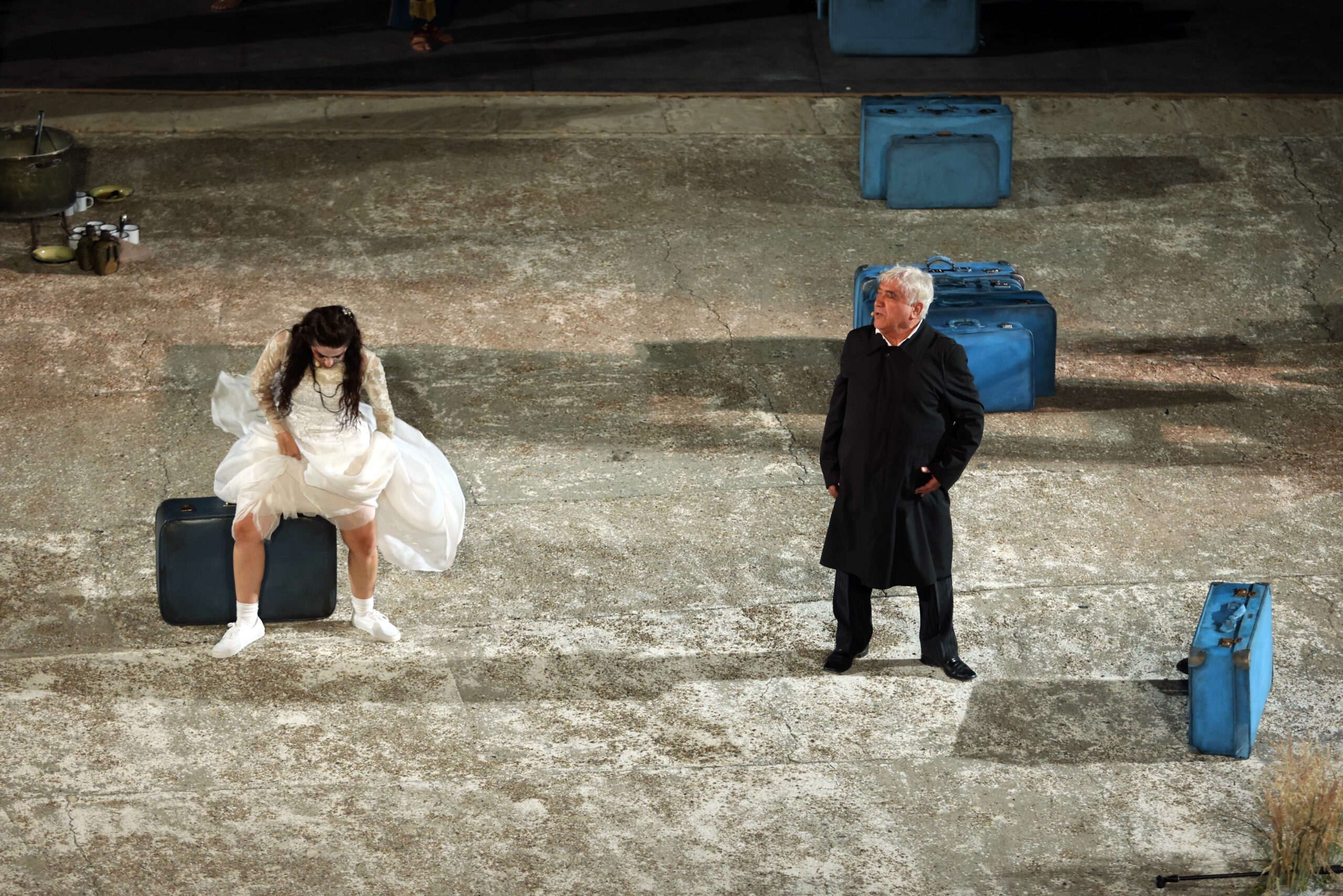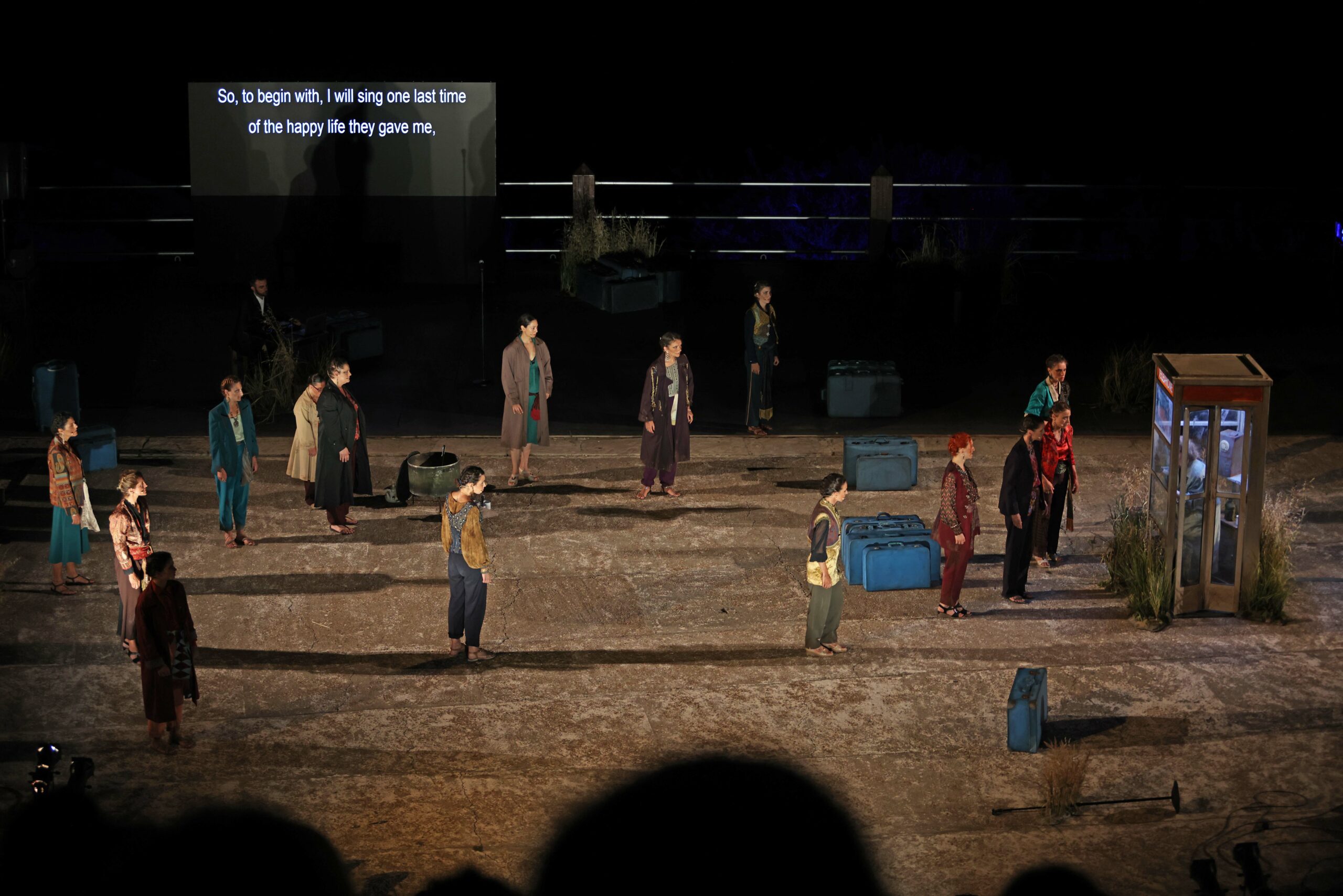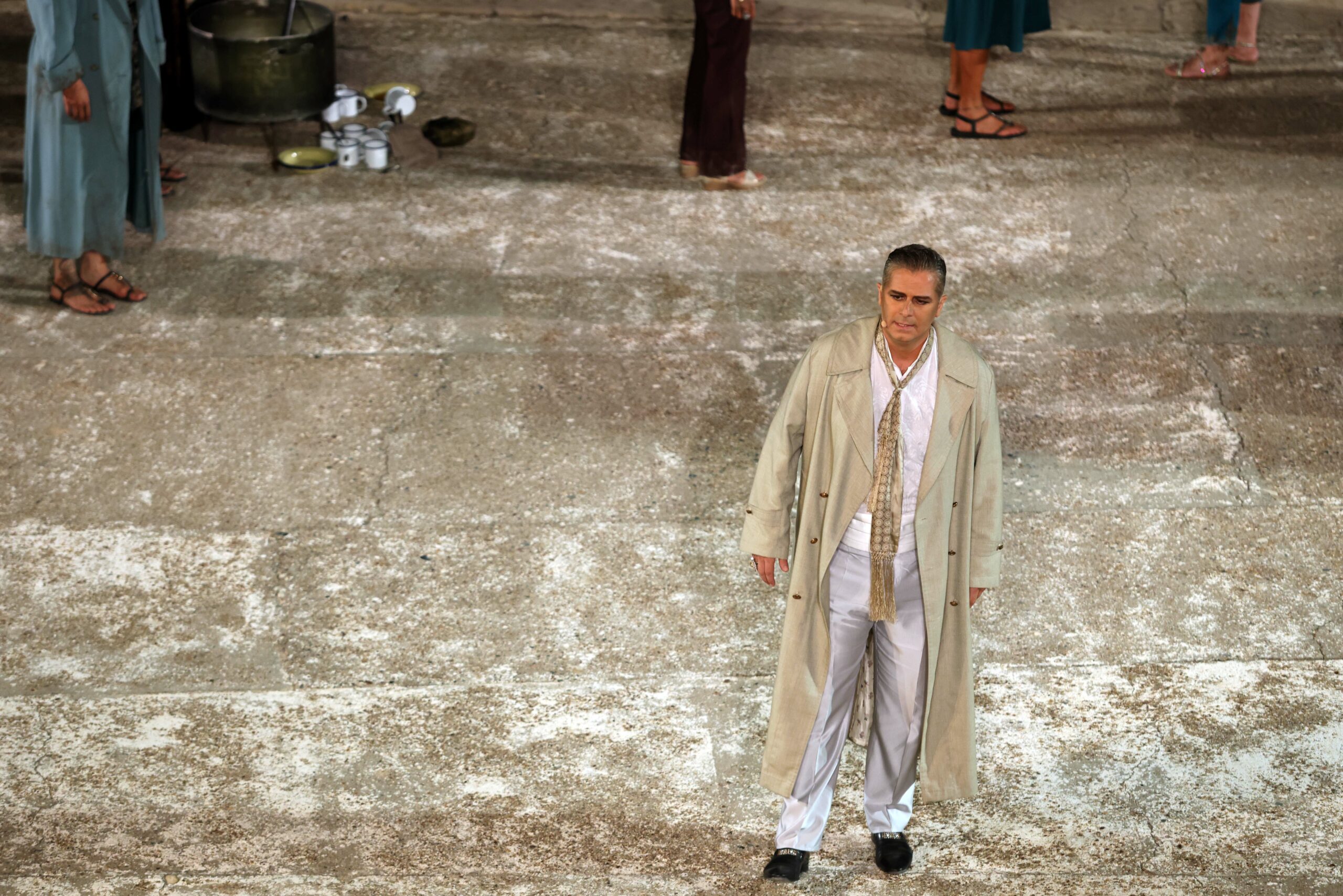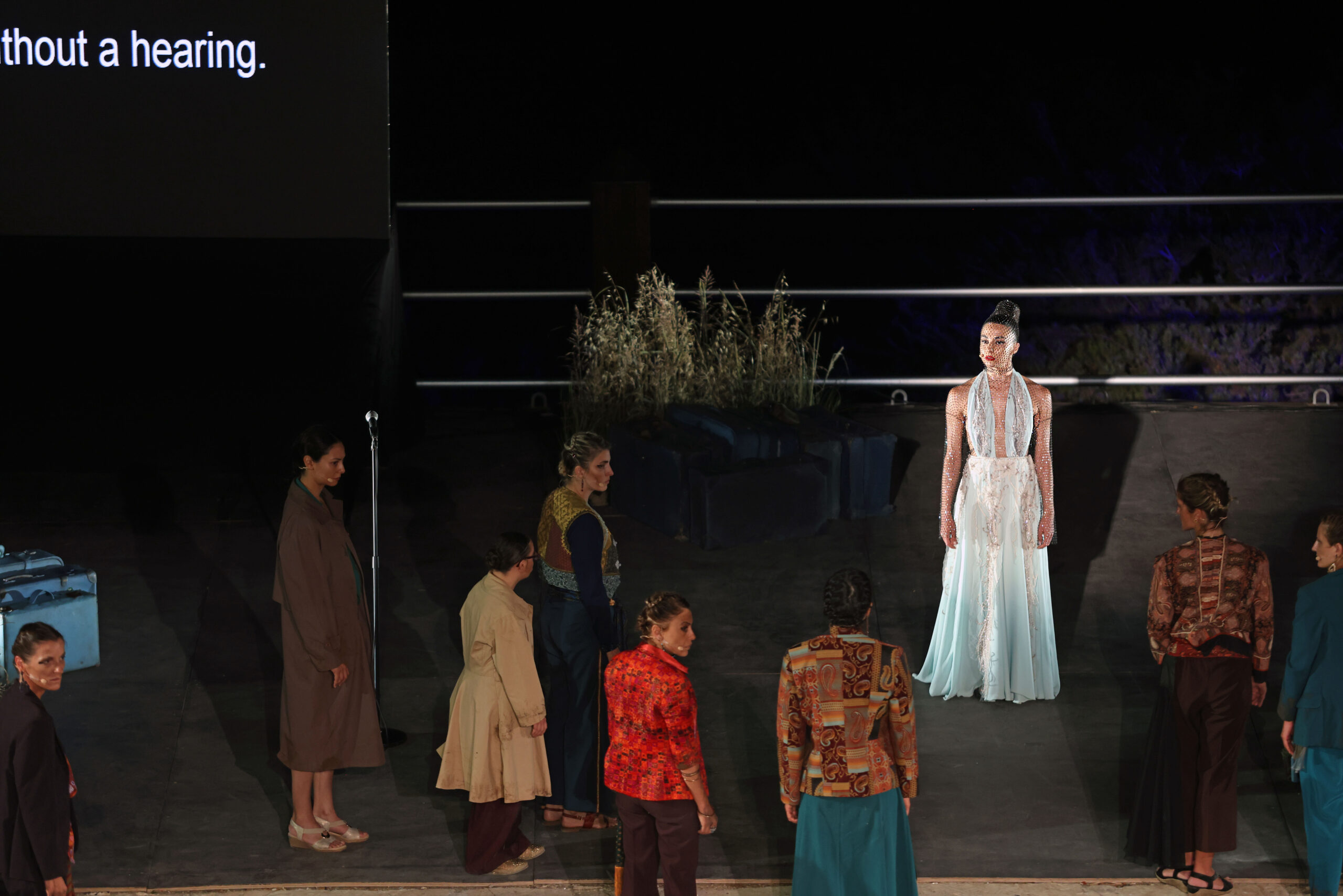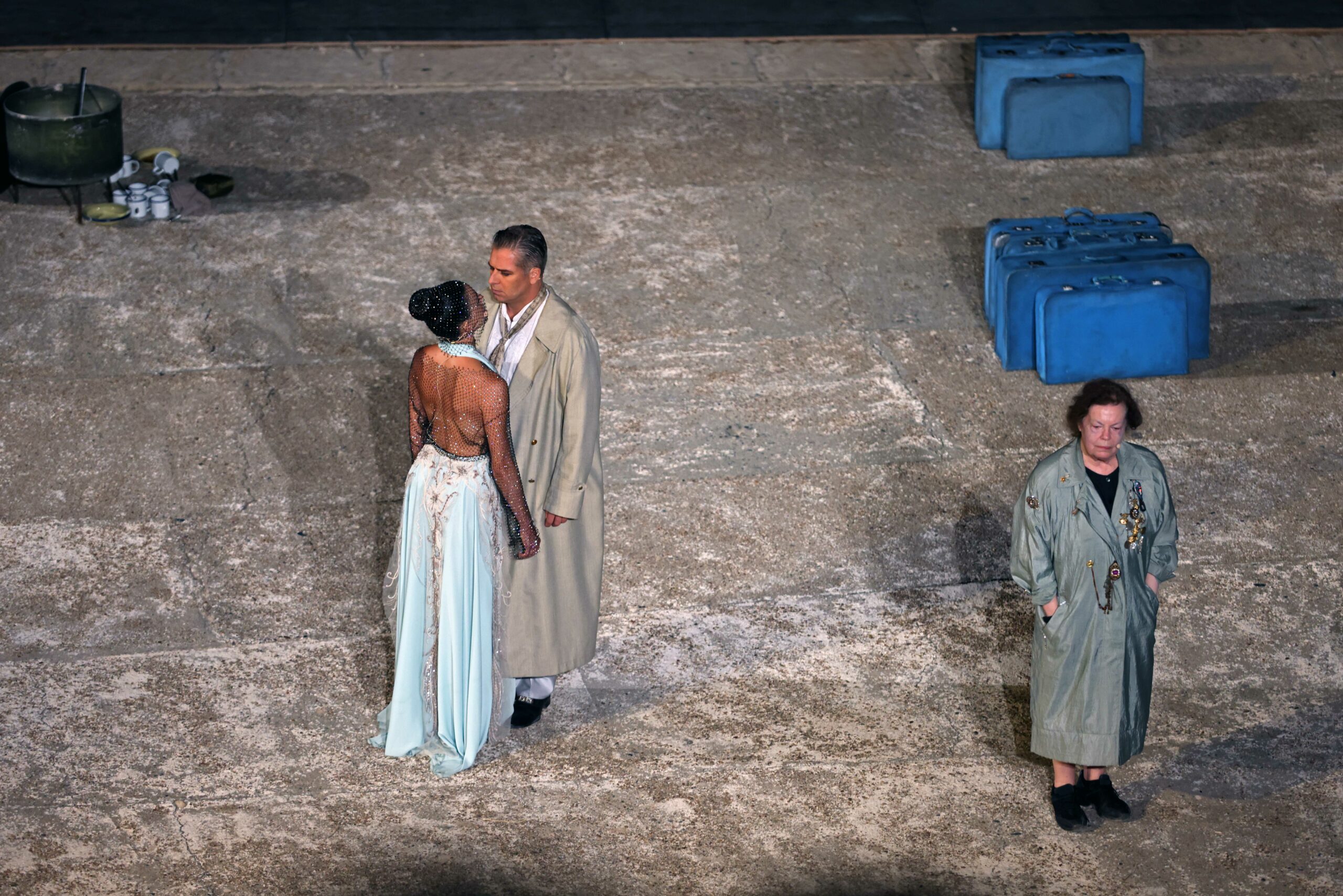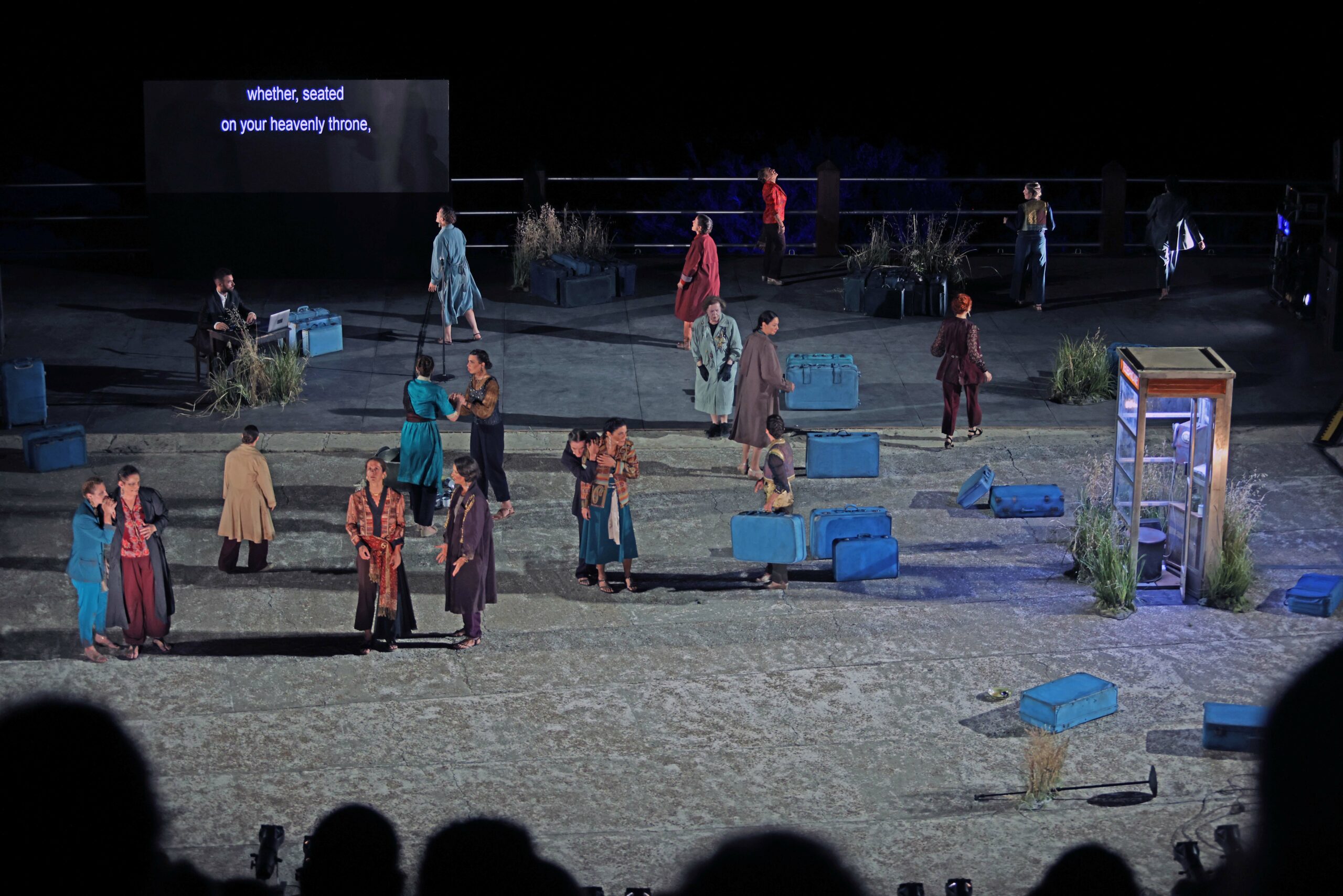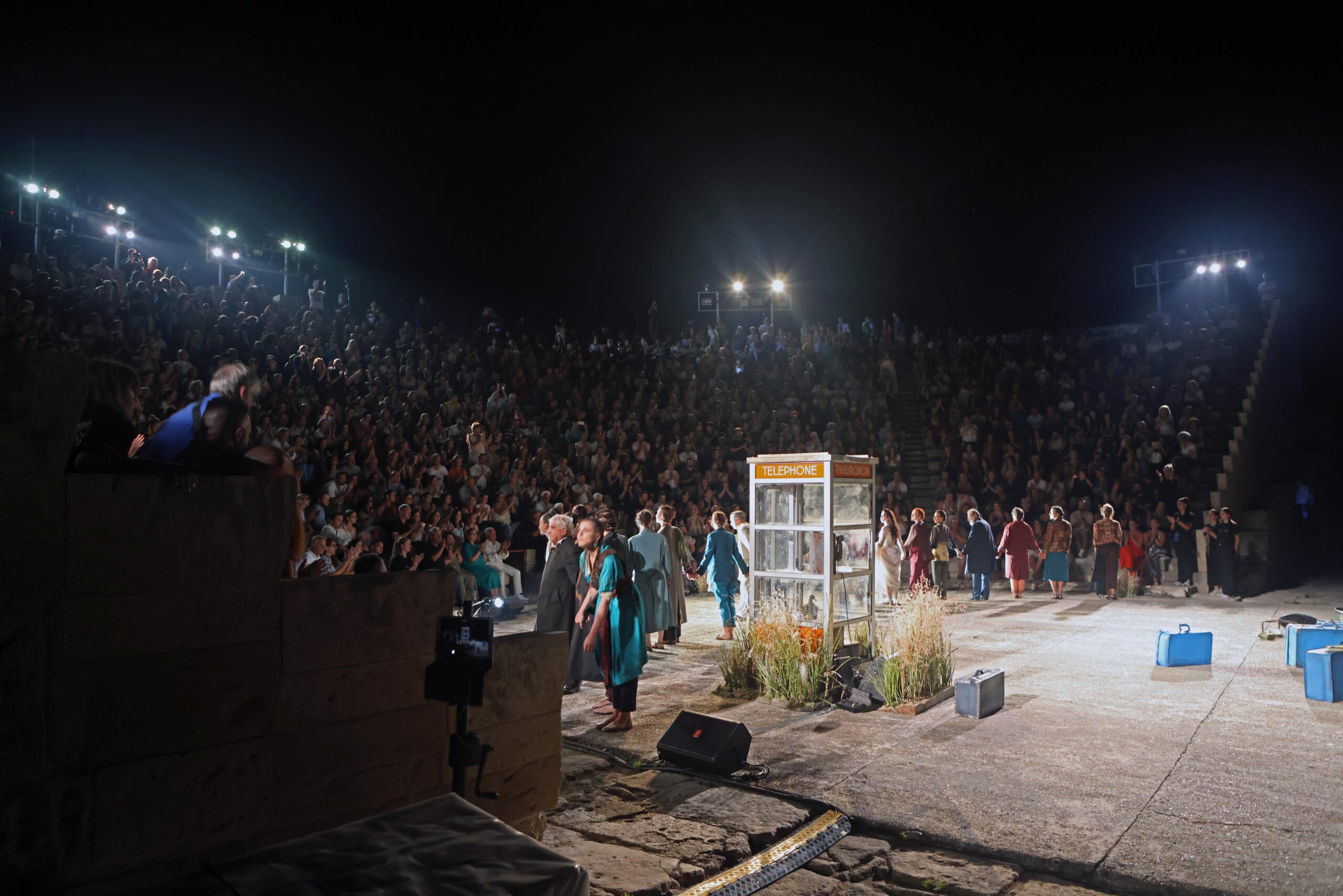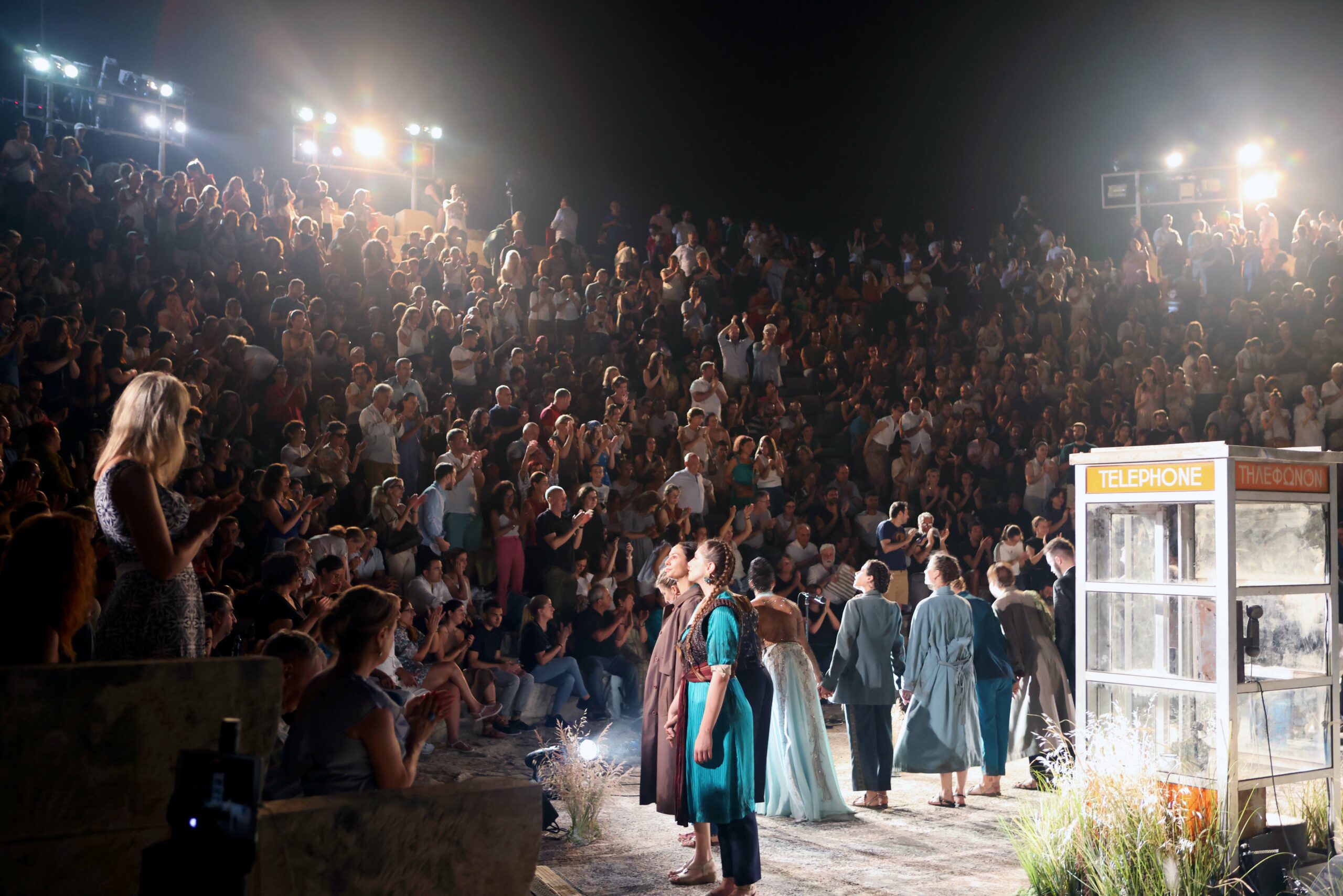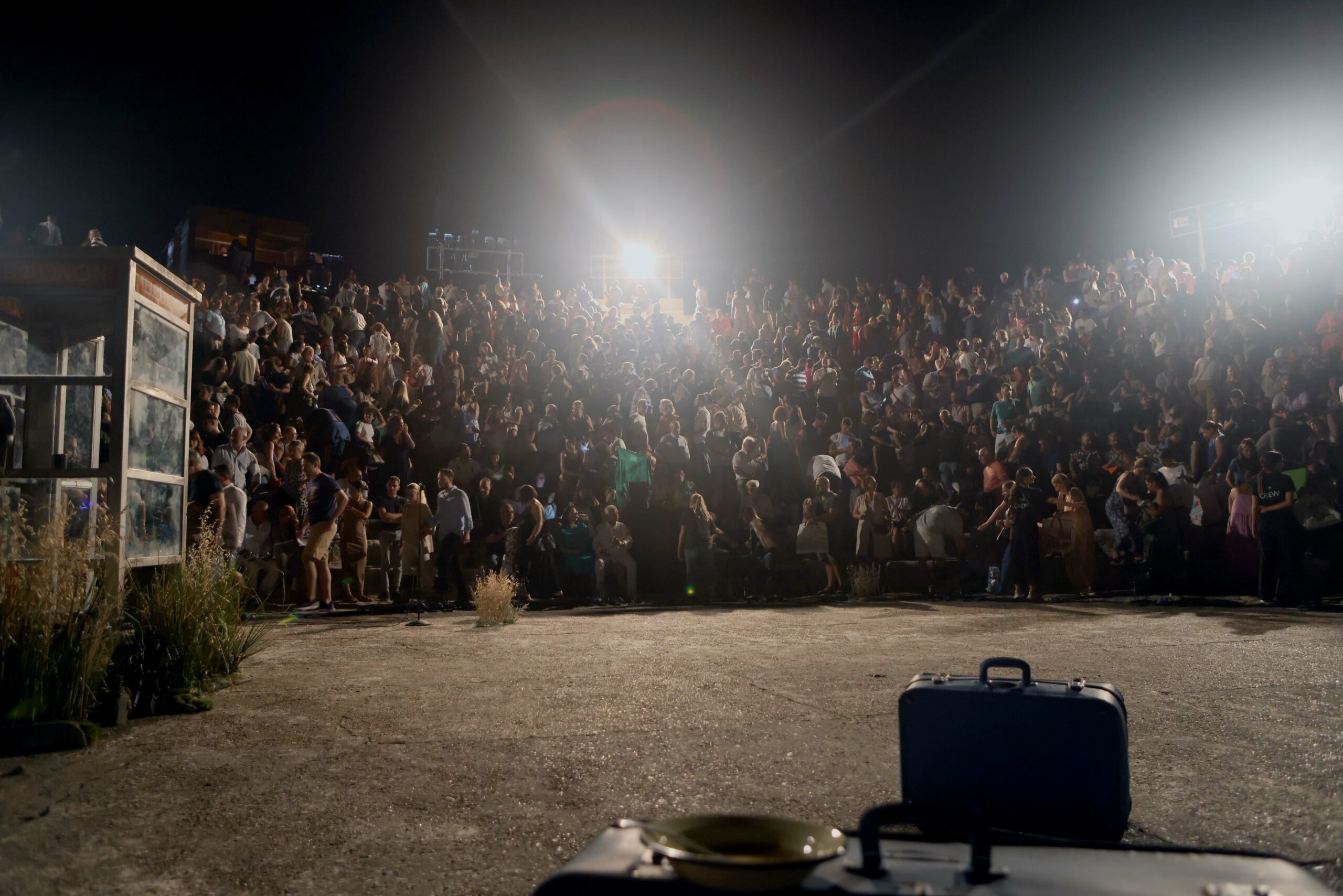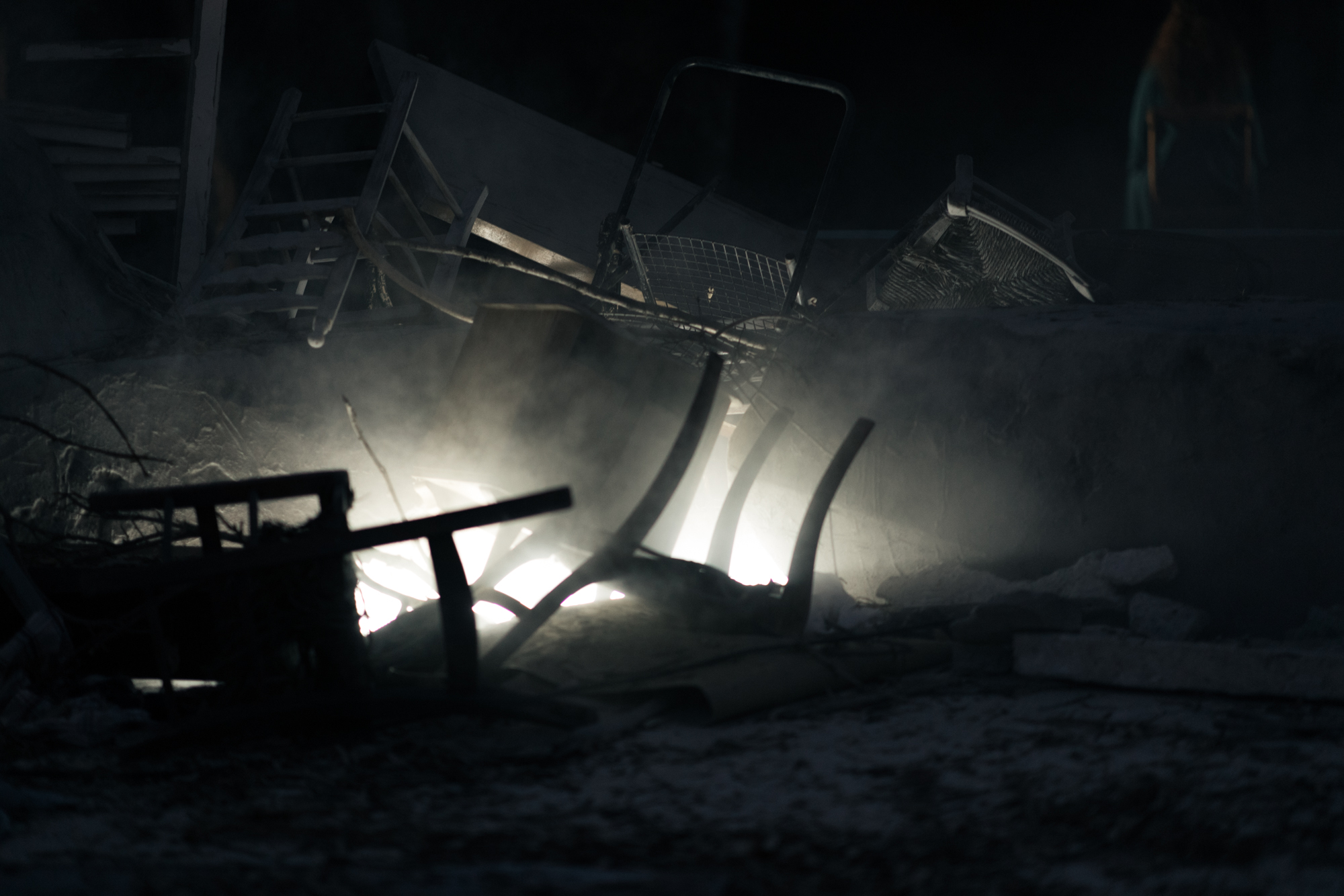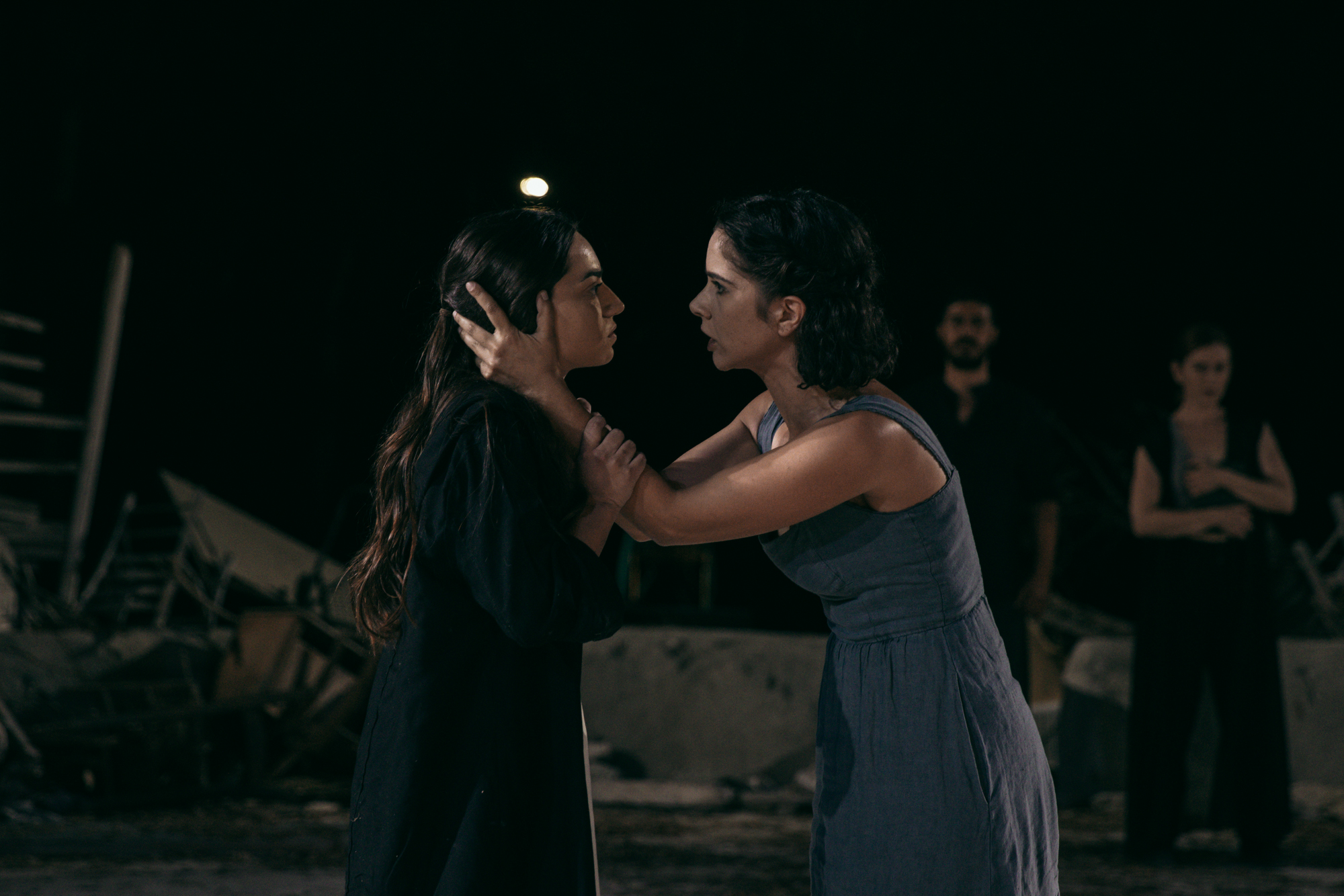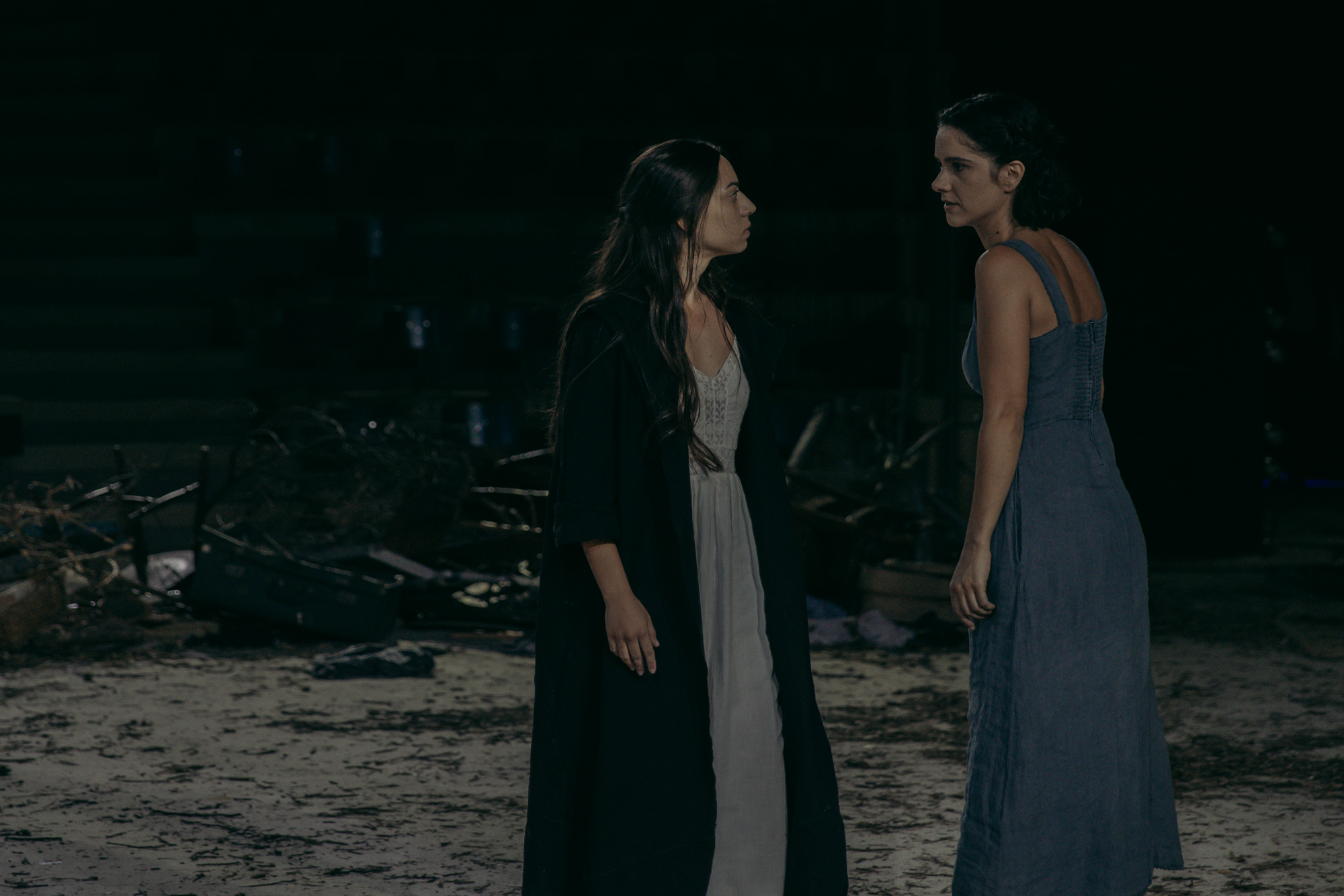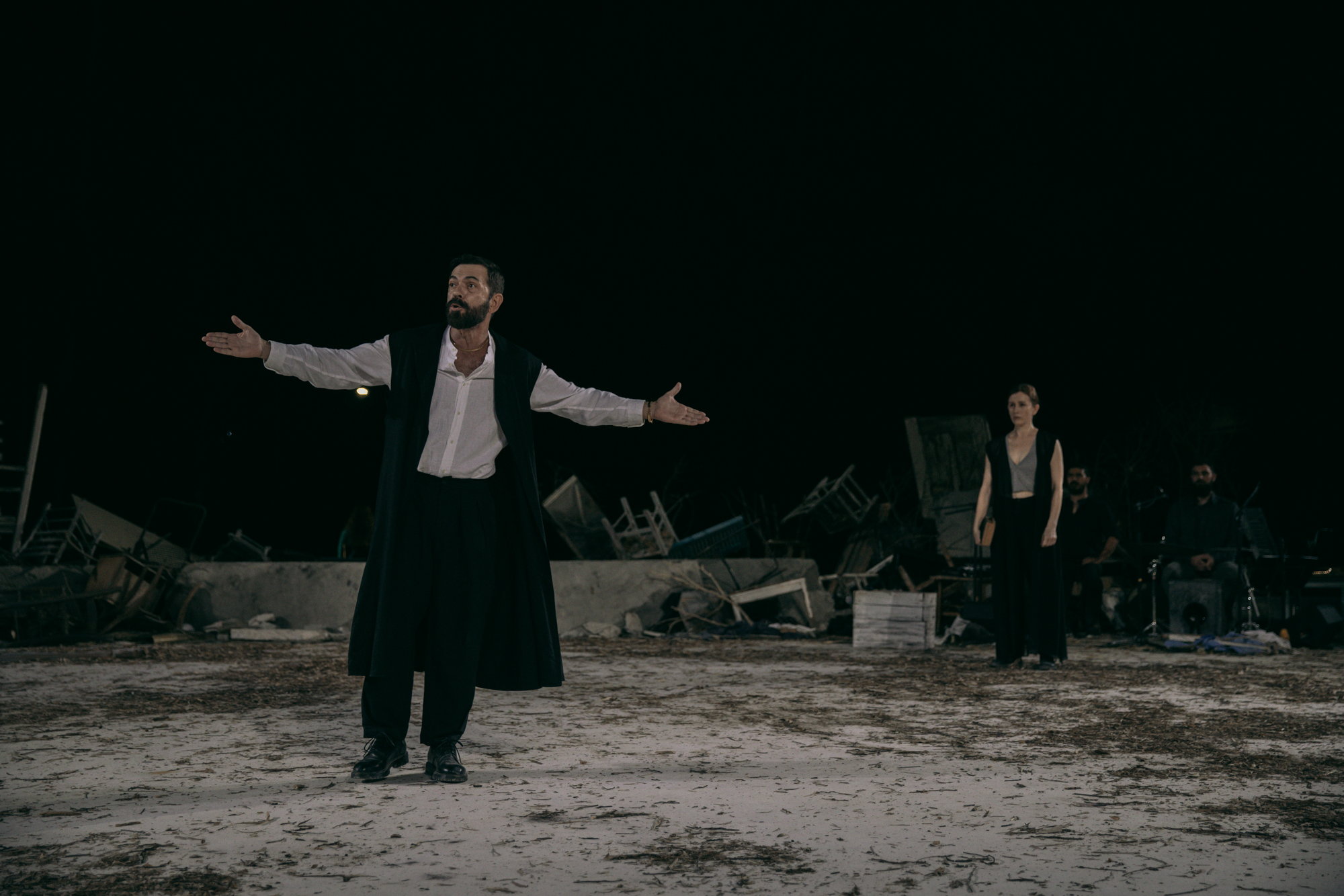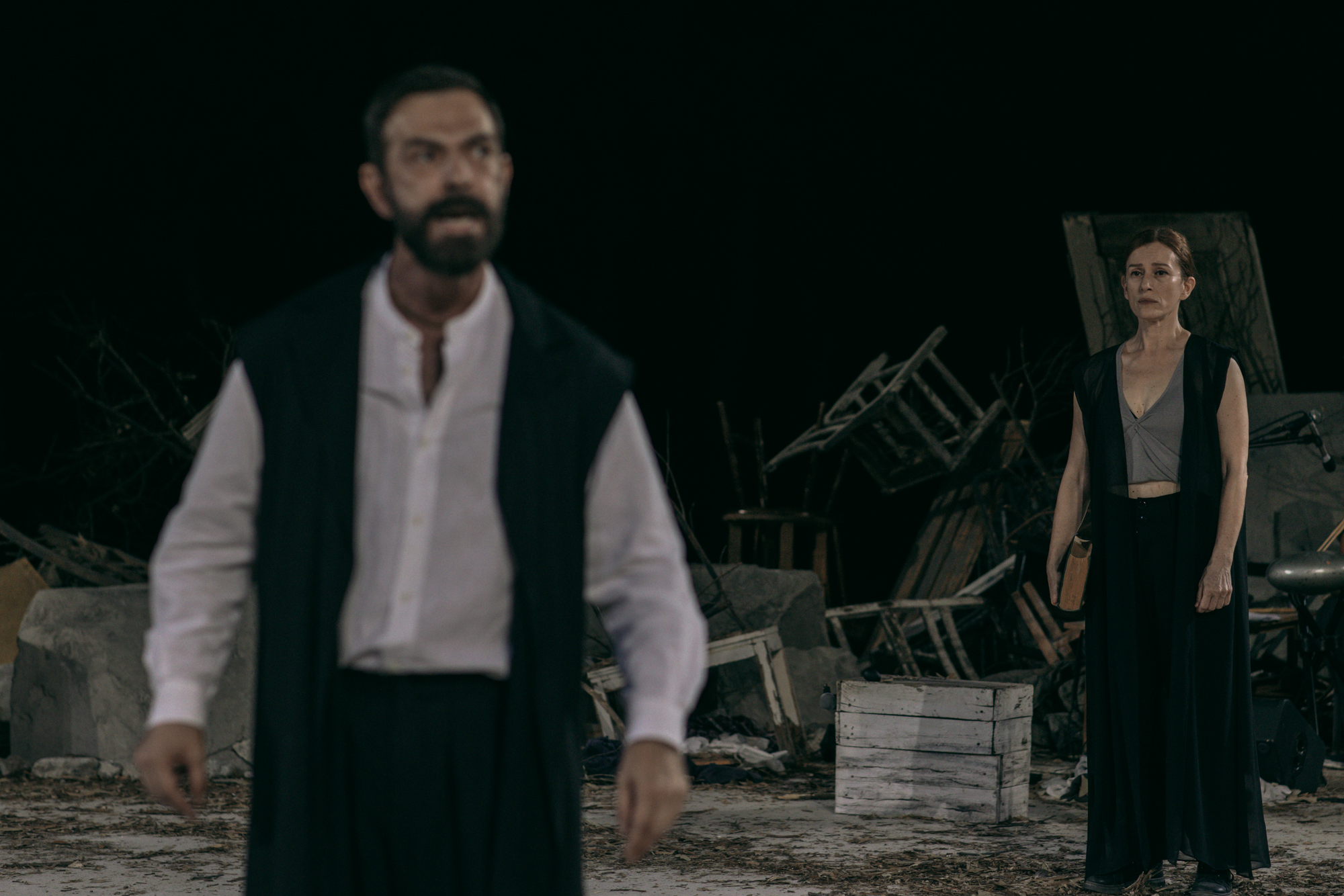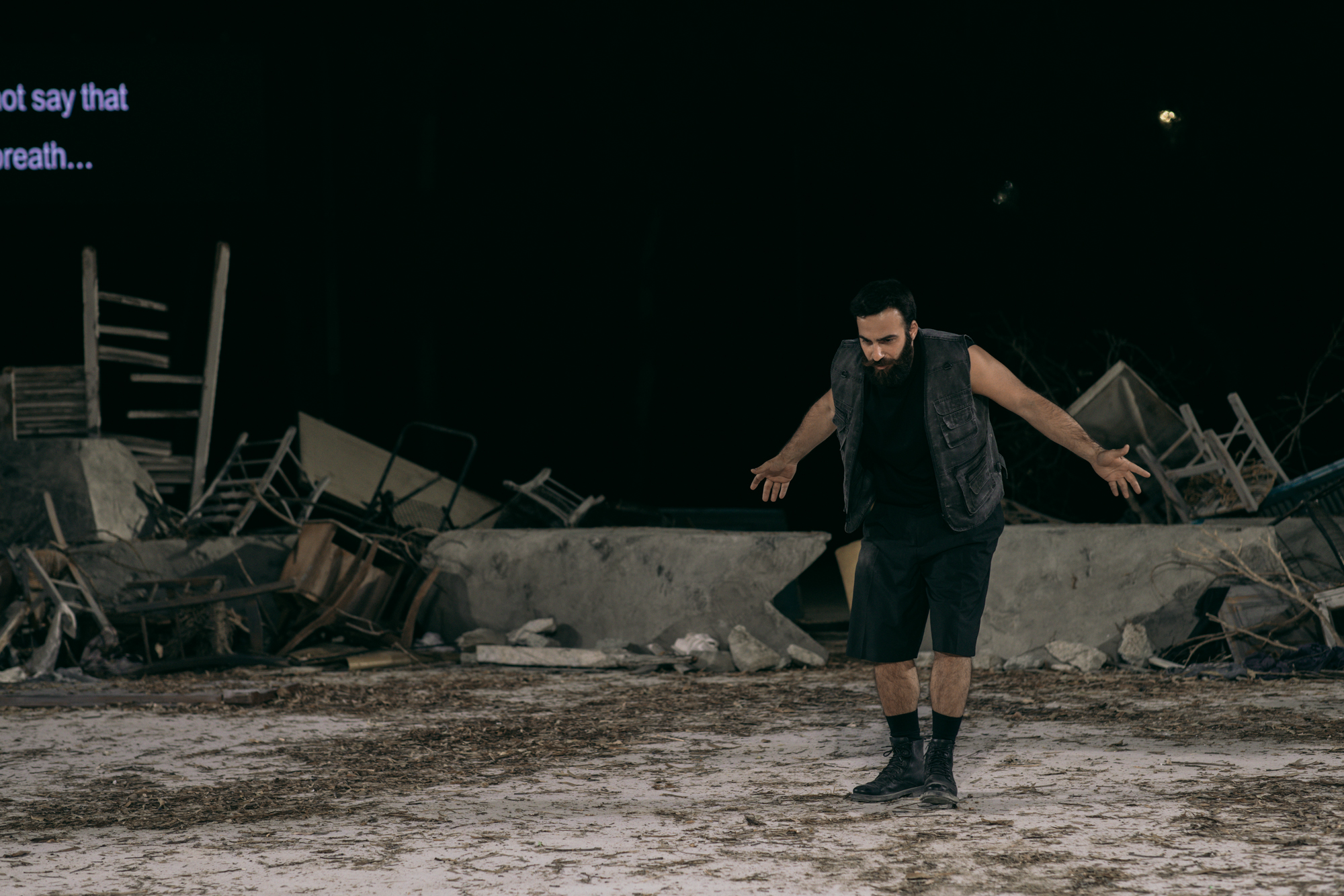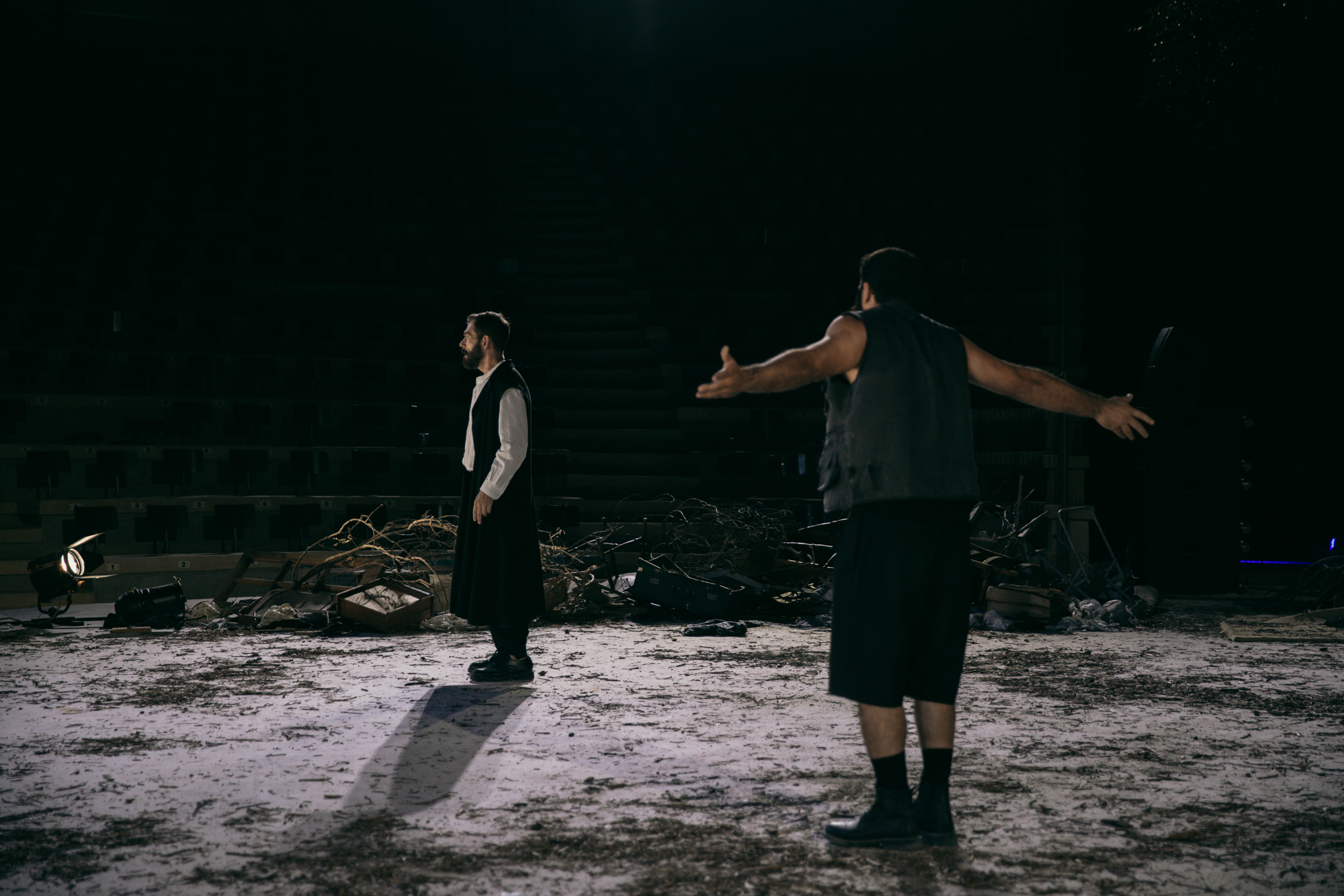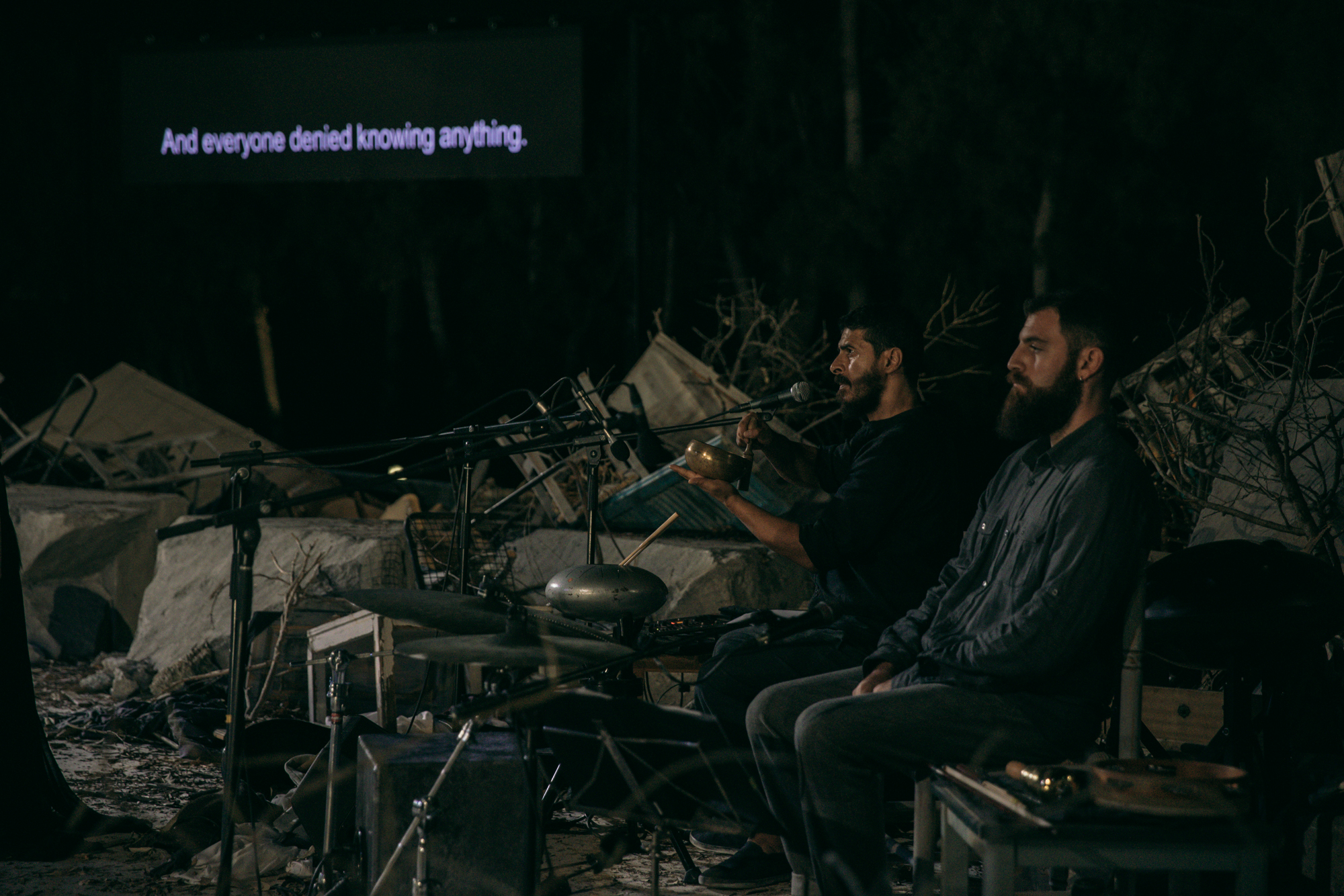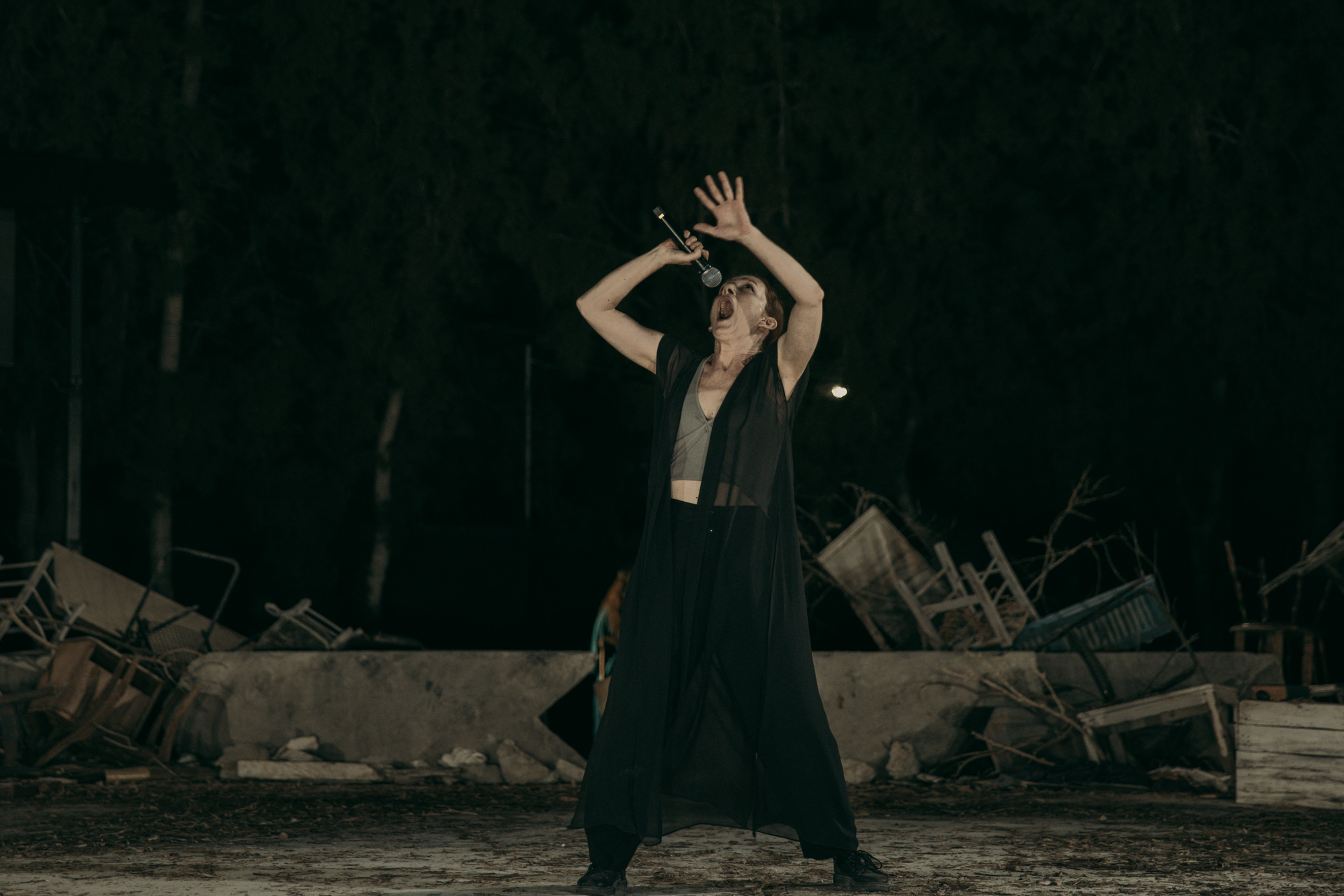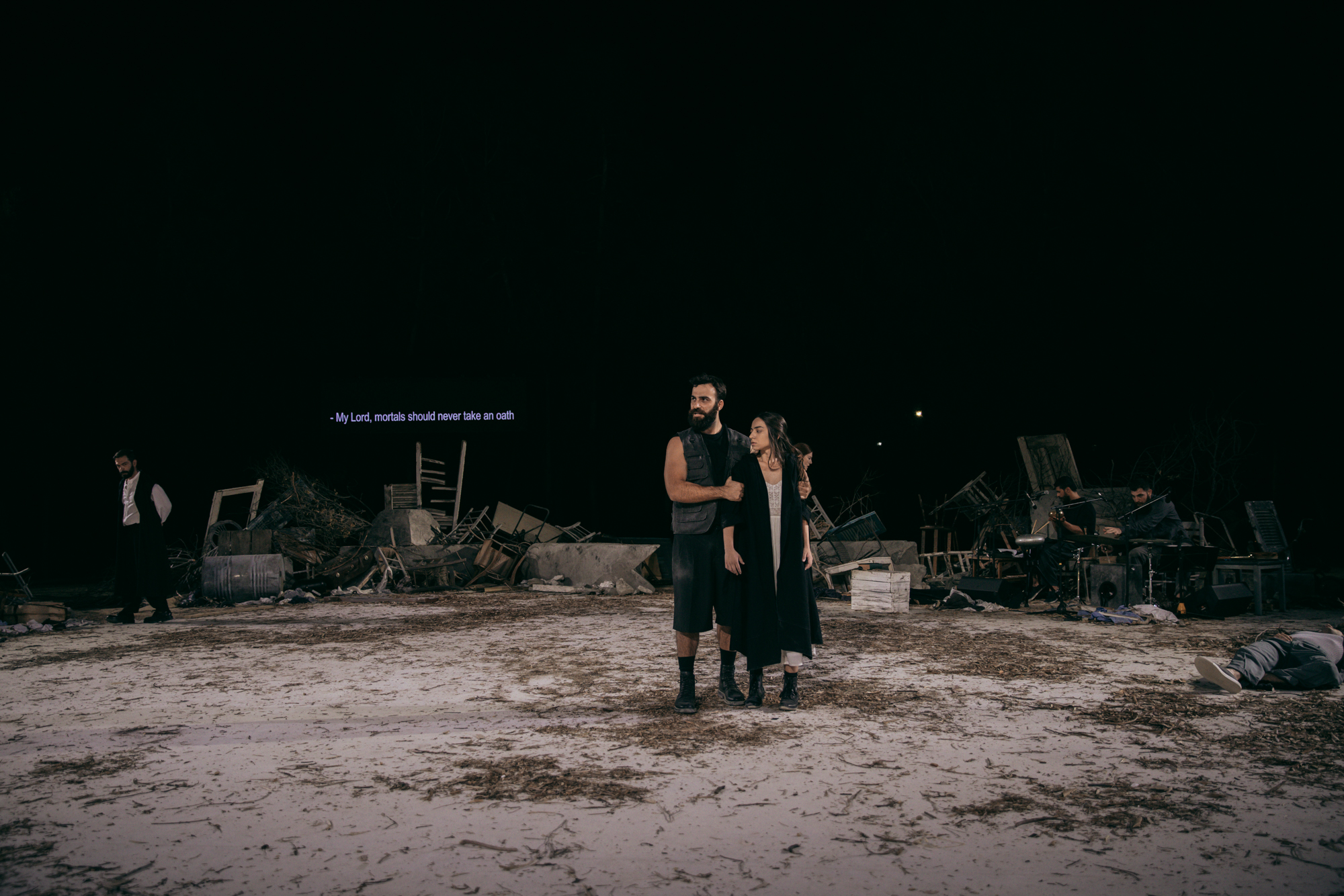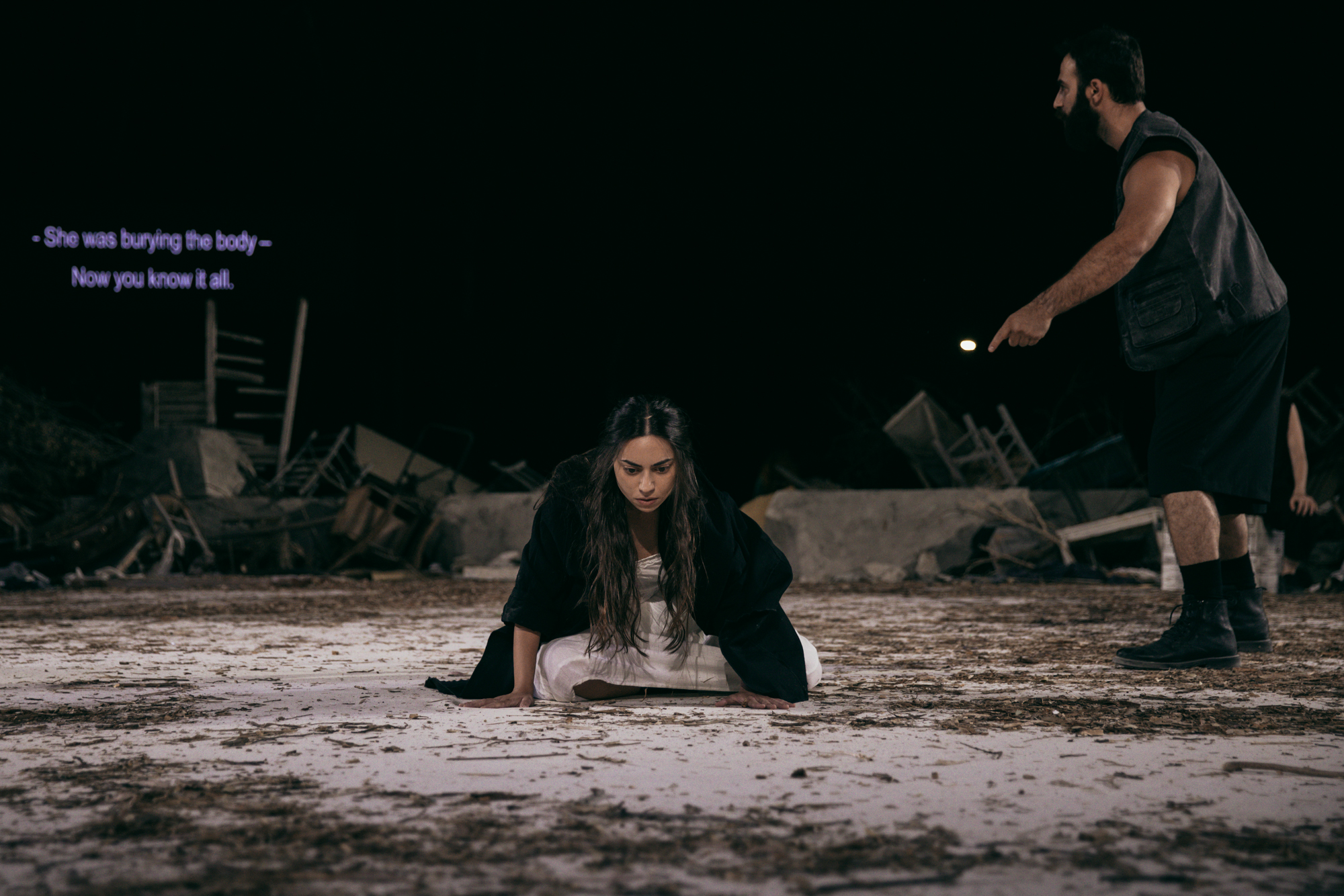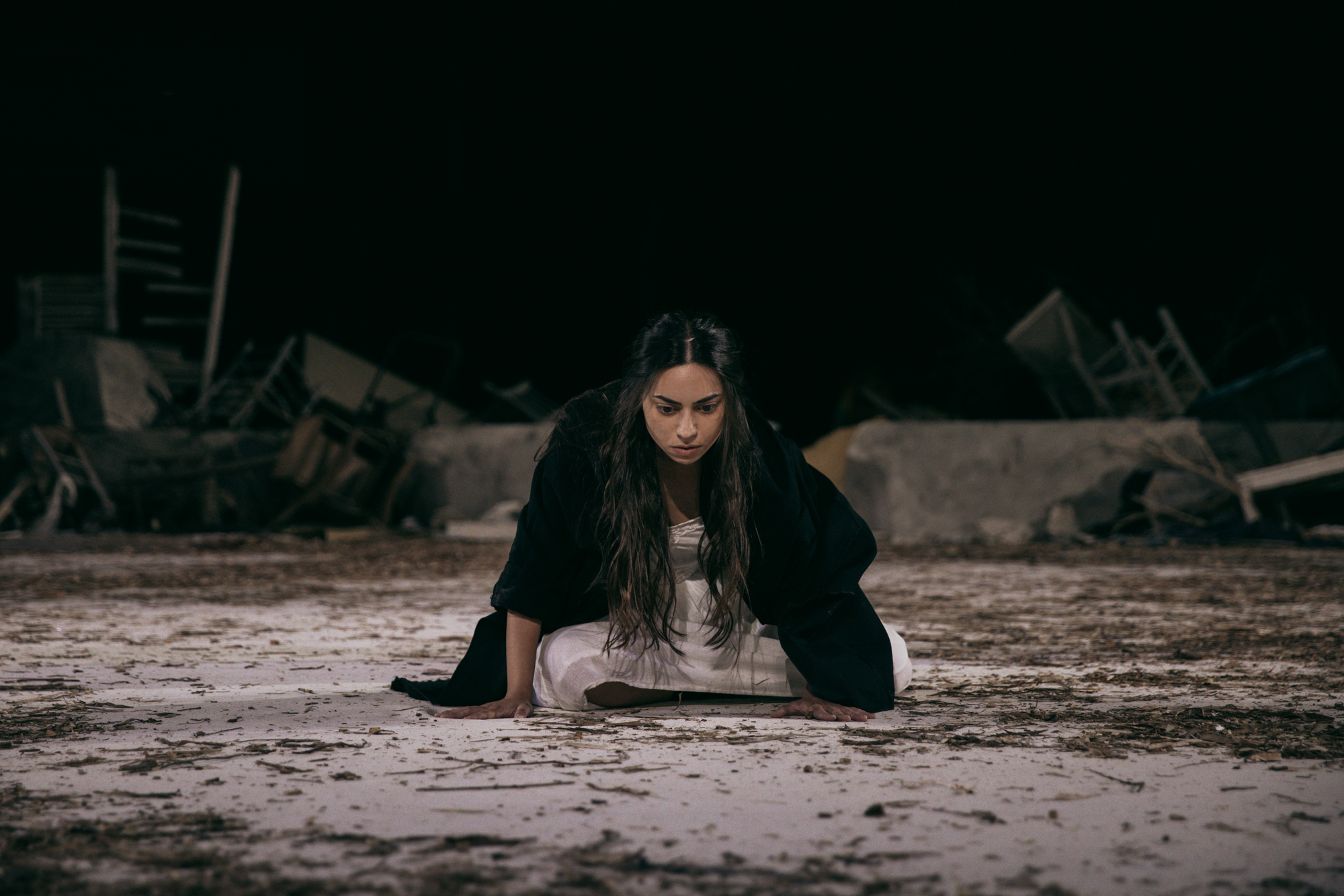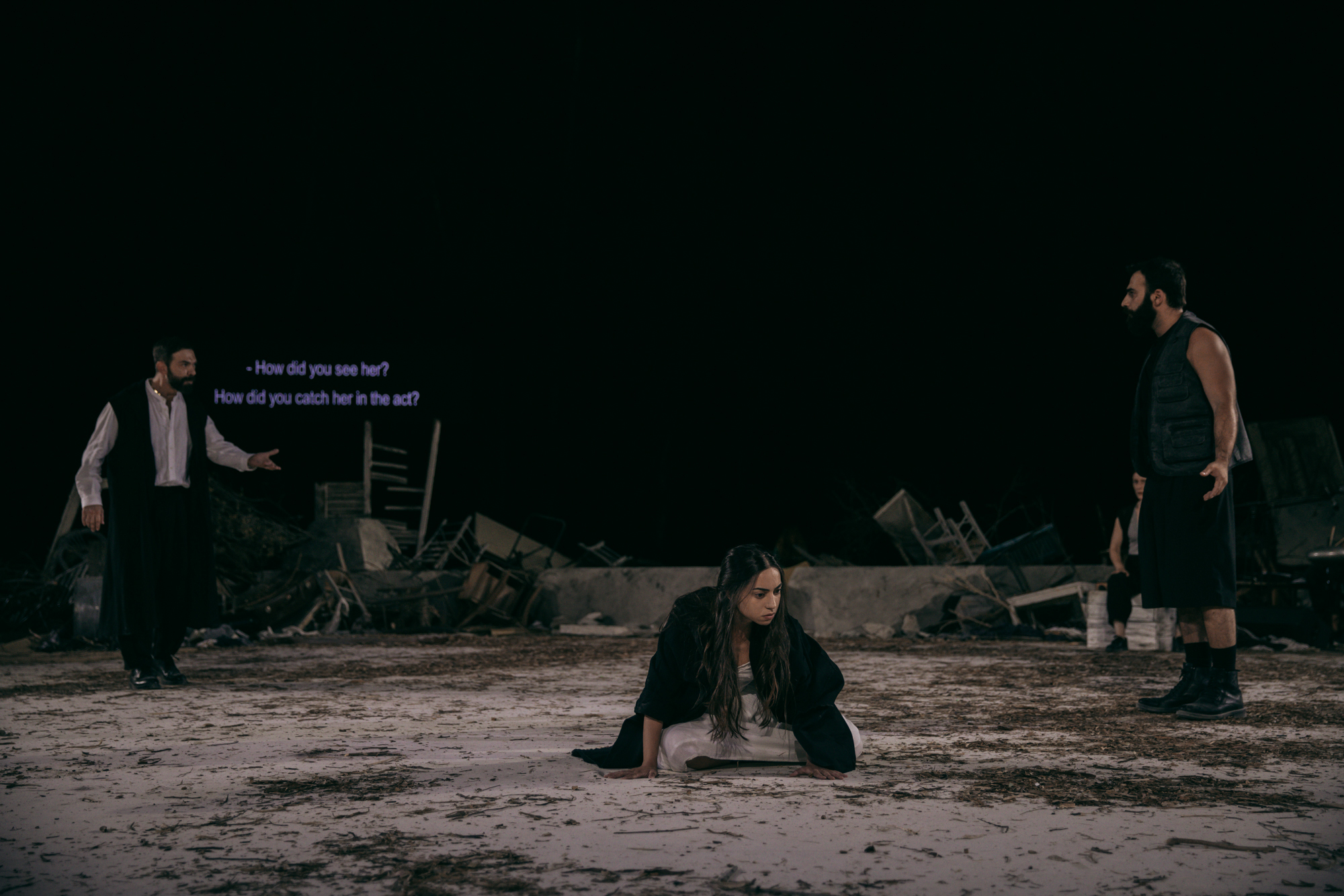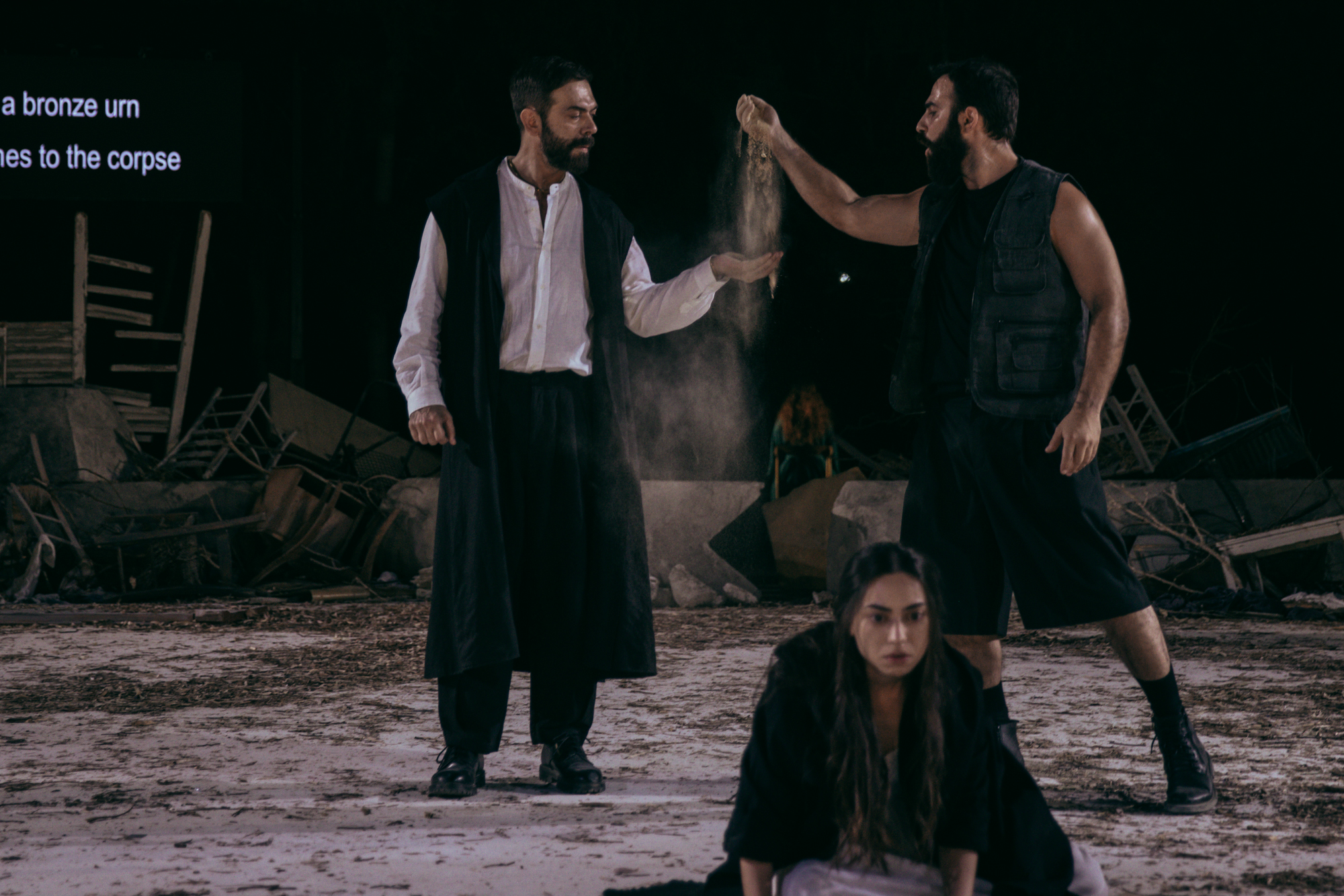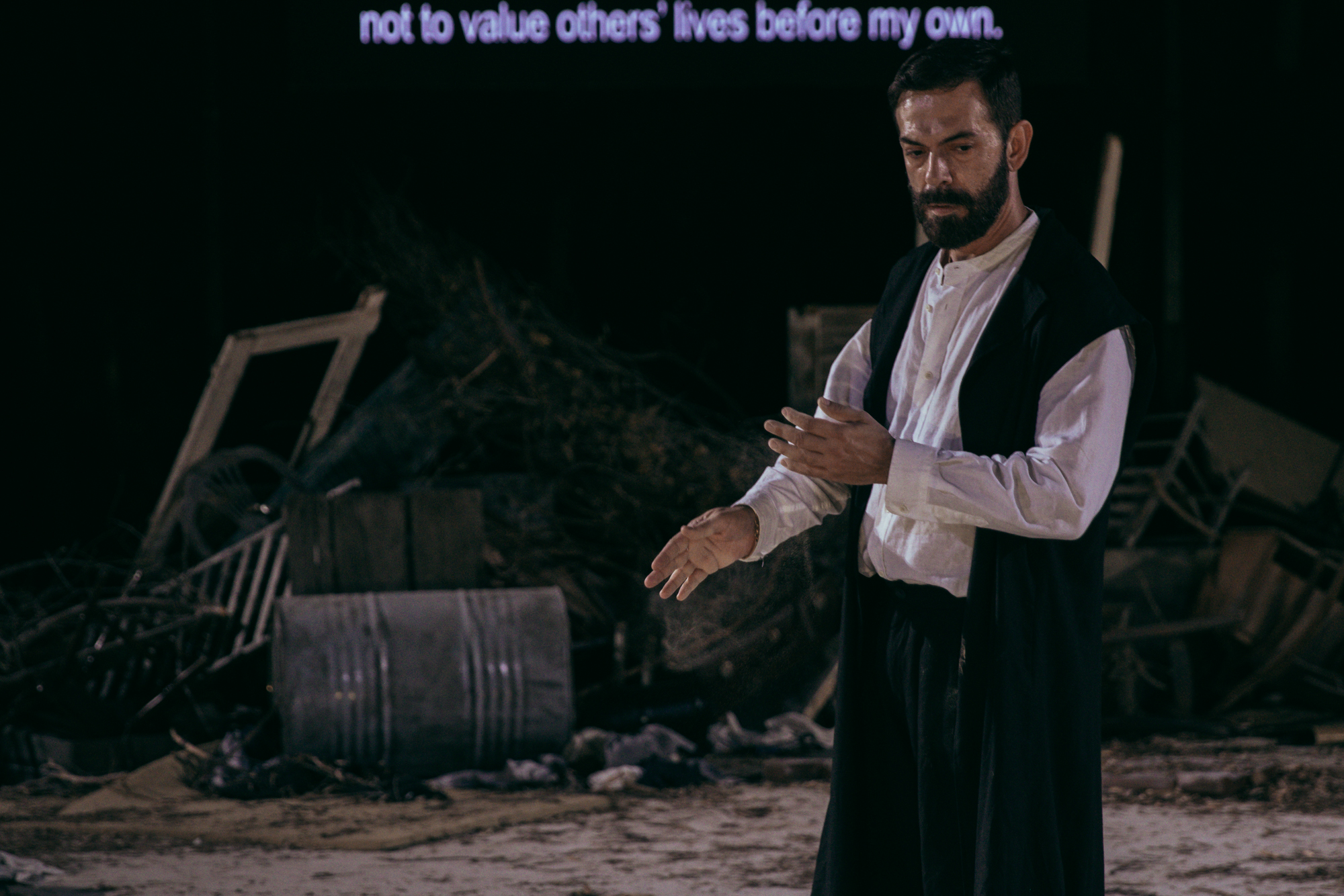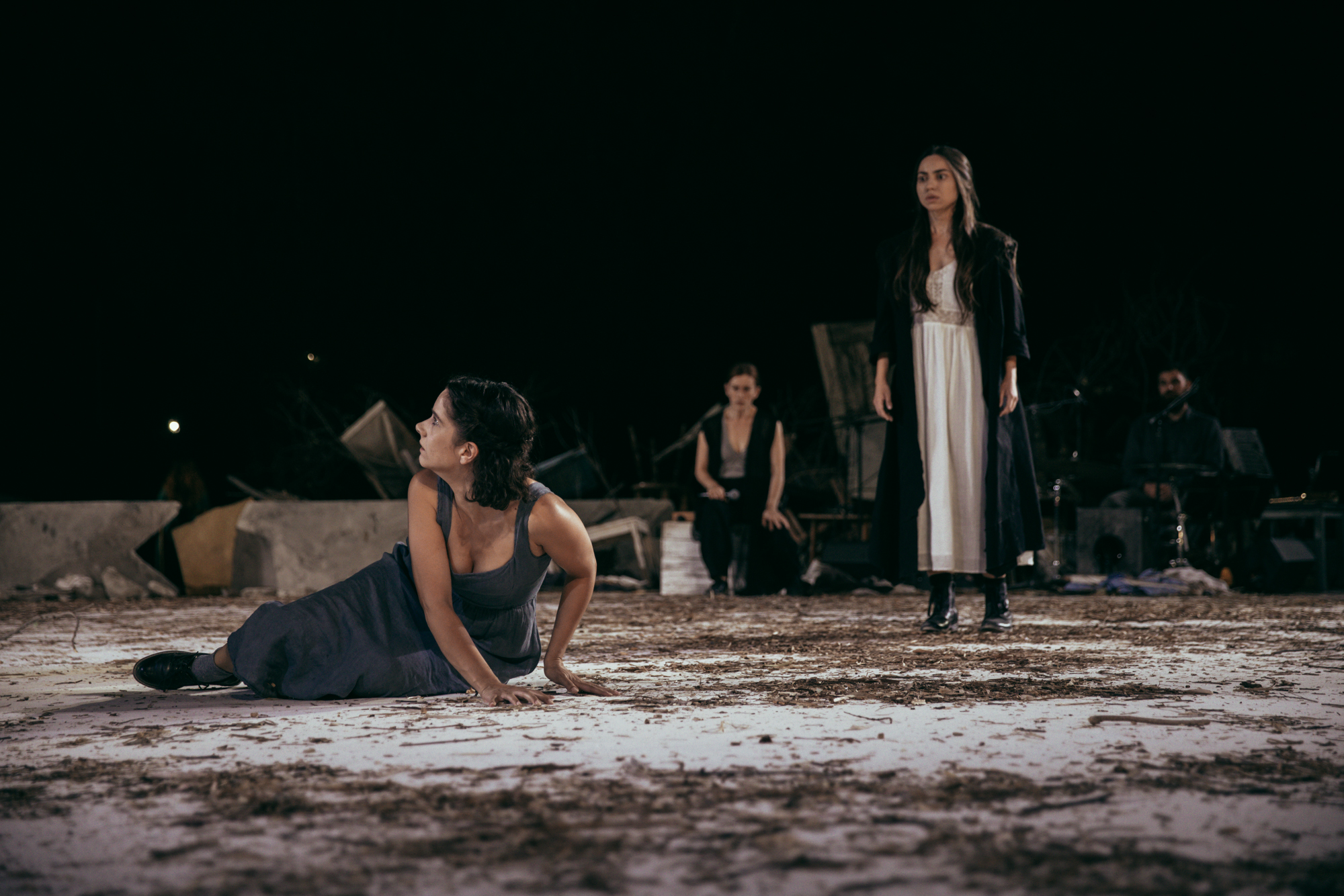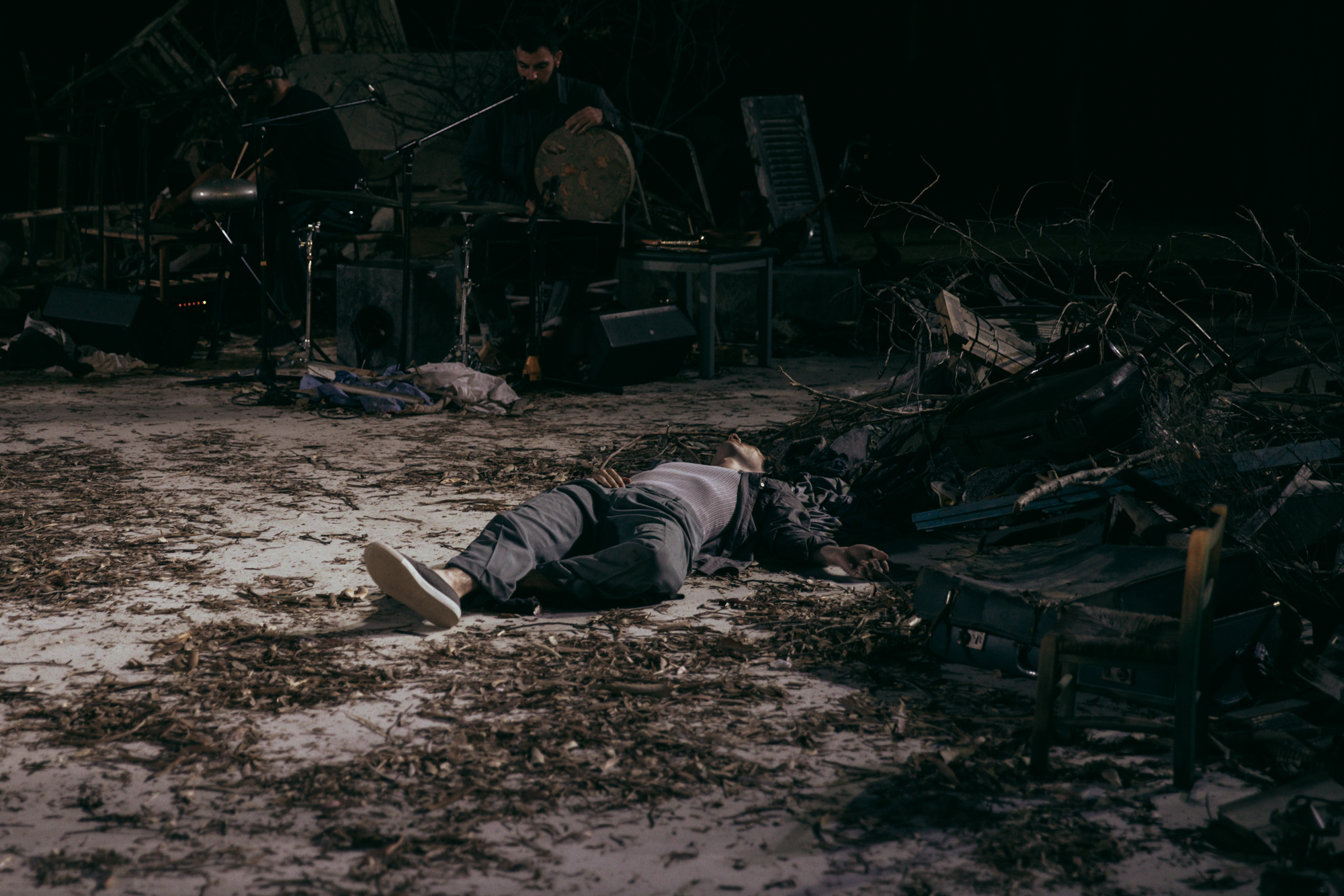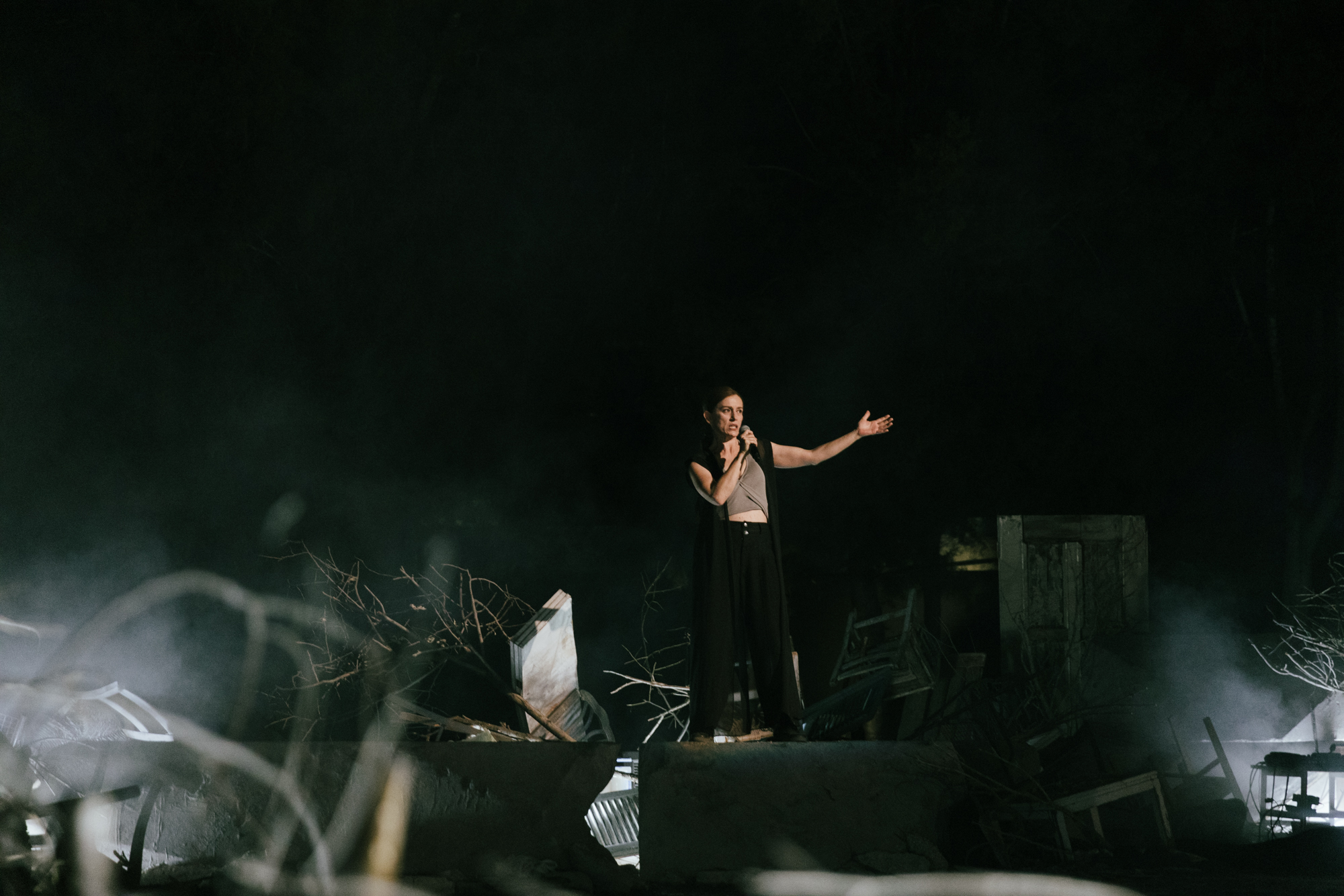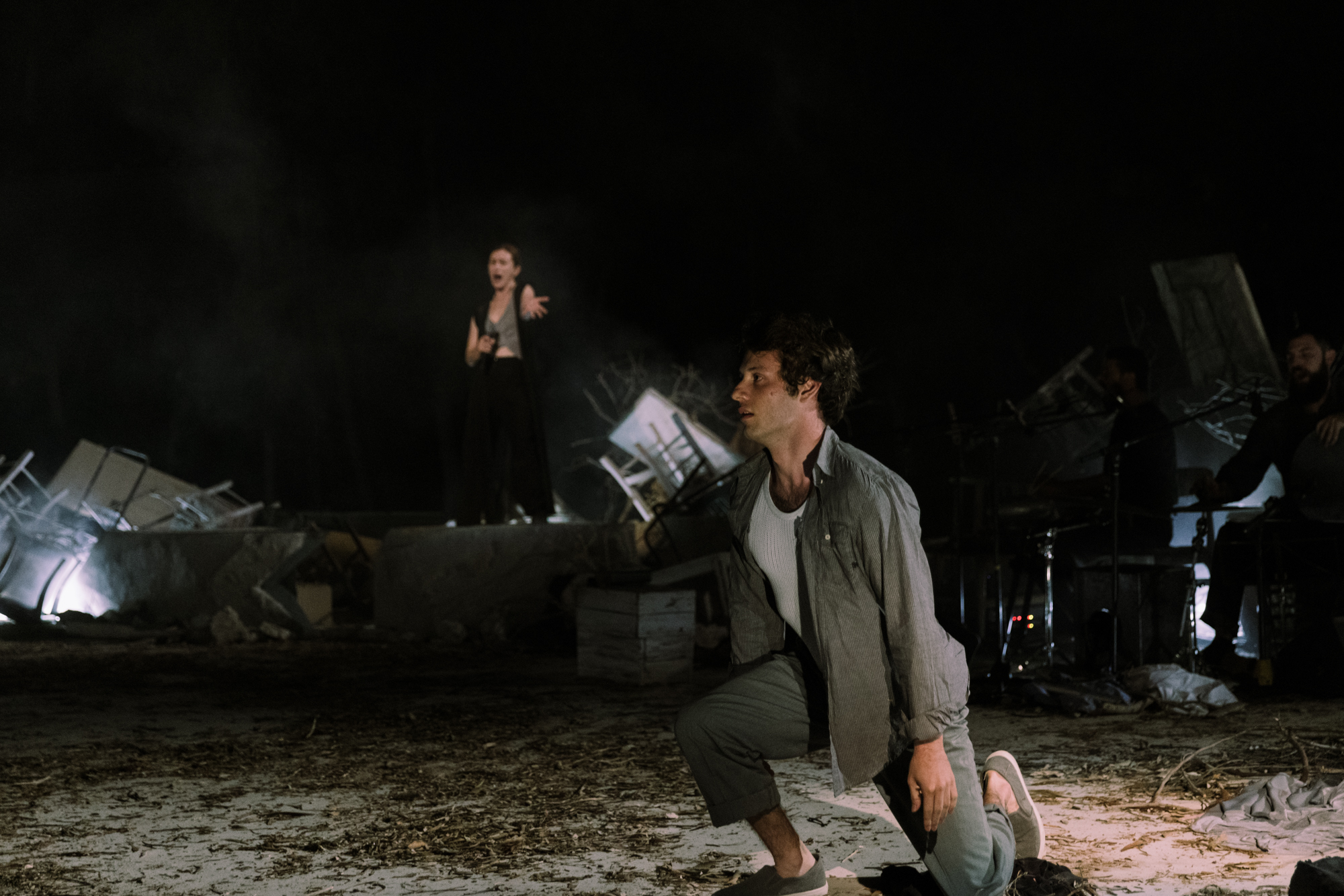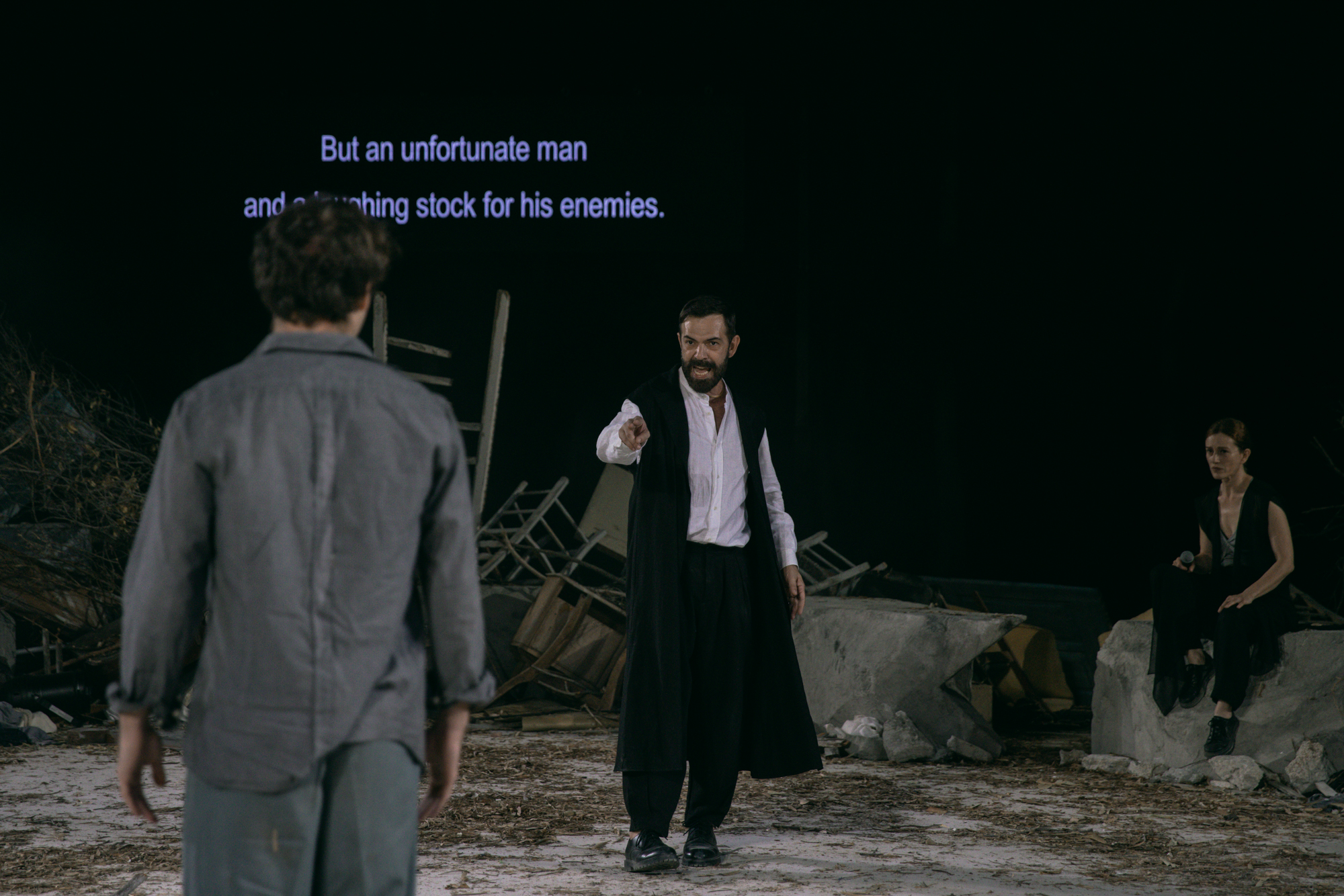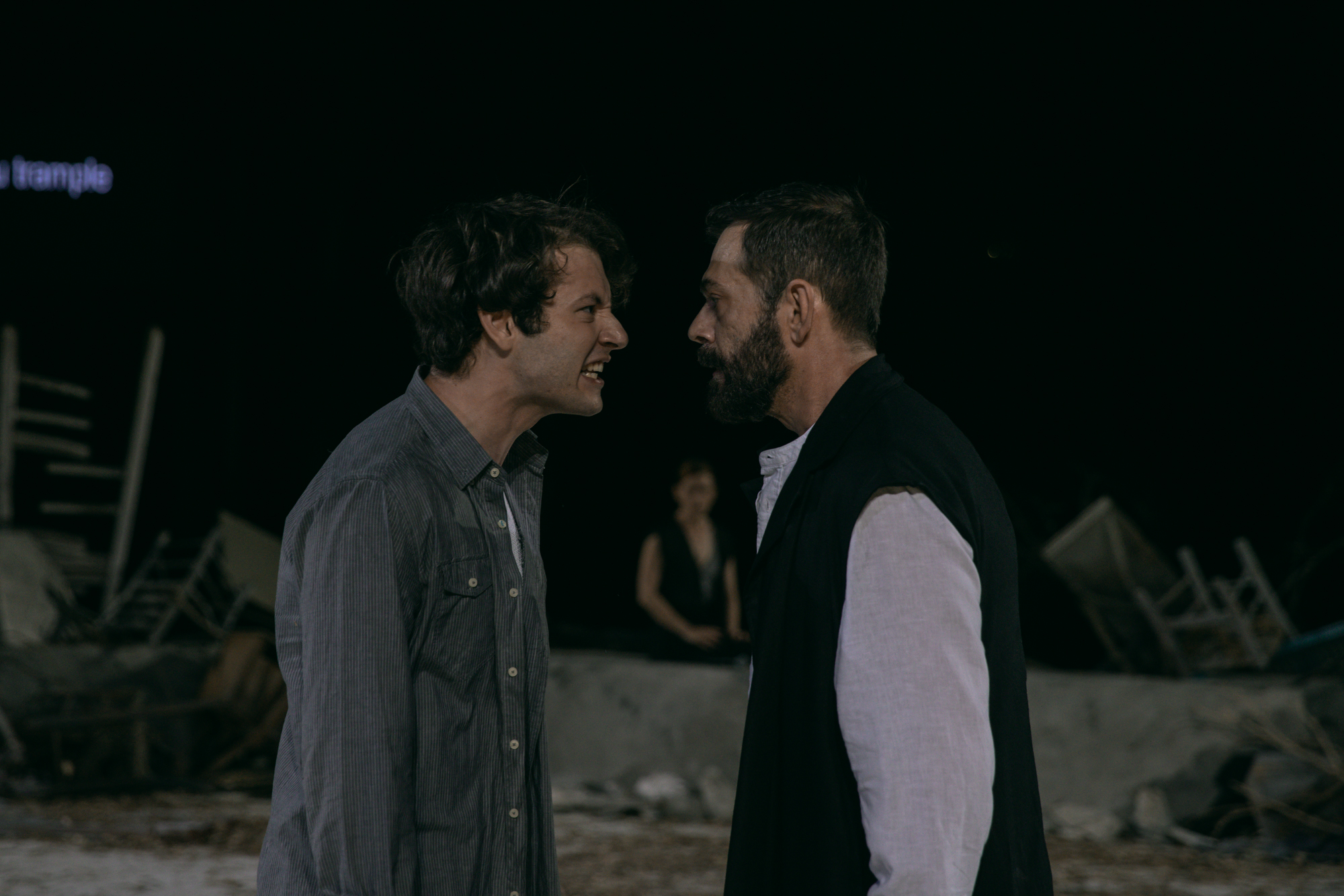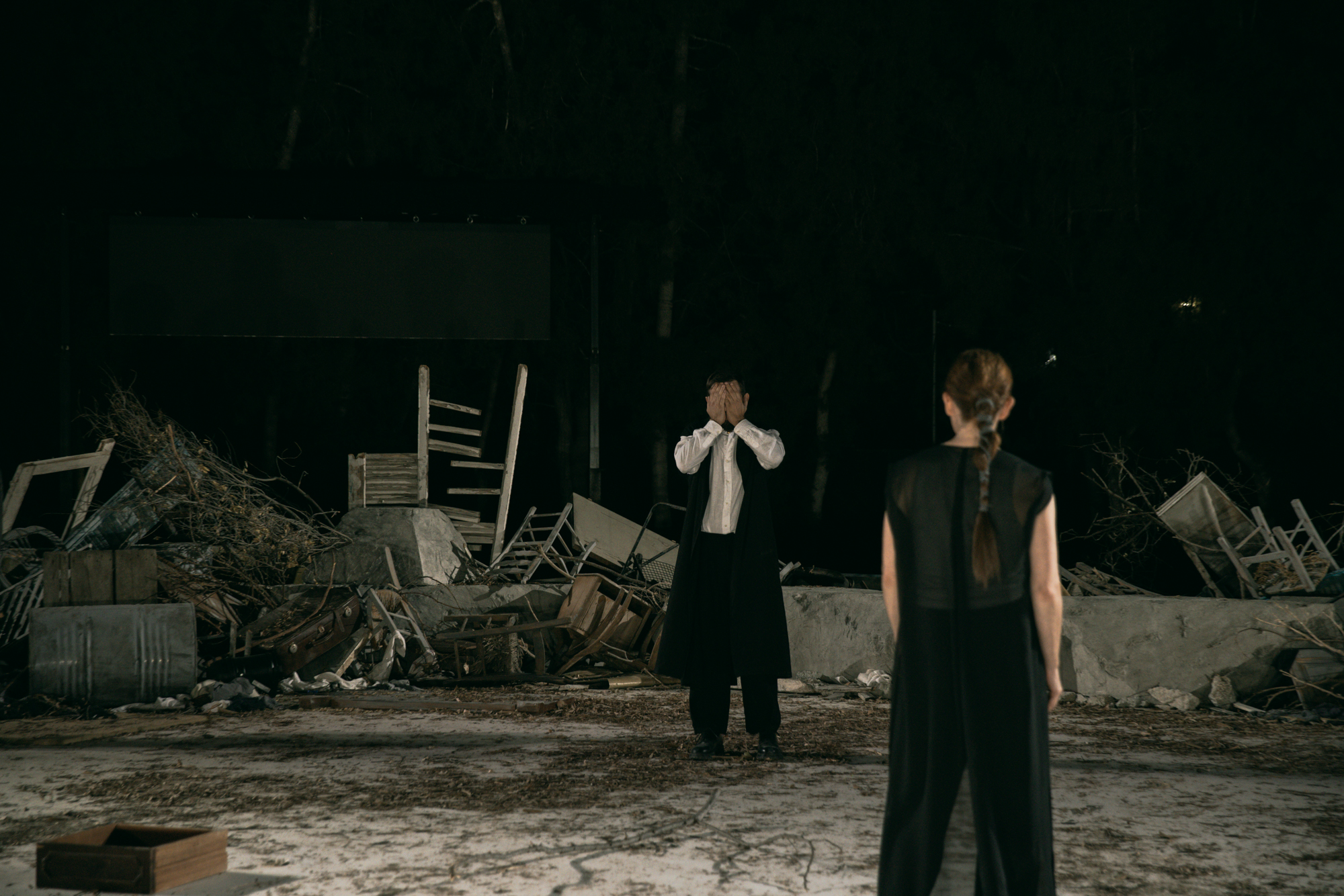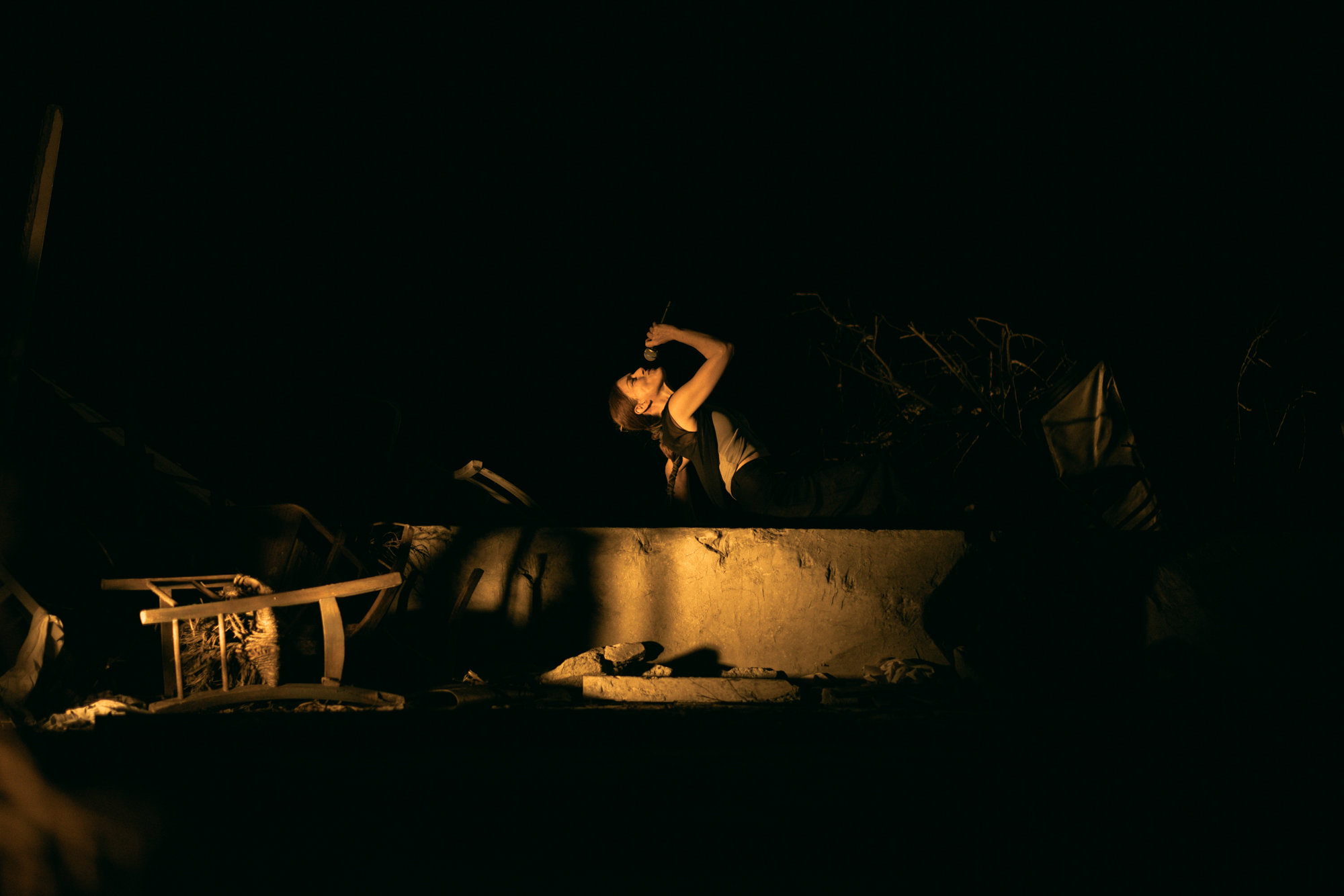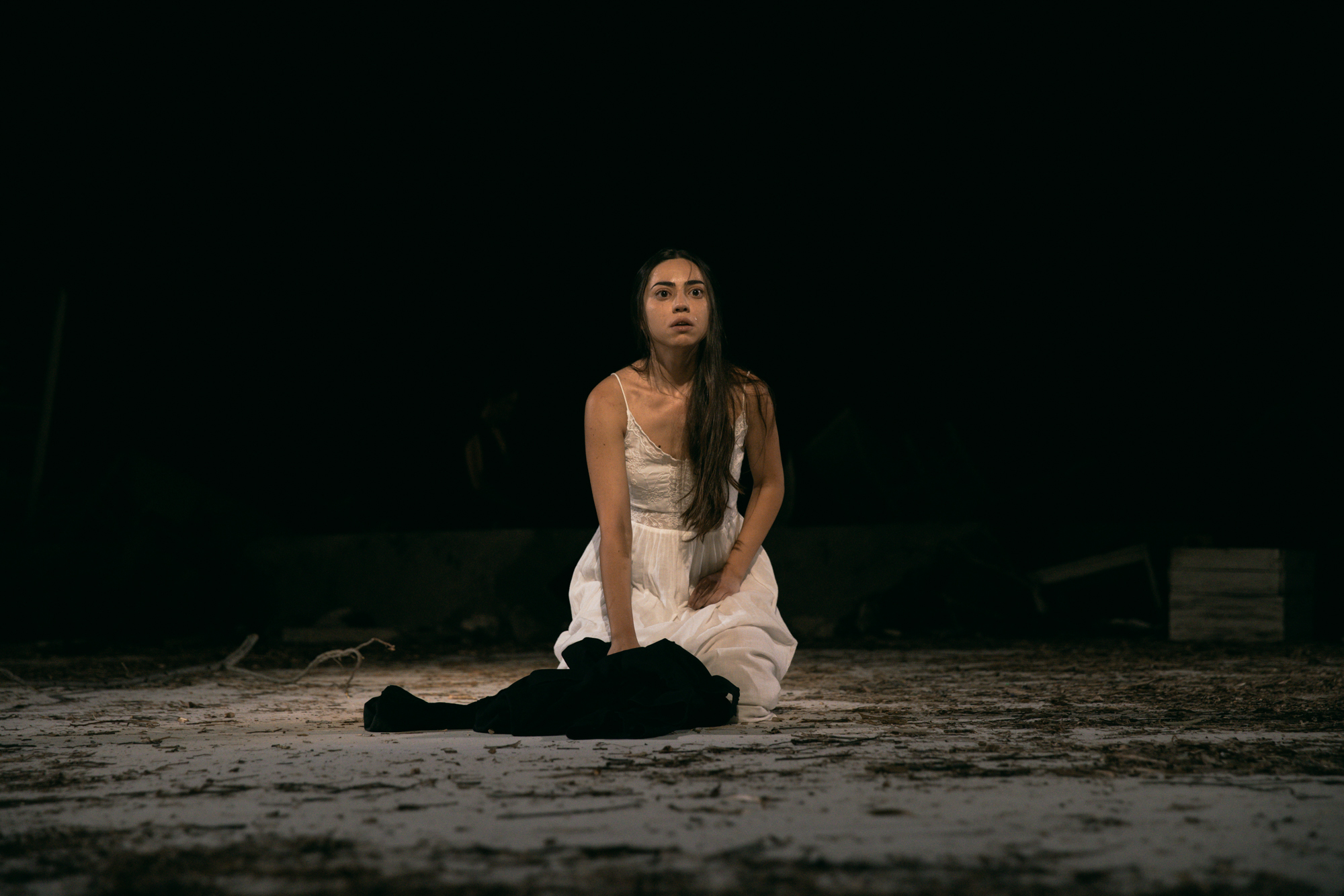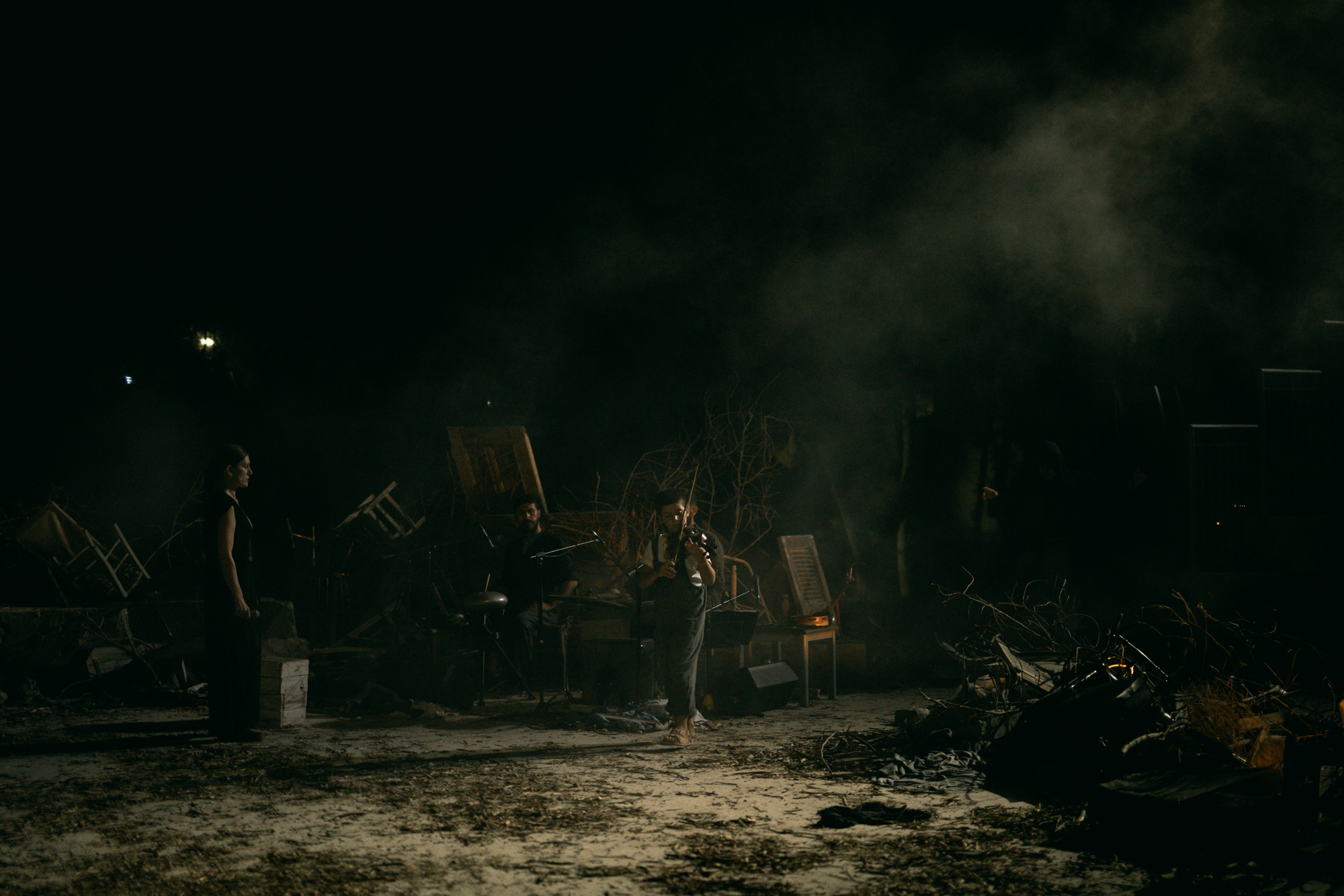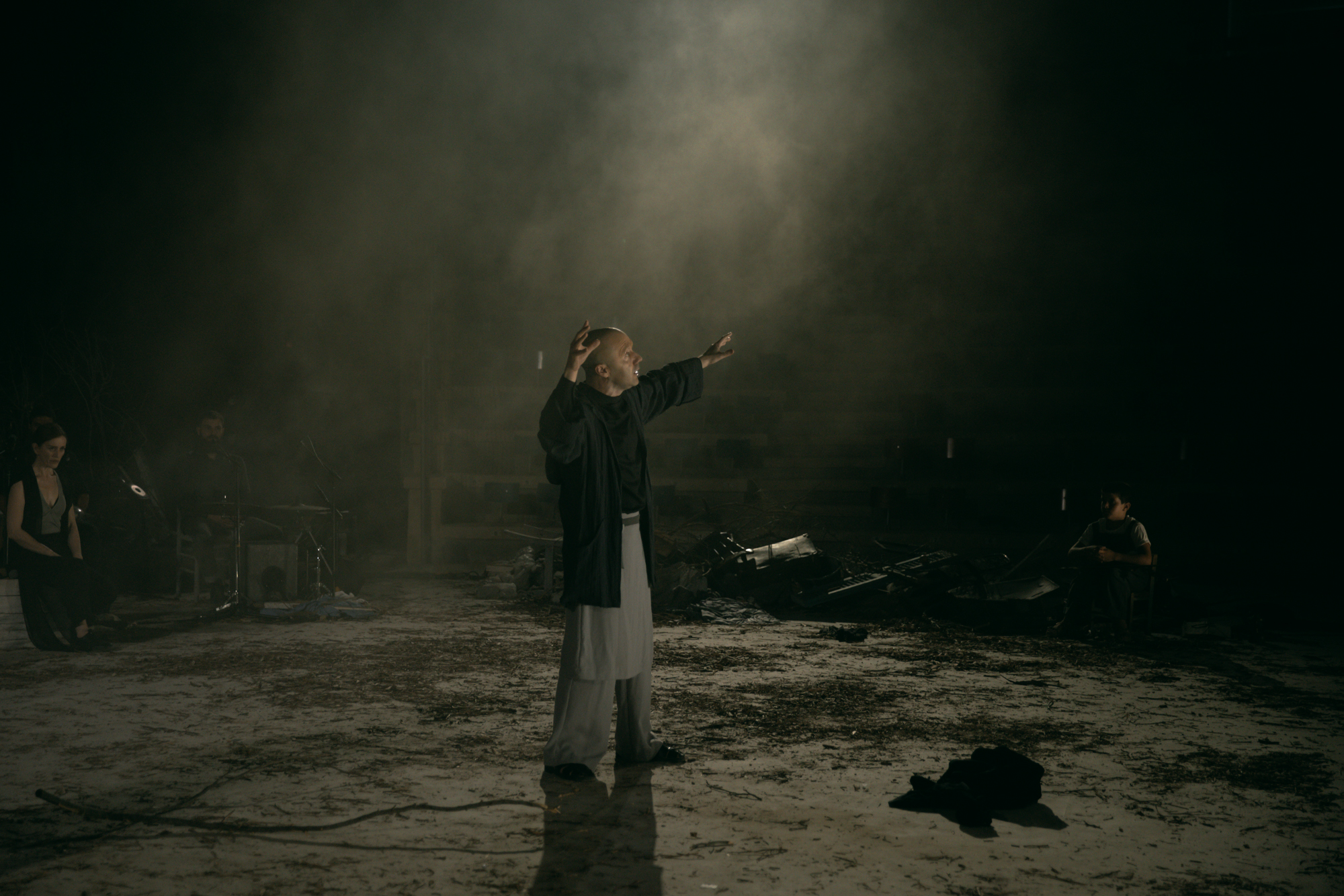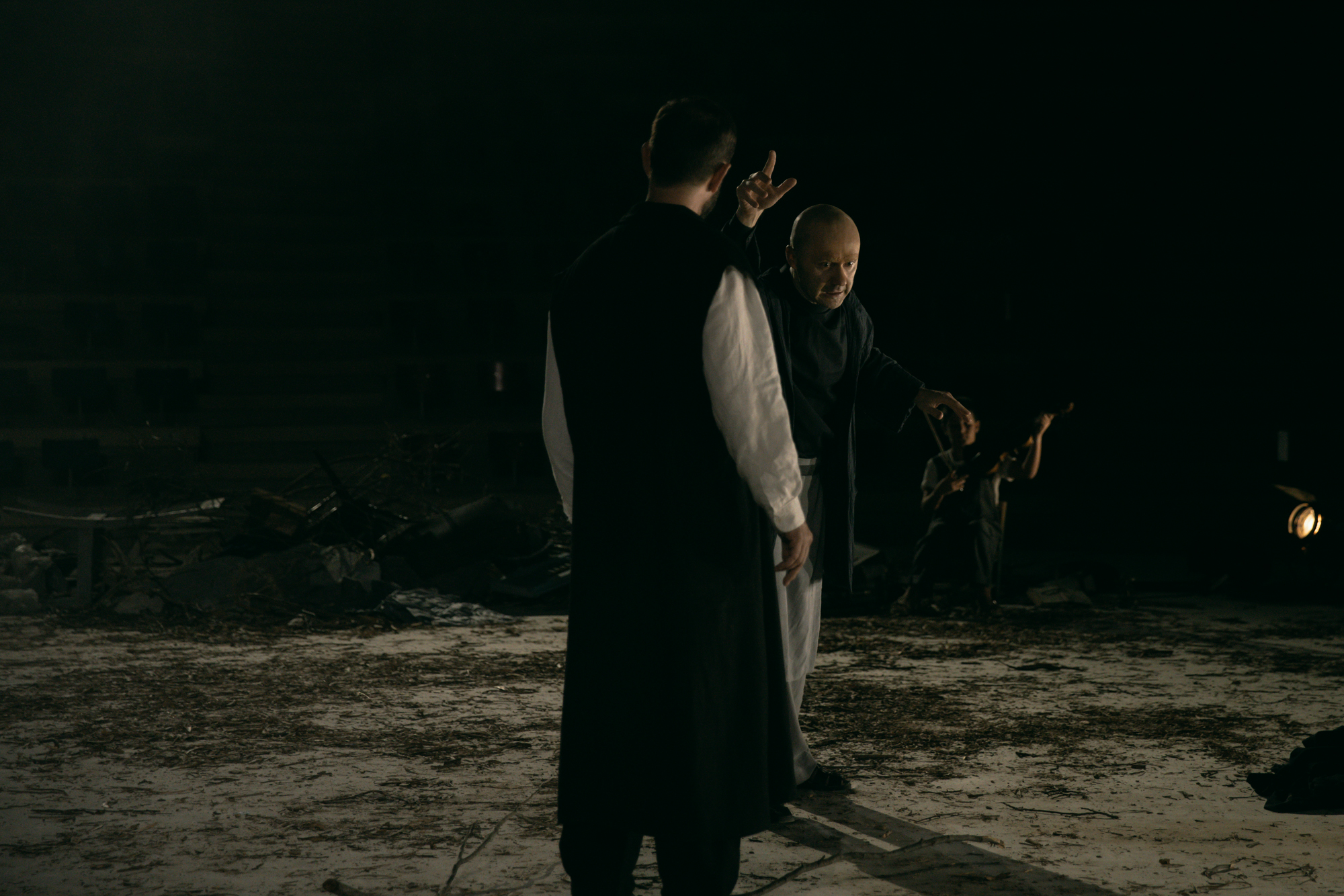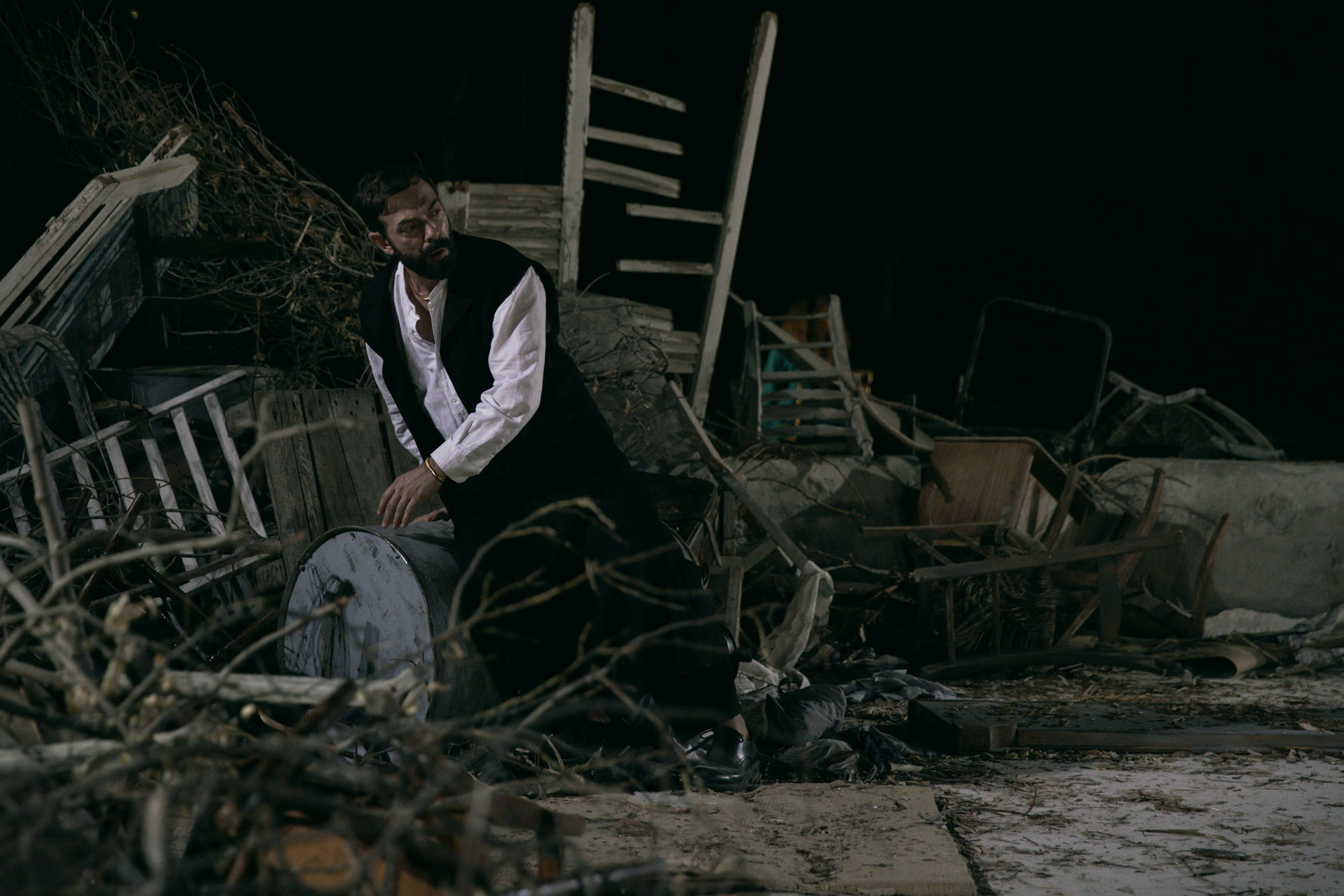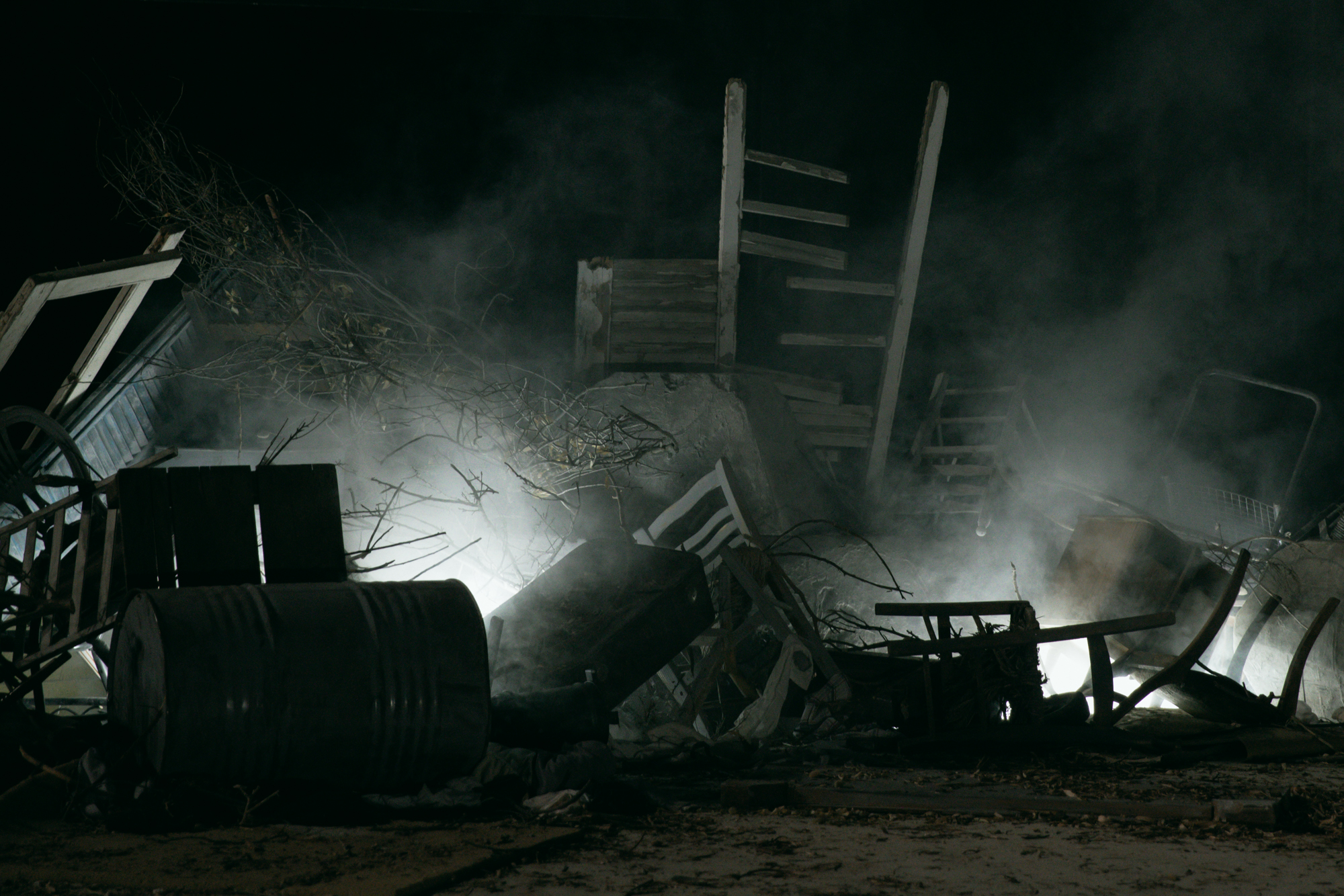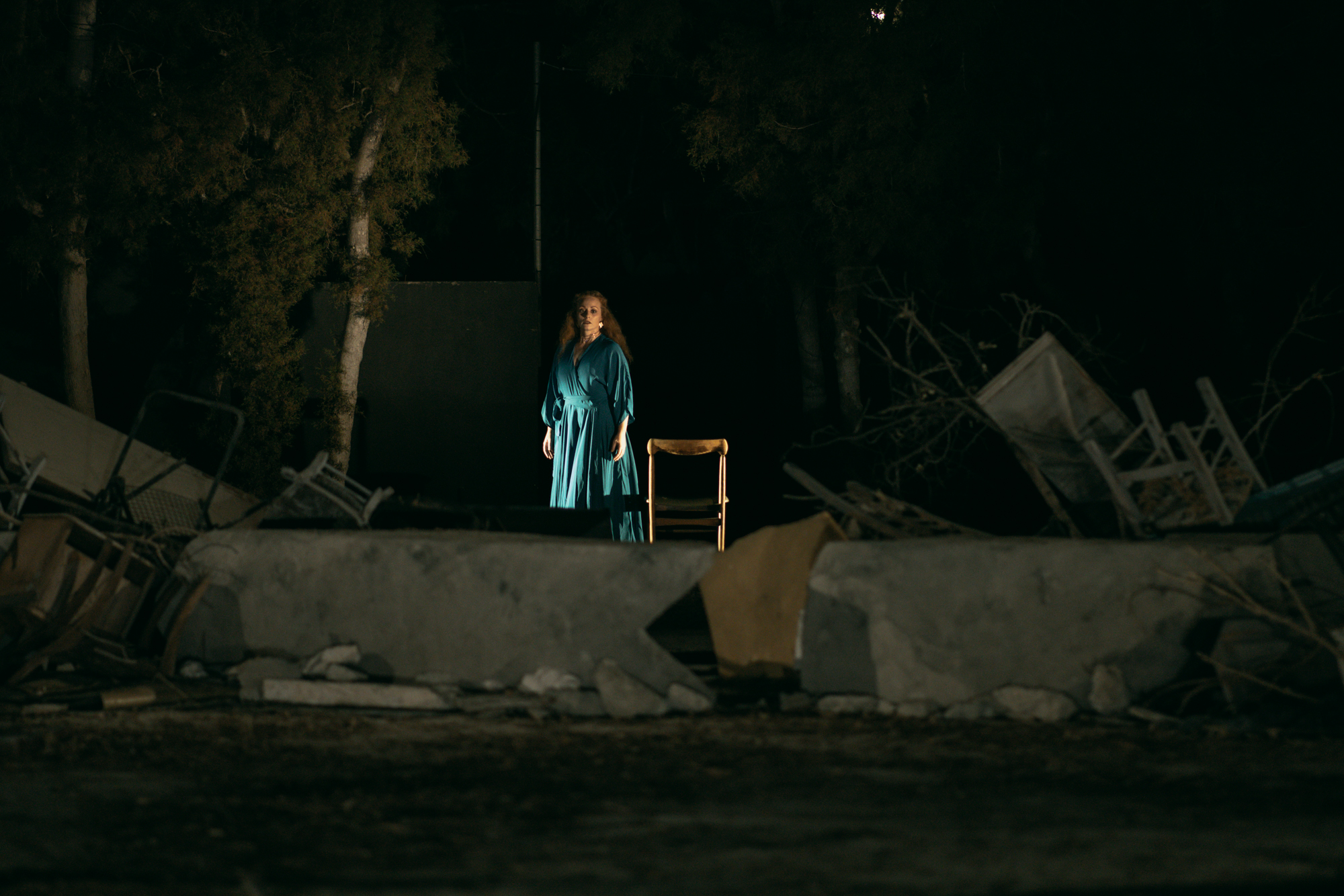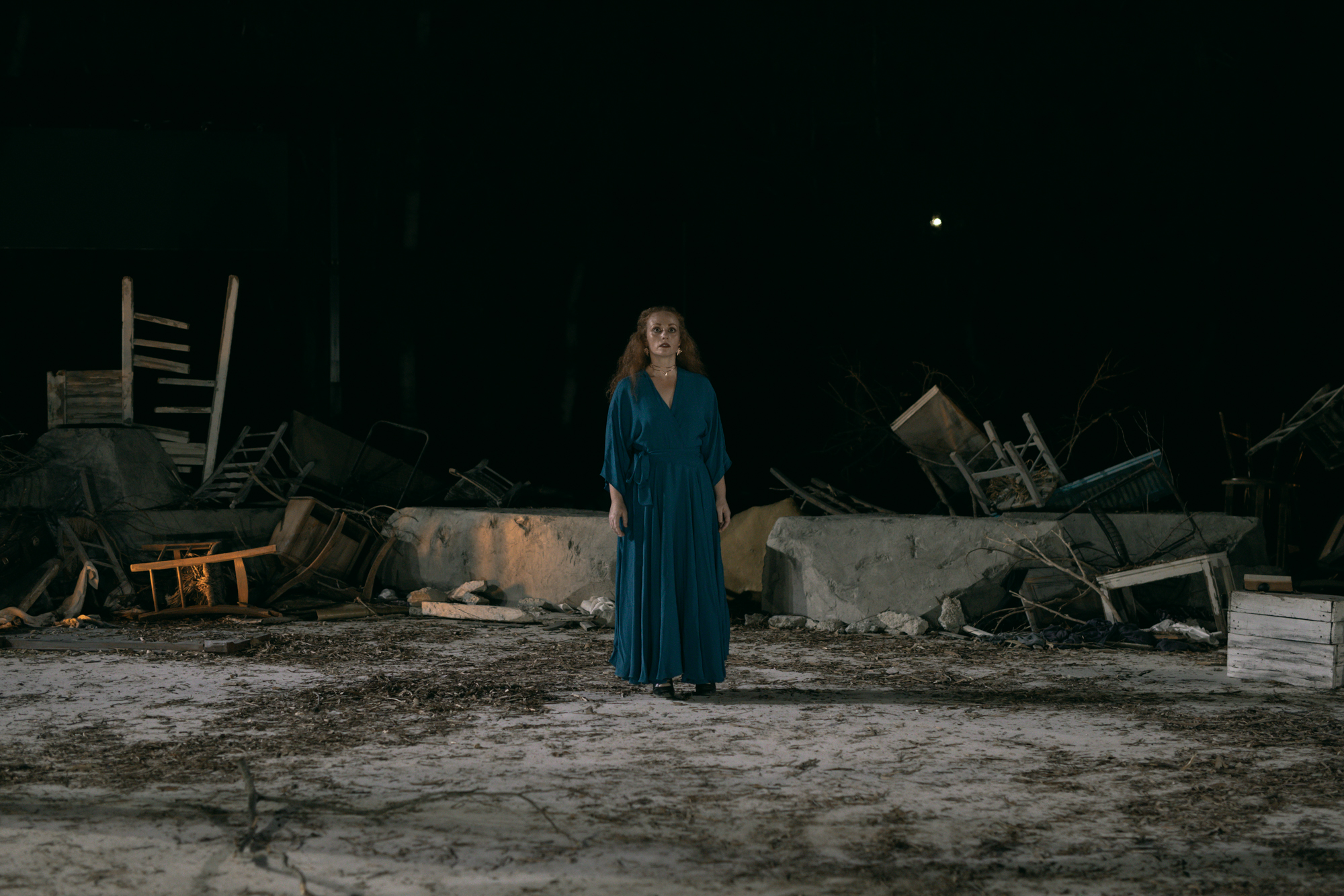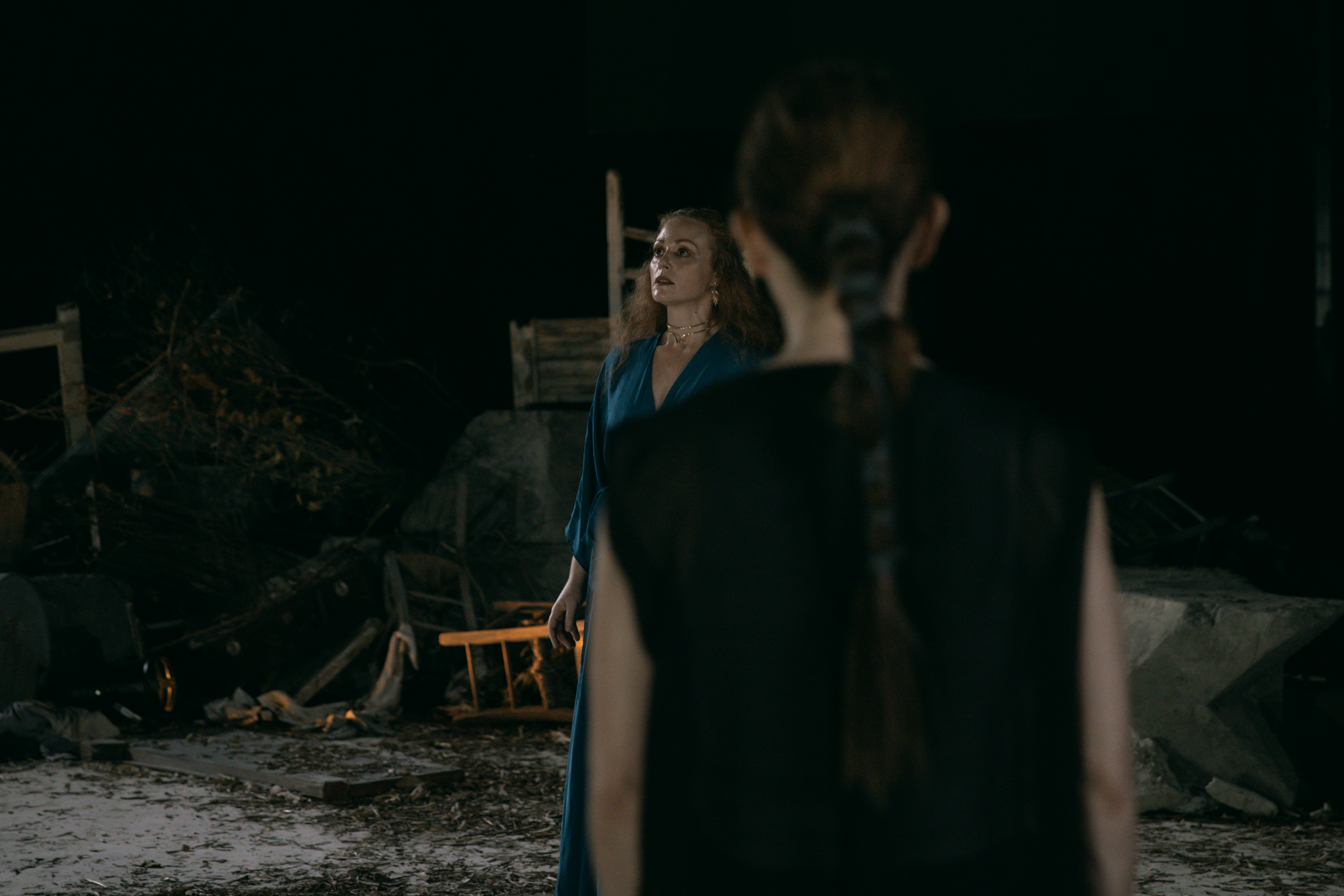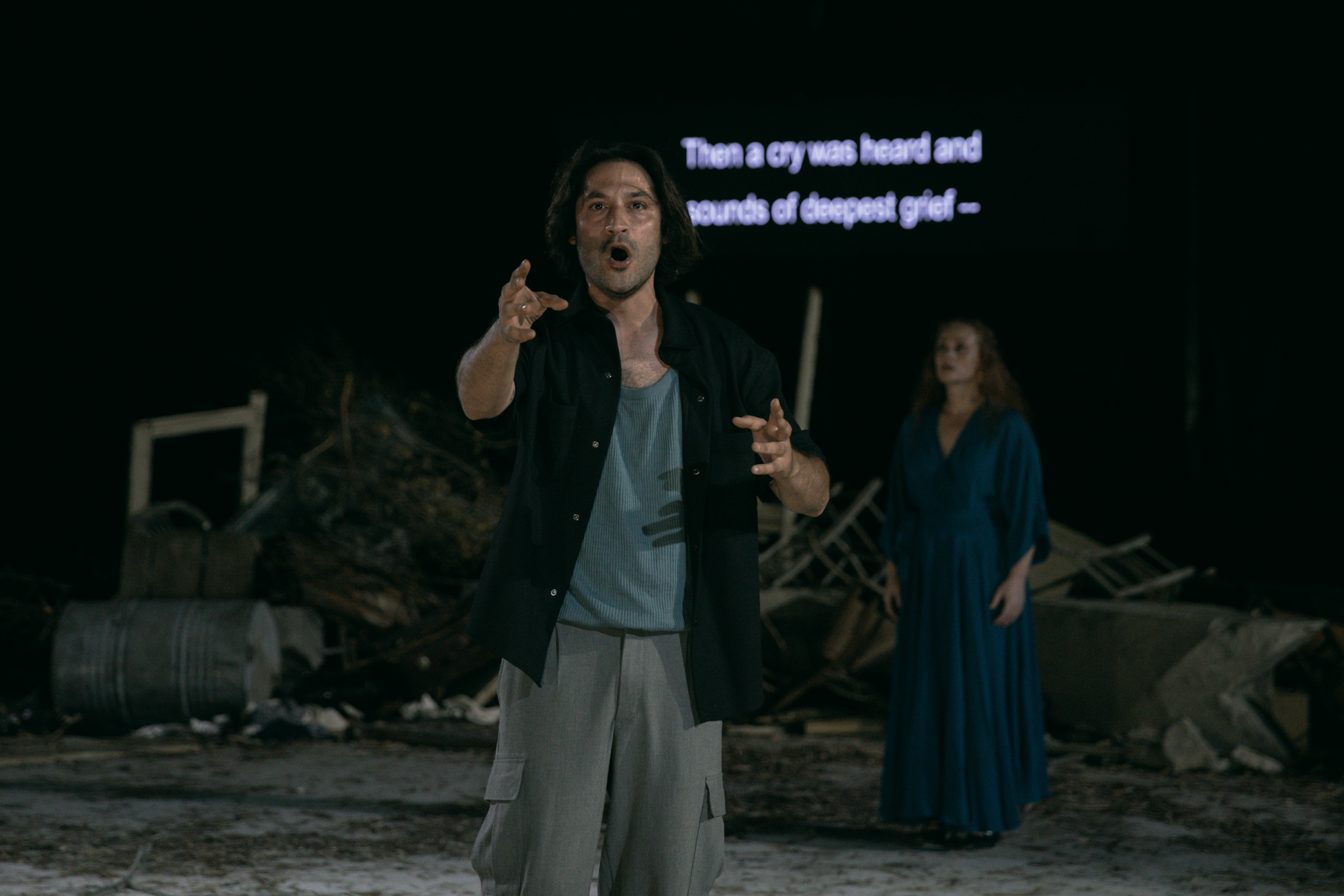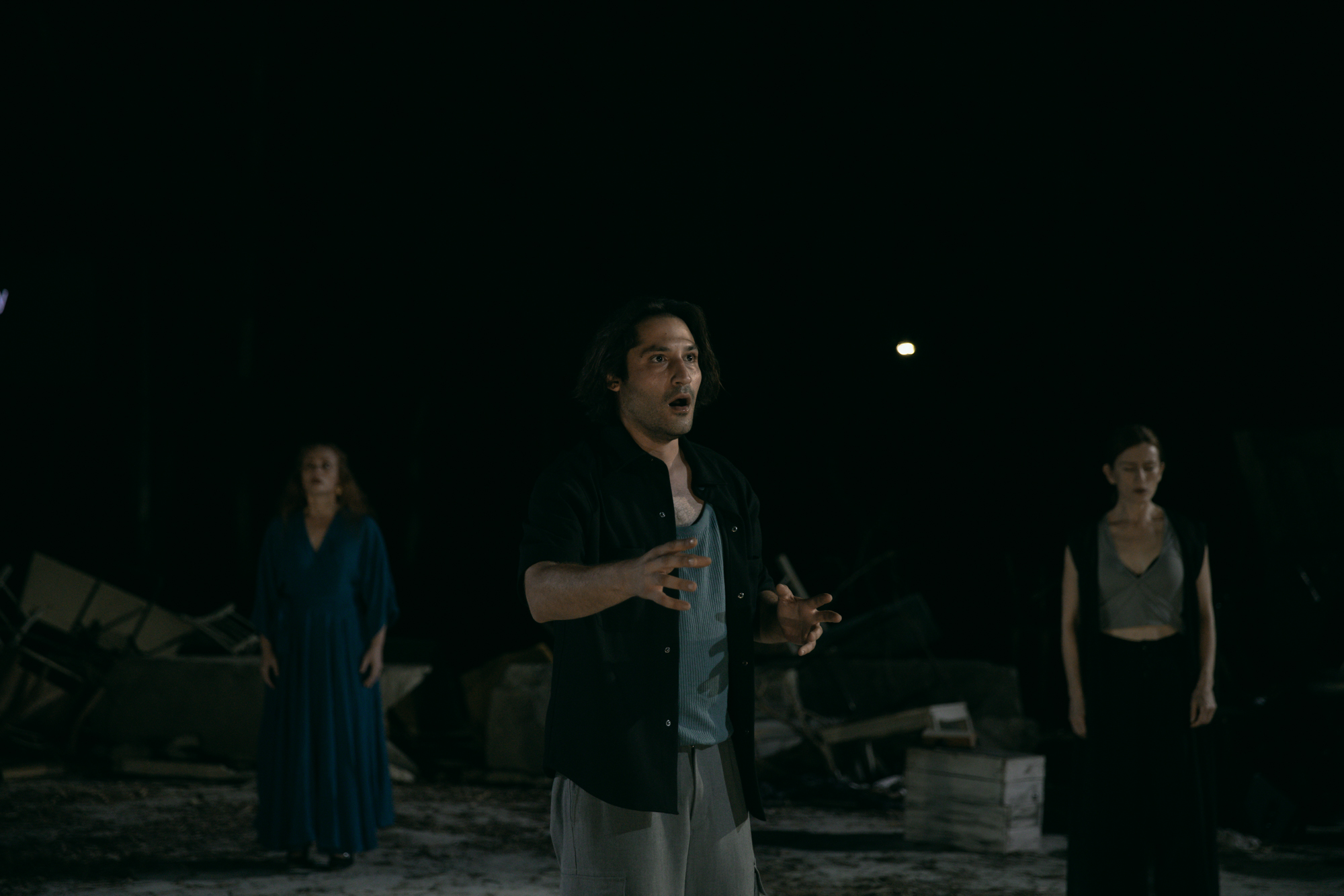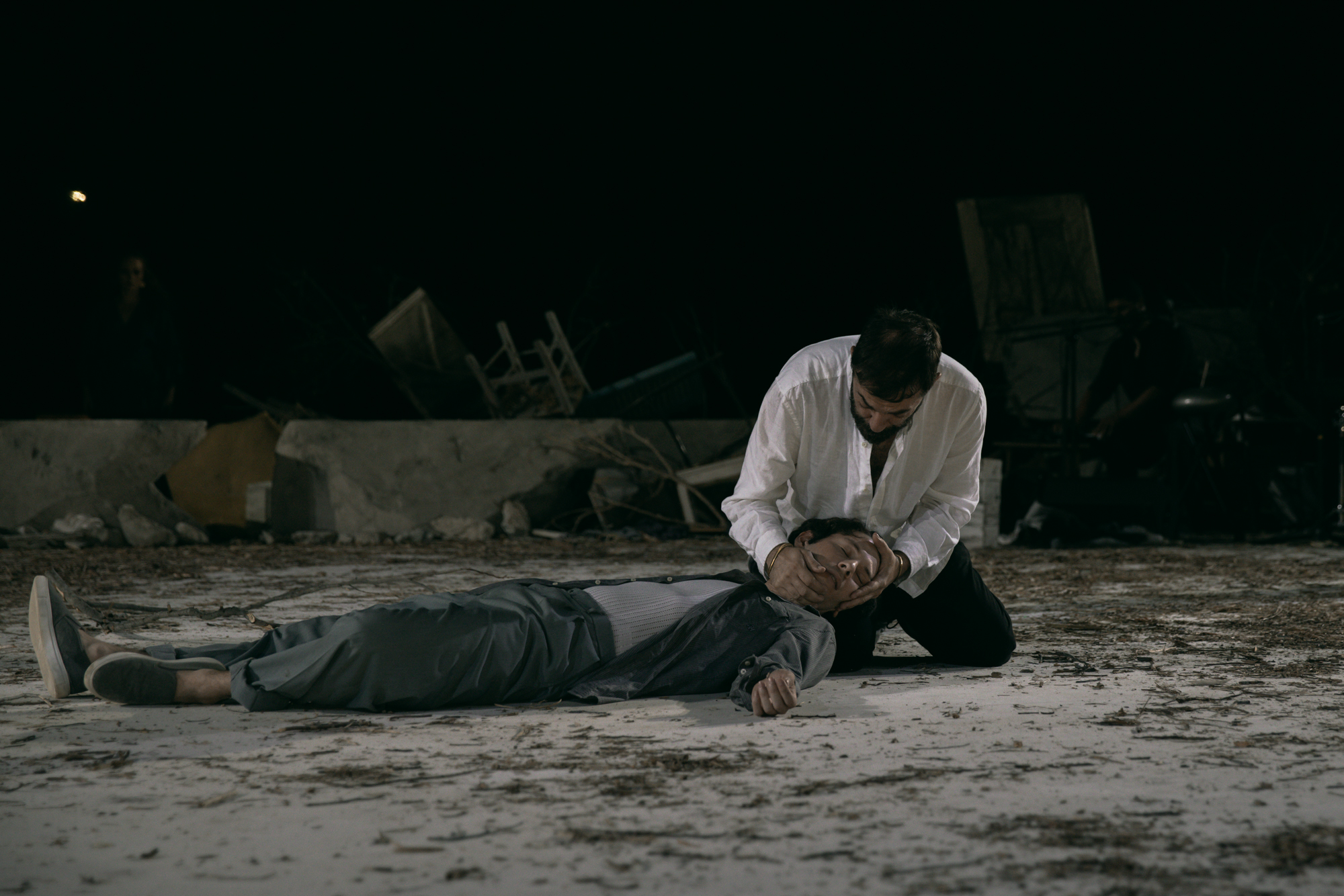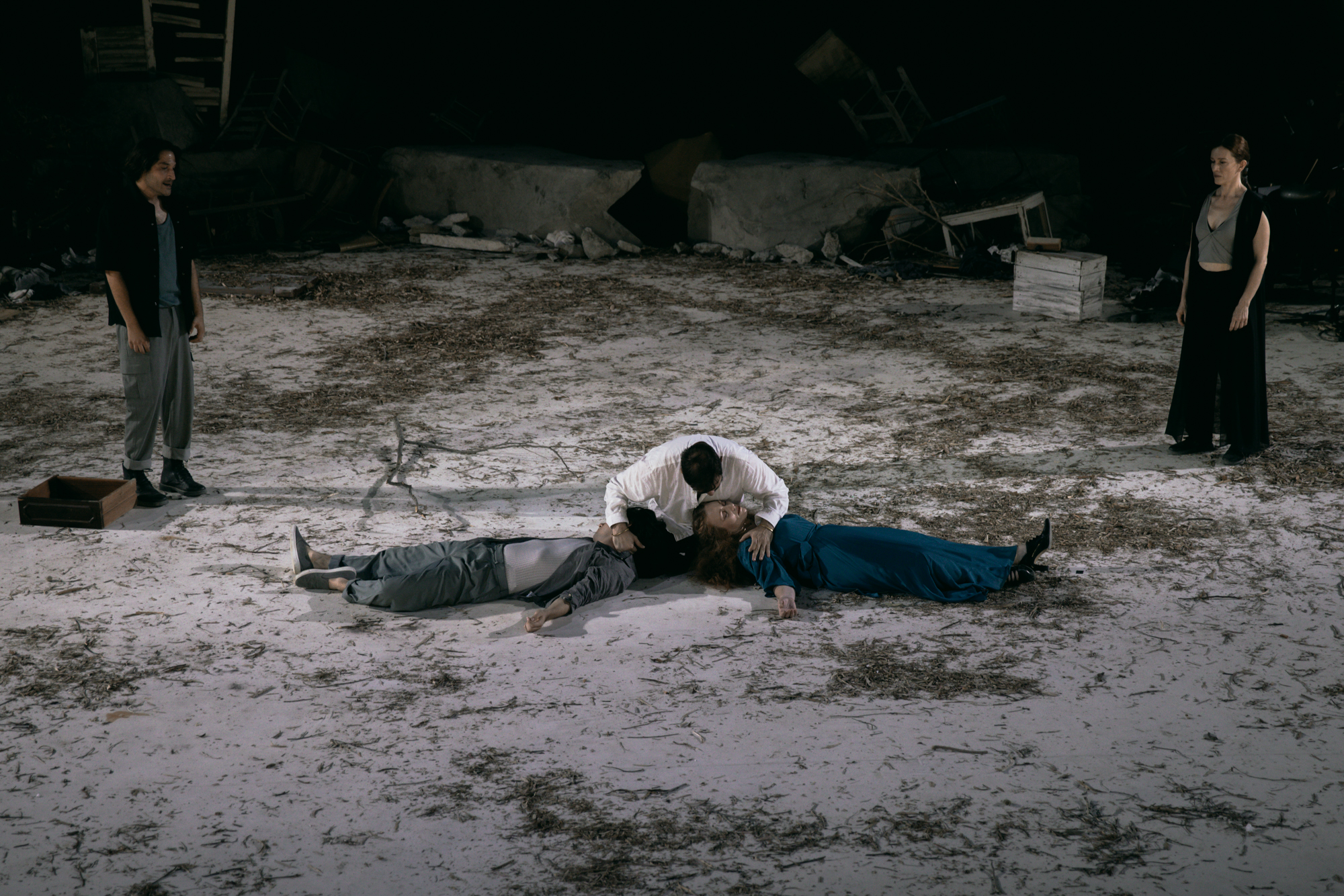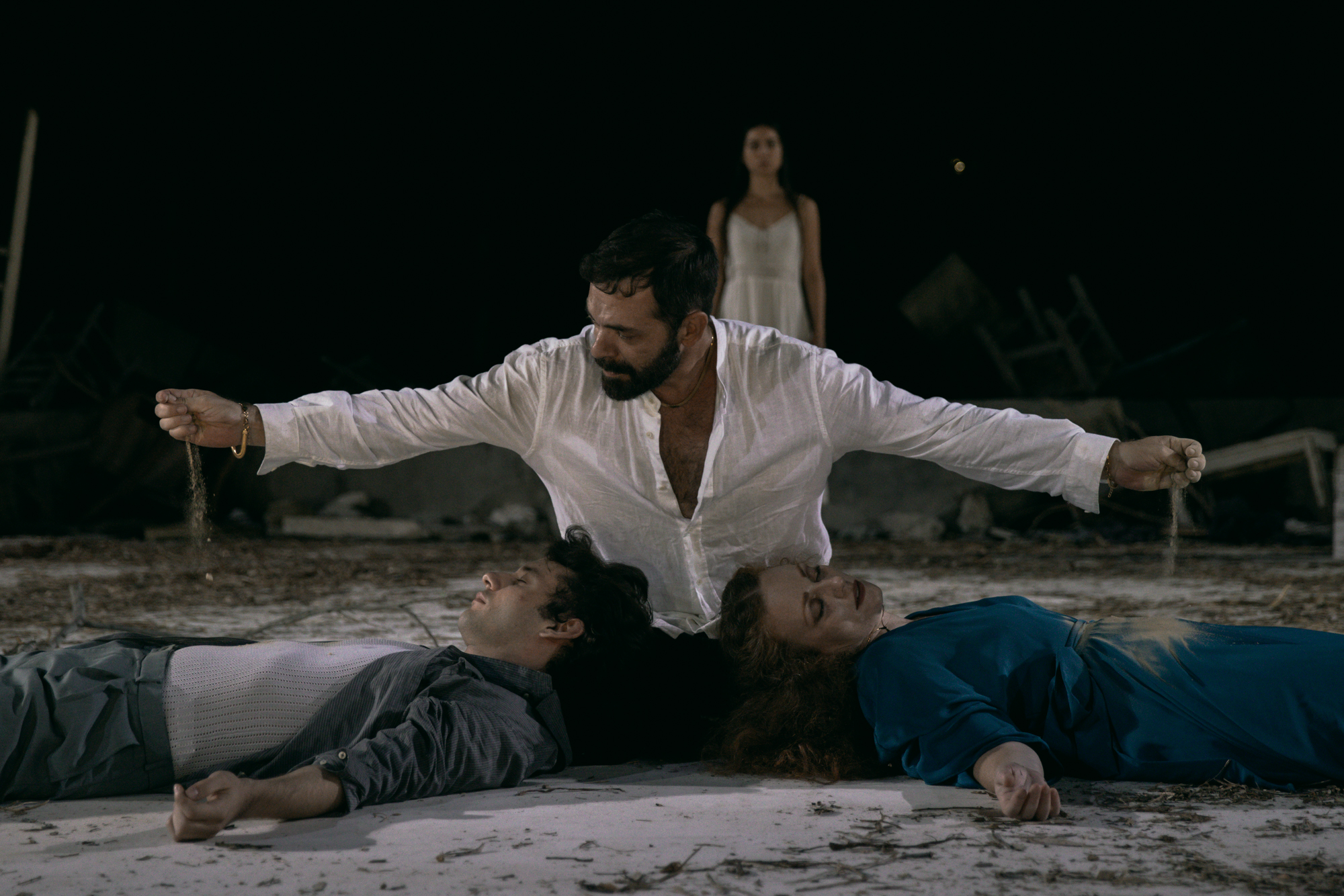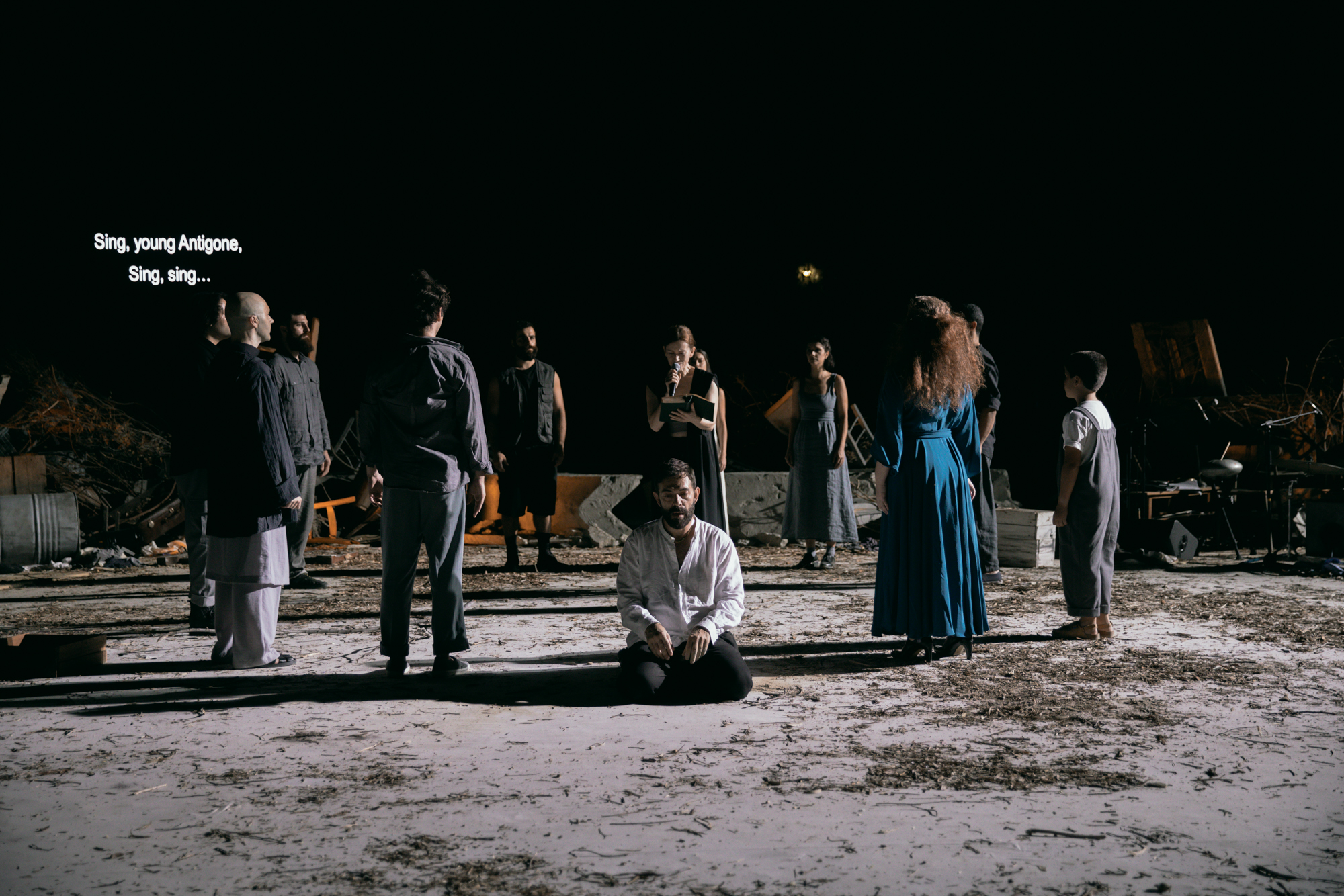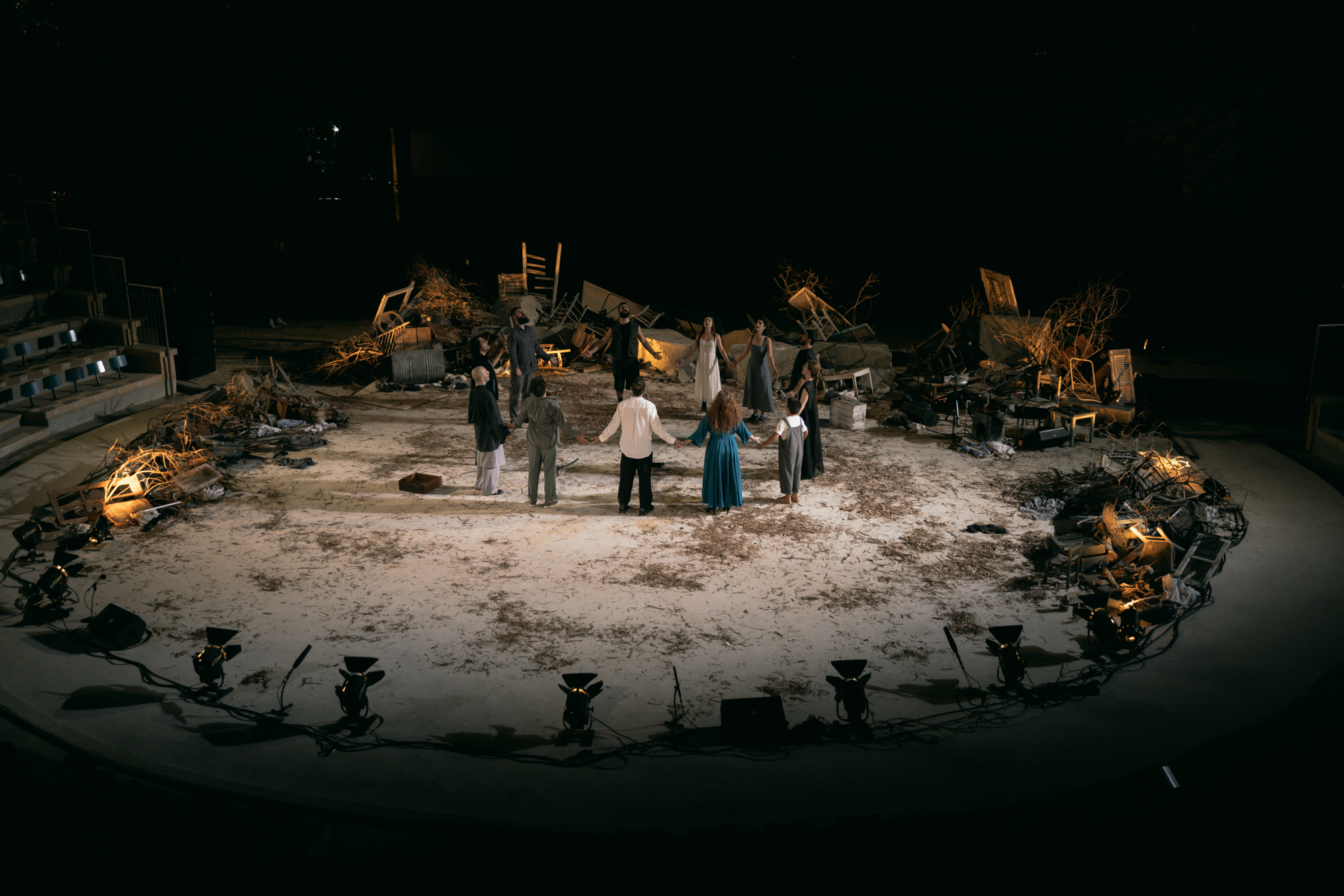HIPPOLYTUS by Euripides
HIPPOLYTUS by Euripides
NATIONAL THEATRE OF GREECE
Friday, August 4
Curium Ancient Theatre
Saturday, August 5
Curium Ancient Theatre
Performances start at
Please arrive at the theatre before 20:00
Katerina Evangelatos, distinguished theatre director and Artistic Director of the Athens Epidaurus Festival, directs the production of the National Theatre of Greece, Hippolytus by Euripides, in yet another interesting approach with a cast of renowned artists.
Euripides weaves a masterful theatrical trap of escalating tragedy in which gods play a pivotal role in the lives of the main characters of the myth: Phaedra, second wife of Theseus, descendant of Helios, daughter of Minos and Pasiphae, who comes from distant lands where passion and magic prevail and Hippolytus, son of Theseus with the Amazon Hippolyte and a man obsessively attached to sacred purity.
Aphrodite sets up a game of revenge and voyeuristically watches how humankind turns into a plaything for her whims. Her eye becomes our eye and the characters are stripped bare. The naked bodies are charged with explosion, desire, lust but also the innocence of the human race.
A directorial perspective that delves into the savage world of Euripides’ play, approaching it as a contemporary nightmare amid a poetic setting, where characters struggle with their weaknesses and where love is so insane that it can only be fatal. A stellar cast of 24 actors and four musicians remain on stage throughout the performance.
WITH ENGLISH SURTITLES
SUITABLE FOR AGES 16+
- DURATION: 100 MINUTES
Translation
Kostas Topouzis
Dramaturgy/Adaptation/Direction
Katerina Evangelatos
Set design
Eva Manidaki
Costumes
Eva Goulakou
Music/Orchestration
Alexandros-Drakos Ktistakis
Choreography
Alexander Stavropoulos
Video design
Pantelis Makkas
Lighting design
Eliza Alexandropoulou
Sound design
Kostas Pavlopoulos
Dramaturg
Eva Saraga
Music coach
Melina Peonidou
Assistant to the director
Giorgos Braoudakis
Assistant to the set designer
Katerina Vlachmpei
Assistant to the costume designer
Alexandra Ftouli
Assistant to the lighting designer
Lampros Papoulias
Video design assistant
Anthi Paraskeva Veloudogianni
Hair design
Konstantinos Koliousis
Cast (in alphabetical order)
Servant
Diamantis Adamantidis
Hippolytus
Orestis Chalkias
Phaedra
Kora Karvouni
Messenger
Dimitris Papanikolaou
Nurse
Maria Skoula
Artemis/Aphrodite
Elena Topalidou
Theseus
Giannis Tsortekis
Chorus of Women
Iro Chalkidi,
Dafni Kiourktsoglou,
Anastasia-Rafaela Konidi,
Ioanna Lekka,
Amalia Ninou,
Melina Polyzoni
Chorus of Hunters
Diamantis Adamantidis,
Marios Chatziantoni,
Nikolas Chatzivasiliadis,
Christos Diamantoudis,
Konstantinos Georgalis,
Nikos Gonidis,
Nikos Grigoriadis,
Iraklis Kostakis,
Marios Kritikopoulos,
Alexandros Piechowiak,
Alexandros Tomadakis,
Giorgos Vassilopoulos
On-stage musicians
Jannos Giovanos (cello),
Giannis Papadopoulos (piano, keyboards),
Vaggelis Paraskevaidis (vibraphone, percussion),
Spyros Polychronopoulos (electronics)
NATIONAL THEATRE OF GREECE
Greece’s first state theatre company was the Royal Theatre, which was founded in 1901 and operated until 1908. It was re-established under the name “National Theatre” in 1930 and opened for the public in March 1932. The National Theatre of Greece (NTG), during its 90 years of existence, has succeeded in creating a powerful theatrical tradition. The NTG Drama School was founded in 1930 and has since operated in tandem with the NTG.
The repertoire of the National Theatre aims at polyphony, promoting a dialogue between tradition, present and future. The revival of Ancient Greek Drama remains a key area of interest for the National Theatre in an effort to combine respect for tradition with new trends. In 1938 the National Theatre of Greece performed its first open-air production of ancient drama, Sophocles’ Electra; the first performance after centuries at the Ancient Theatre of Epidaurus. In 1955 the NTG established the Festival of Epidaurus.
Today, there are six venues in the National Theatre in Ziller Building (2), in Rex Theatre (3) and the School of Athens – Irene Papas (open-air venue). The National Theatre is always open to collaborations with theatres and artists – tours, joint productions with major theatres abroad, participation in international festivals, educational programs, and invitations to important contemporary artists; these are all part of the effort to broaden an already established network. The NTG was a member of the European Theatre’s Union (2009-2020). Since 2022, the NTG is a member of the European Theatre Convention.
The Artistic Director of the National Theatre of Greece is the director Yannis Moschos.
